Class of 2027
Cohort 9
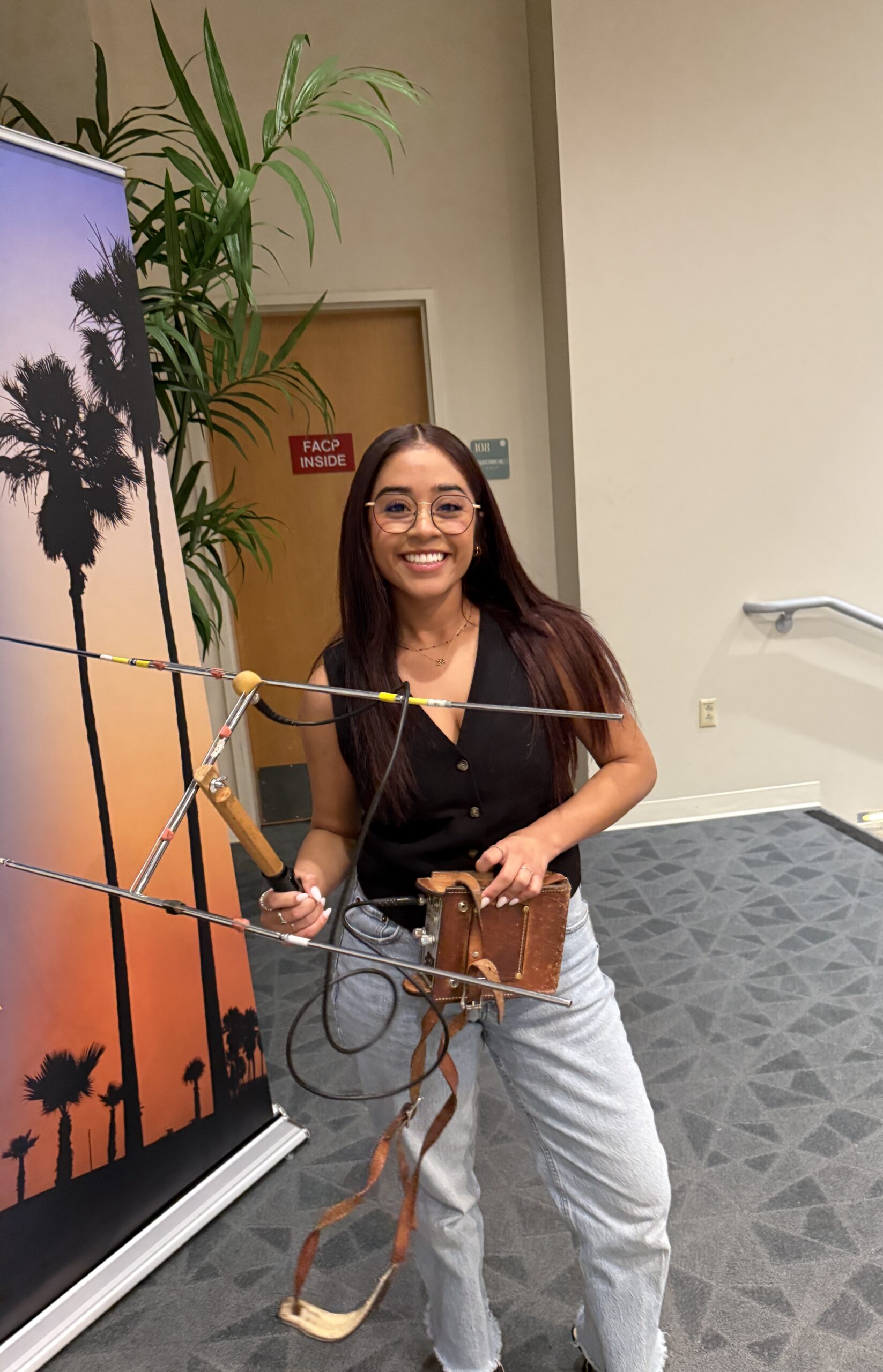
Clara Abundio Castillo
Clara was born in Puebla, Mexico and moved to Southern California at 2 years old where she has resided in ever since. Clara’s parents exposed her to wildlife and nature at a very young age by taking her on road trips every summer to visit national parks around the country. She fell in love with seeing how each national park was special in its own way. Clara attended California State University Fullerton, where she earned a B.S. in Biology with a concentration in Ecology and Evolutionary Biology. At the end of her sophomore year of college, she joined an intertidal community ecology lab where she would assist MS students with their thesis projects that varied from assessing the interactive effects of trampling and low tide stressors on intertidal rockweed, Silvetia compressa, to assessing the effects of sand on the intertidal mussel, Mytilus californianus on the rocky shores of Southern California. During her time in the intertidal lab, Clara developed a passion for fieldwork and natural resource management. Clara worked as a field assistant for the Multi-Agency Rocky Intertidal Network (MARINe) where she would assist in recording data for biodiversity surveys with teams from Bureau of Ocean Energy Management, National Park Service, UC Santa Cruz, UC Santa Barbara, and Cal Poly Pomona. After graduation, she got the opportunity to travel to the University of Washington Friday Harbor Labs on San Juan Island, WA to help her principal investigator, Dr. Jennifer Burnaford, in conducting field work at a long-term monitoring site on the island.
Shortly after her time in Washington, Clara got the opportunity to work as a UCR Natural Reserve System Summer Intern where she utilized radio telemetry to track Desert Tortoises, Gopherus agassizii, with transmitters and collaborated with researchers from the U.S. Geological Survey, UC Riverside, and CSU Fullerton. She is currently collaborating with her mentors to write an article on their repeated observations of burrow sharing by Desert Tortoises and Southern Speckled Rattlesnakes.
Clara is excited to continue her education with the MCRS program and gain more experience in different ecosystems and natural resource management. Clara enjoys trying new coffee shops, thrifting, hiking, camping, going to concerts, and traveling.
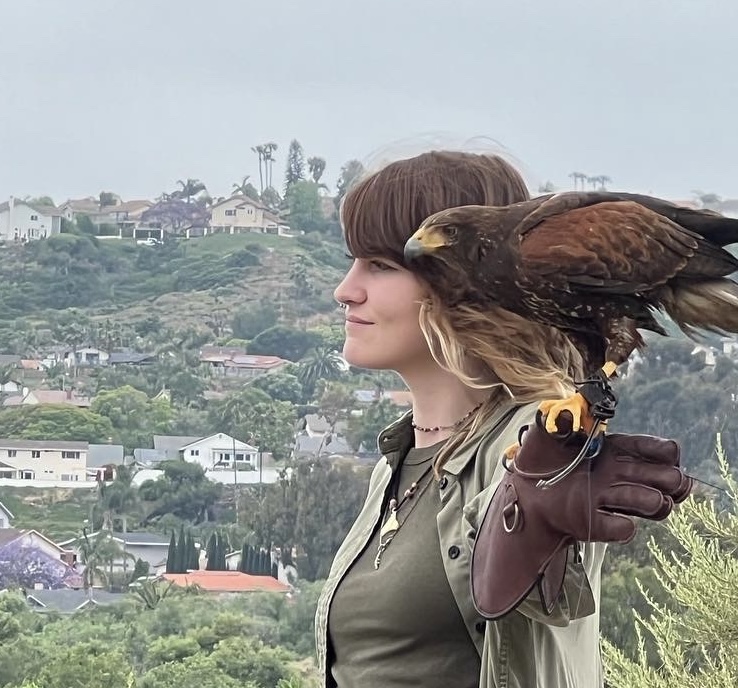
Clementine Bostock
Clementine was born and raised in San Diego. From a young age she was drawn to wildlife and nature. She attended California State University San Marcos, where she earned a B.S. in Biology with a concentration in Ecology. During her time in her undergraduate studies, Clementine examined micro-CT scans of vertebrates dispatched by San Clemente Loggerhead Shrikes, categorizing the damages to the spinal column in order to study predation events.
Clementine also has worked with a variety of animals, including the opportunity to work with ambassador birds of prey at Agua Hedionda Lagoon Foundation, doing educational outreach to teach others about local species of birds of prey, even having presented at the San Diego Bird Festival. Clementine has had the opportunity to work with and teach others about a variety of animals, such as penguins, capybara, raptors, otters, lemurs and more.
Currently, Clementine works at Santa Ana Zoo as a zookeeper. She is excited to continue her education with the MCRS program and continue her passion for scientific education, wildlife and conservation. In her free time she enjoys birdwatching, drawing, sewing, snorkeling & hiking.
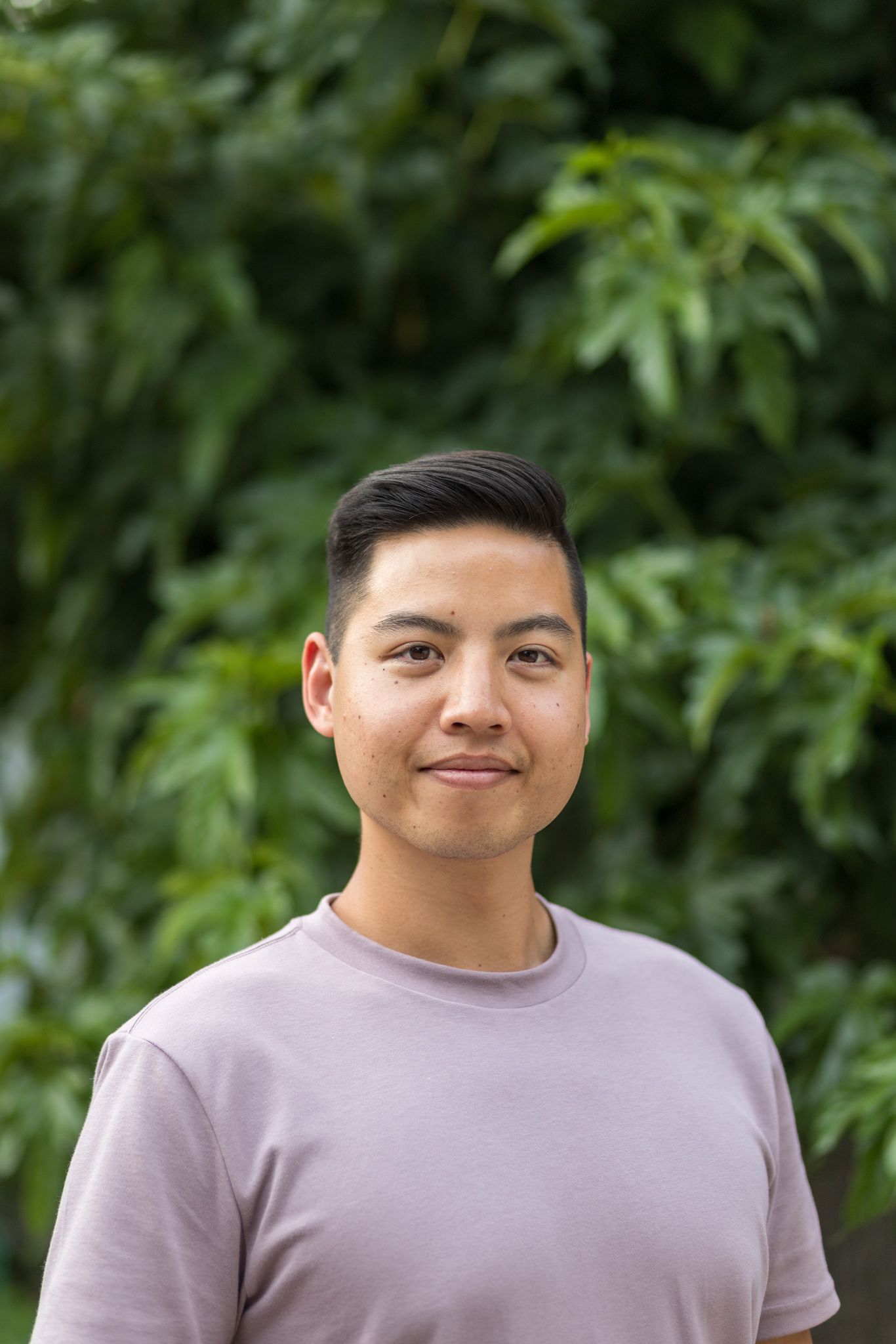
Timmothy Chang
Timothy Chang’s passion for conservation began with a childhood exploring the diverse landscapes of New Zealand. His career path uniquely blends environmental engineering, military service, and hands-on fieldwork.
After earning his degree in environmental engineering from UC Riverside, where he researched toxin accumulation in the Salton Sea and designed mobile water treatment systems, he served in the U.S. Air Force. As a Remotely Piloted Aircraft Specialist, he developed a global perspective on environmental challenges through his work with electro-optical and multi-spectral remote sensing.
Following his service, Timothy returned to the California coast to monitor Black Oystercatcher populations with the Monterey Audubon Society and the Pacific Grove Museum, gaining invaluable hands-on restoration experience.
Now, an MCRS student at UC Irvine, Timothy is driven to apply his collaborative spirit and diverse skills to create innovative and equitable conservation solutions. His overall goal is to foster a future where vital ecosystems can thrive alongside the needs of human communities.
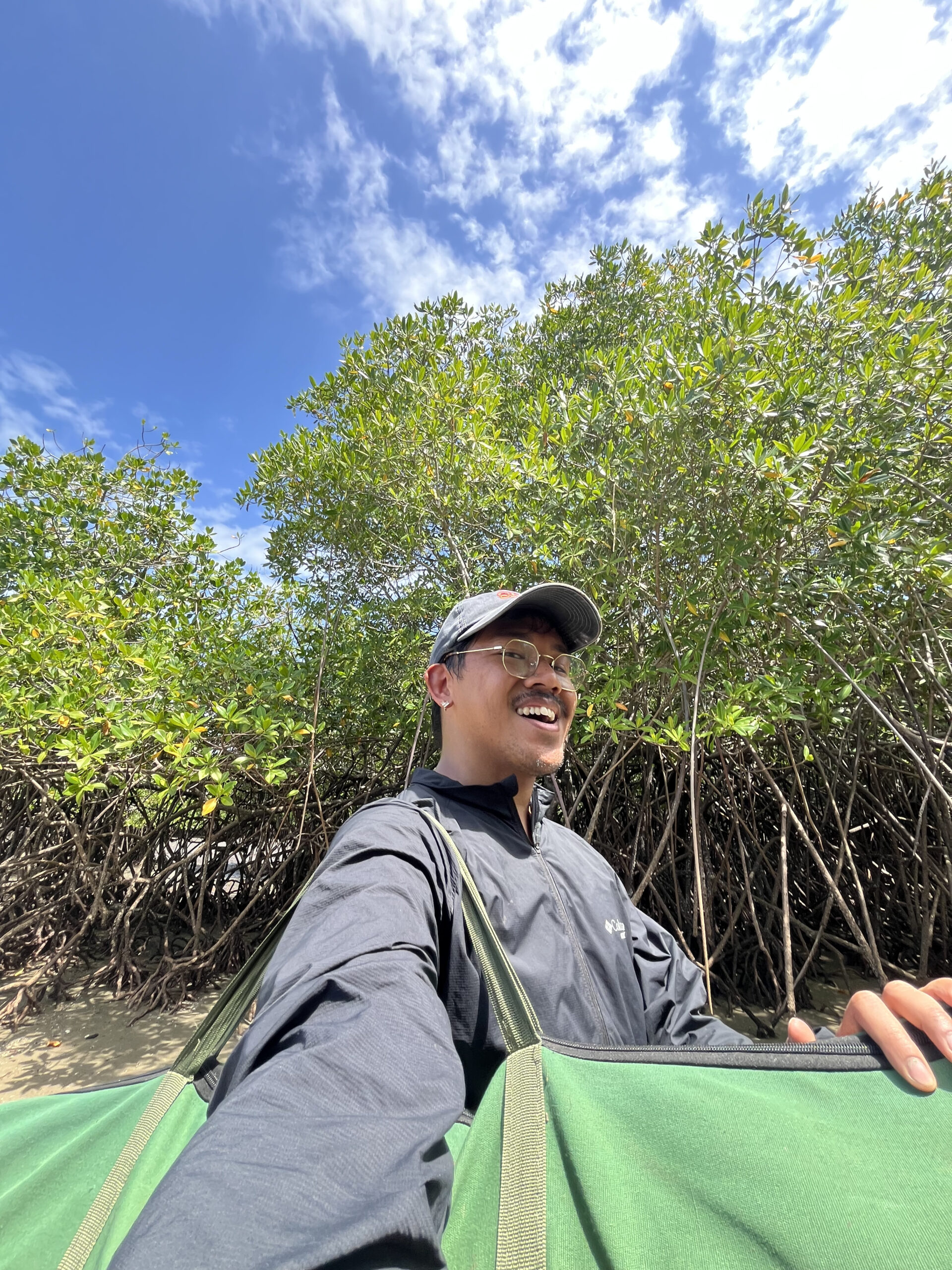
James Cortes
Since childhood, James has been broadly interested in environmentalism, starting with hybrid cars and solar panels in elementary school, gardening and composting in high school, and then pursuing a Bachelor’s degree in Environmental Science and Policy at the University of California, Irvine from 2019 to 2022. At UCI, James was involved in educating students about zero-waste initiatives, reducing food waste, and promoting sustainability. In 2021, James participated in the University of California Natural Reserve System’s California Ecology and Conservation program, in which he found his love for ecology while conducting research in the Mojave and Colorado deserts. After graduating, James worked with waste service company, CR&R, to help implement SB 1383, which required all businesses and residents in California to have access to trash, recycling, and organic waste collection. Currently, James is a research fellow at the Smithsonian Tropical Research Institute in Panama and is working on projects involving carbon stocks, salinity impacts on tree growth, and decomposition rates in mangrove ecosystems.
After living in Panama for a year, he is thrilled to return to Southern California with a better understanding of ecology and to learn more about the interactions and functions of Californian wetland, chaparral, and desert ecosystems. James chose the MCRS program with excitement to develop and apply his scientific skills and knowledge to support local restoration and conservation initiatives. In his free time, James enjoys household plants, hiking, curating playlists, organizing spreadsheets, and trying new food.
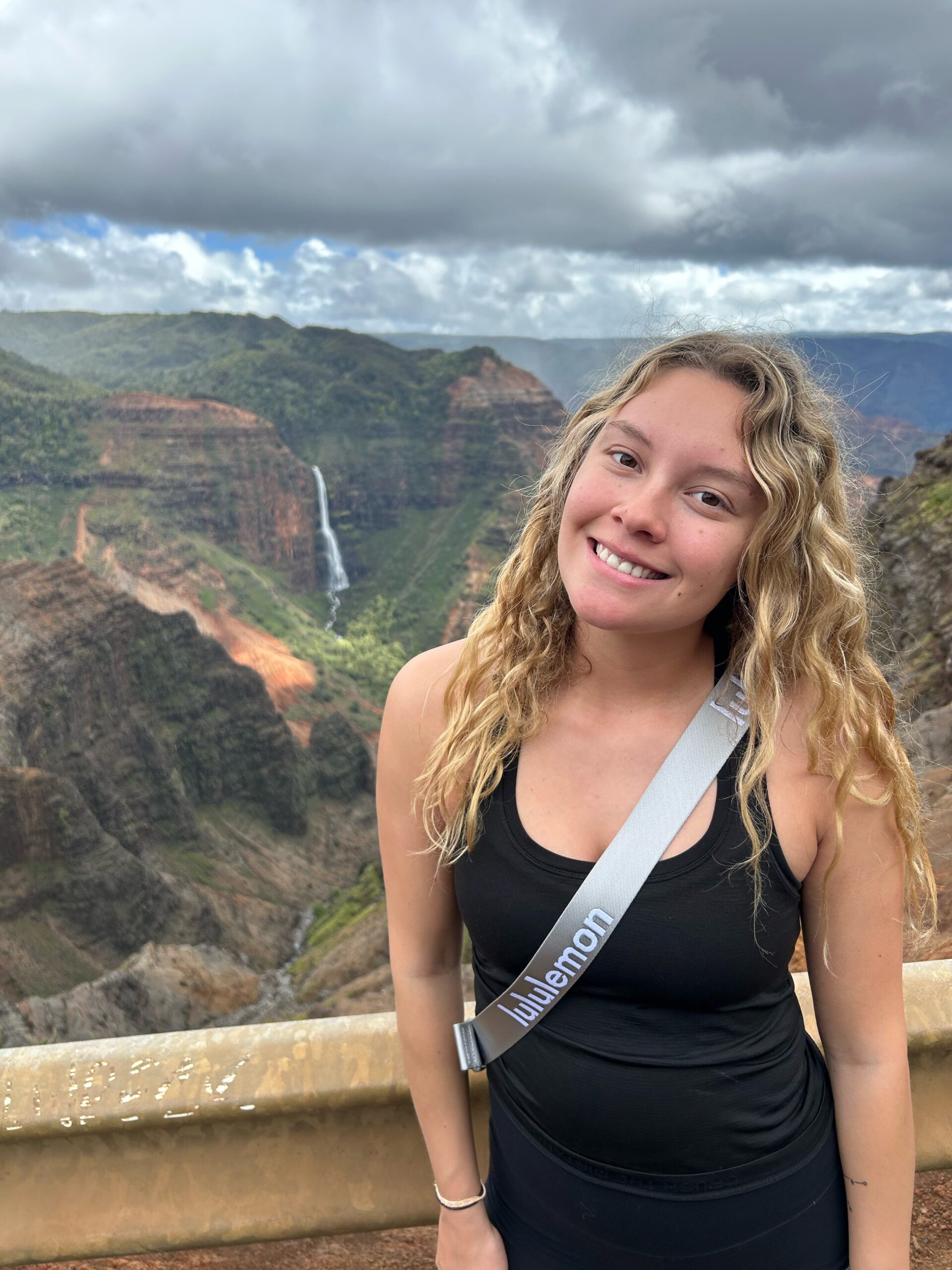
Olivia Frigyes
Olivia was born and raised in Omaha, Nebraska. From a young age she was drawn to the ocean through the tv screen watching nature programs every Sunday. When she got the chance to move to the coast, she chose to attend the university of San Diego. She got to pursue her passion for the environment and conservation, getting a BS in marine ecology. While receiving her bachelor’s at USD, she had to opportunity to study abroad twice. She did a semester in Bocas del Toro, Panama researching the relationship between Elkhorn coral and fish community structures. She also took an intersession class in San Salvador, Bahamas looking into the geologic history of the island. Olivia’s field experience while studying abroad fueled her ambition to pursue a master’s to gain further knowledge and experience in the realm of marine conservation. She is eager to contribute to scientific community in its efforts to preserve our planet with her peers in the MCRS program. In her free time she enjoys surfing, yoga, scuba diving, traveling, cooking, and going to concerts!

Danelle Gadia
Danelle was born and raised in Los Angeles. She was always deeply curious about plants and animals near her home. She pursued a degree in Environmental Science and Policy from CSU Long Beach where her curiosities deepended. At CSU Long Beach, she learned to identify plants and animals, environmental law, botany, wetland science, and ecology. Since then, she has become increasingly passionate about the preservation of narrow endemic floral species. She has worked in habitat restoration, species and habitat monitoring, species surveys, and science education within Long Beach, Los Angeles, Orange County, San Diego. Her passion for the outdoors and her hobby of computers and video games led her to pursue a certification in GIS through UC San Diego. At UC San Diego, she researched habitat suitability for San Diego thornmint. Danelle’s passion for natural science has led her to MCRS. She is excited to develop skills in restoration and conservation!
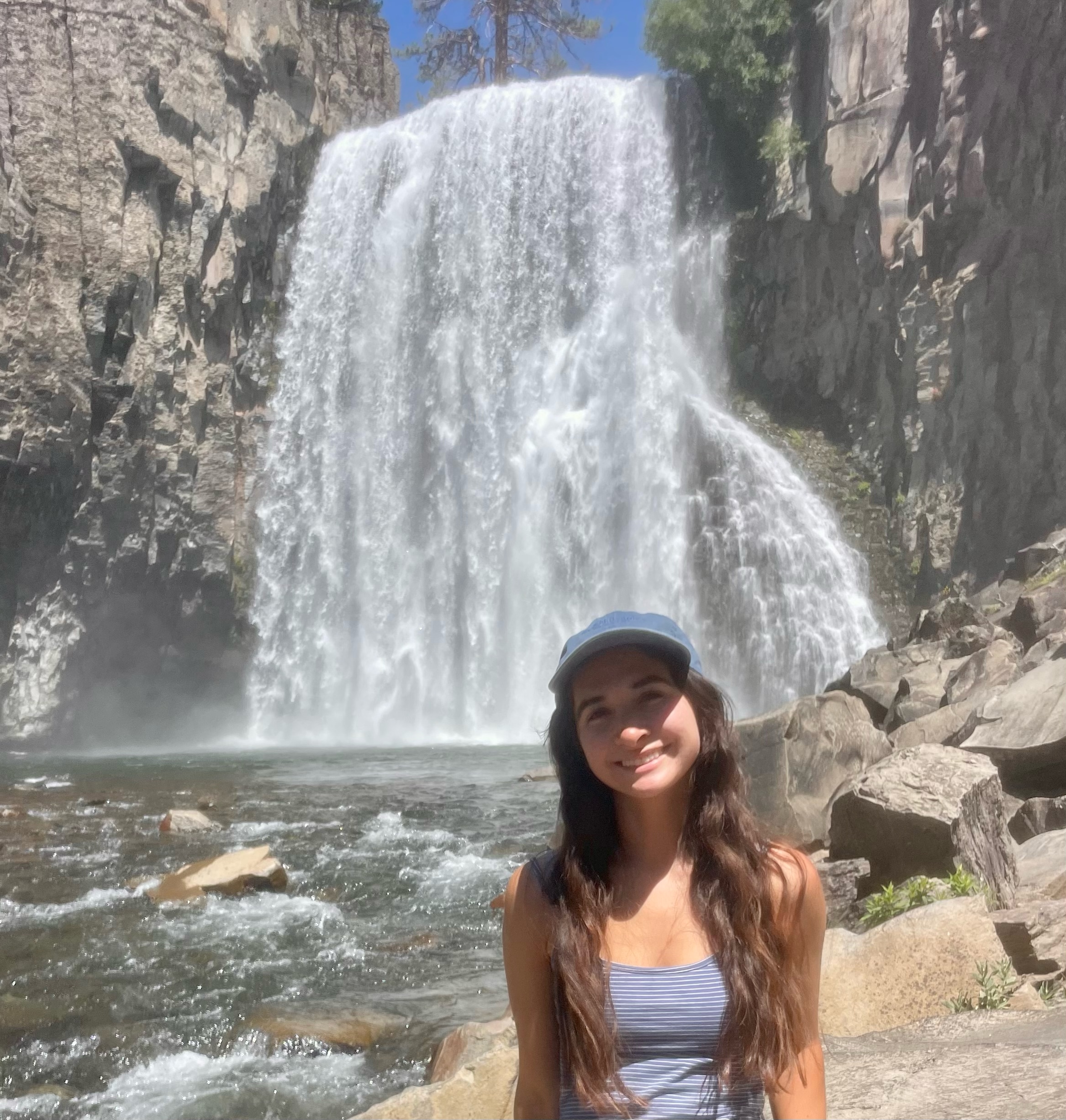
Christina Guidice
As a lifelong resident of Southern California, awed by the beauty of the natural environment, Christina has always been passionate about protecting the natural world. She was fascinated by coastal ecosystems and estuaries, which guided her academic efforts during her B.S. in Environmental Science and Policy at CSULB. As part of her Biology minor, Christina participated in a wetlands ecology lab where she engaged in field work opportunities spanning multiple estuaries from Santa Barbara to Tijuana. She gained a newfound passion for wetlands conservation and enjoyed learning about biodiverse estuarine ecosystems. With the use of baited remote underwater videos, Christina conducted independent research on how channel morphology and water quality influenced fish community composition across Orange County wetlands.
Christina now works as an LA Wildfire Recovery Field Biologist with AECOM for the cleanup operations of the Palisades fire. As a field lead, she conducts biological monitoring for nesting birds within the burn footprint and proposes final decisions to allow construction activities to continue without creating disturbances to protected species. Christina’s work founded a passion for wildlife conservation, encouraging her to choose the UCI MCRS program to gain the skills she needs to promote large-scale conservation efforts of critical natural resources. In her free time, Christina enjoys snorkeling, practicing wildlife photography, birding, and hiking.
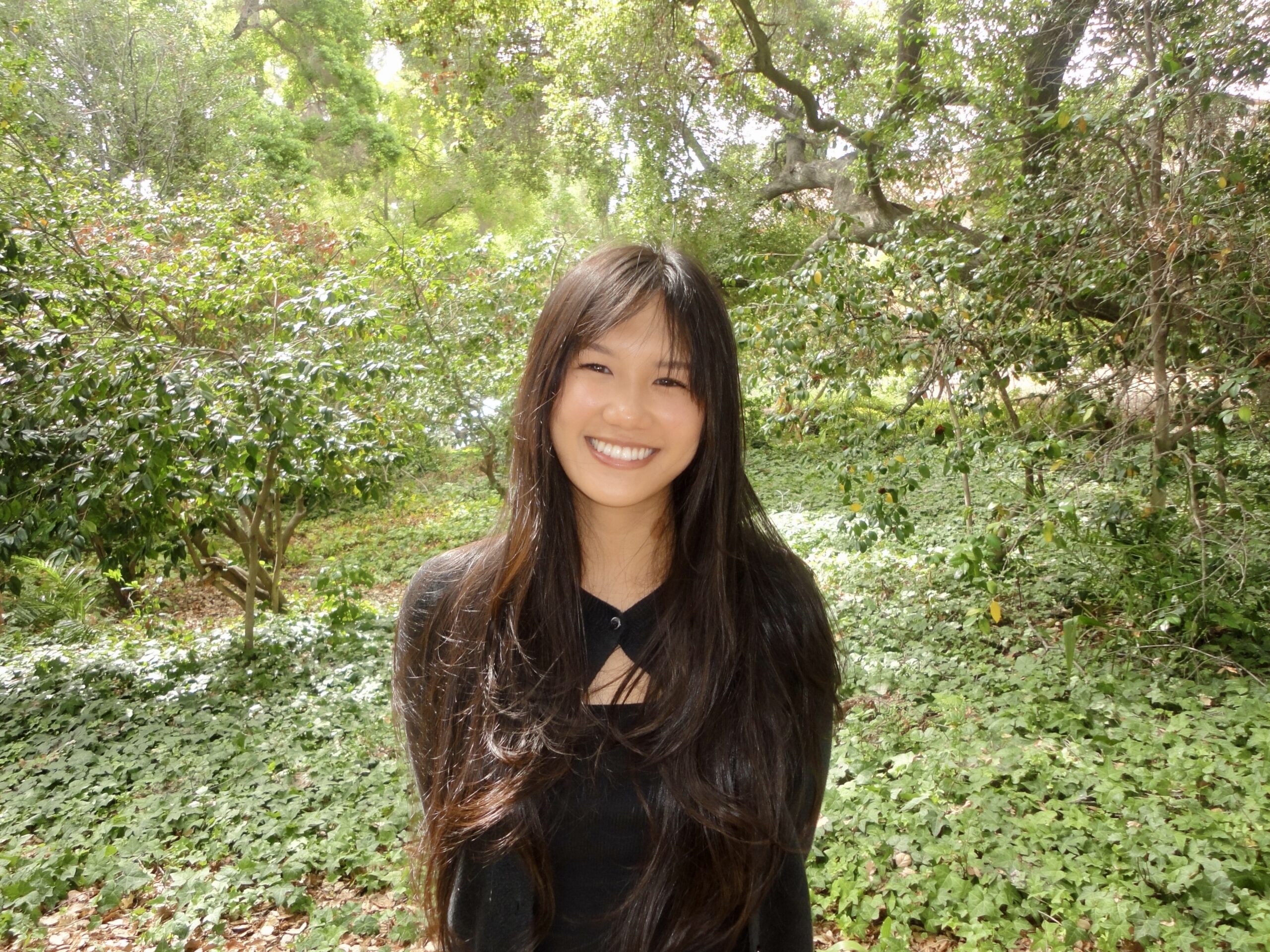
Alyson Kao
Alyson was born and raised in Southern California in Chino Hills. She attended California State University of San Marcos for her undergrad where she developed a passion for the environment, and ultimately graduated with a degree in Environmental Studies and a minor in Geography. During her time there, she investigated the intersections between the environment and social, cultural, and political systems. Her capstone project focused on the impact of environmental education in fostering a positive attitude towards environmental stewardship for children.
After leaving San Marcos, she participated in critical monarch butterfly conservation efforts as an Environment for the Americas intern. She was tasked with completing habitat assessments across military installations in Central California which later directly informed restoration efforts for monarch butterfly habitat. Her time spent in the field coupled with research writing, education outreach, and GIS work, sparked her passion for working in conservation. Alyson is eager to be back in Southern California pursuing a graduate degree within the MCRS program. She is eager to work alongside driven ecologists and to develop the essential skills to become a leader in conservation and restoration in California. In her free time she enjoys cooking, working out, reading, and exploring farmers markets and coffee shops.
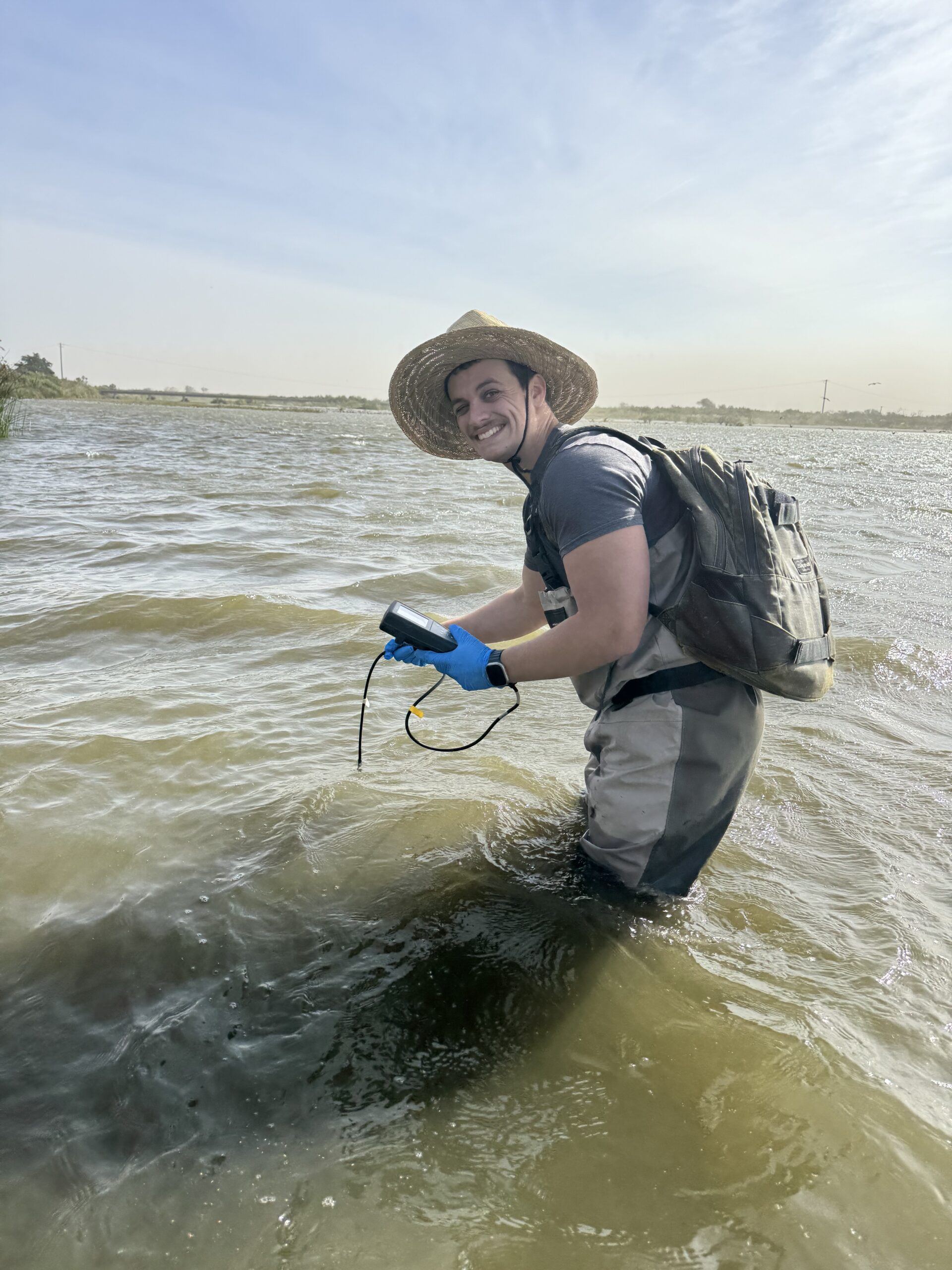
Samuel Lillywhite
Ever since Samuel was young, he was always fascinated with the outdoors. Being born and raised in Huntington Beach, California, he spent much of his time outdoors and in the water. When he was with his grandparents, they would spend time going to the parks and wetlands around town, pointing out the many different species of birds (while getting chased by the occasional goose). This helped instill a passion within Samuel to pursue the ecology field and want to learn more about the natural world around him. He would graduate from UCI with a bachelor’s degree in Biological Sciences, then spend almost two years in the scientific research field. Here his work would include studying algal toxins and pathogens in water and shellfish samples along the Southern California coast. Samuel is excited to continue his scientific journey with the MCRS program, and to develop skills involving restoration and ecological management.
In Samuel’s free time, he loves going to the gym, cooking new recipes, reading, hiking, and playing with his dog Rhett.

Sydney Loper
Sydney was born and raised in Centreville, VA. Her fascination with the natural world began at a young age and was fostered through family vacations on the Maine coast. She completed her undergraduate degree at the University of Maine, where she studied Marine Science with a concentration in Biology. During her time at UMaine, Sydney assisted in research on the physiological plasticity of the Gulf of Maine rocky intertidal. Her developing fascination with ecology and restoration has led her to MCRS, where she is excited for the experiences to come. In her free time, Sydney enjoys swimming, tide-pooling, hiking, and watching bad reality tv!

Brianna Moreno
Brianna’s passion for the environment began around middle school, when an unsuspecting internet rabbit hole revealed the adverse effects of animal agriculture on various aspects of the environment. Since then, she has been drawn to all things nature, science, and sustainability. Wanting to explore outside the Los Angeles bubble she grew up in, Brianna went to Vassar College in New York, graduating with a Bachelor’s degree in biology. Her journey there further fueled her interest in this field – from conducting research on benthic macroinvertebrates in local water systems, to exploring the history of “invasive” species and its connections to settler colonialism and racial capitalism.
Brianna is excited to join the MCRS program and collaborate with other like-minded people who share a passion for ecological preservation and protection. She looks forward to continuing her education, concentrating her interests, and gaining the skills necessary to contribute to the scientific community, conservation efforts, and Earth’s health at large.
In her free time, she enjoys running, reading/listening to audiobooks, crocheting, and going to coffee shops!

Sarah Shimizu
Sarah grew up in Irvine, California where she developed a keen interest in birds and other wildlife. She attended UC Davis where she earned a B.S. in Evolution, Ecology, and Biodiversity and a minor in Wildlife, Fish and Conservation Science. During her time as an undergrad, Sarah PIT-tagged and banded wood duck hens and ducklings to study brood parasitism as an intern at the Eadie Lab. She also mentored student interns for the Putah Creek Highway Nest Box Program and banded hundreds of songbirds in Northern California.
Currently, she is working as an on-call wildlife biologist at Chambers Group conducting field surveys of shore birds and grunion for OC Parks. At night, she works as a veterinary technician at an animal urgent care. She is excited to meet peers and faculty with a similar passion for wildlife conservation and ecology. In her free time, Sarah enjoys birdwatching, hiking, drawing, and playing video games.

Jackson Wade
Jackson Wade grew up in the Bay Area of Northern California, and spent a great deal of his upbringing on the beach and in the tidepools along the California coast in Half Moon Bay. This upbringing was followed by an amazing four years at the University of Oregon, earning a B.S. in Geography and minoring in Spanish. It was there in Oregon where Jackson found his passion for wetland and coastal ecosystem restoration. Embarking on field trips throughout these years where he would make in-the-field measurements throughout different aquatic ecosystems around the Willamette Valley became Jackson’s niche, a niche in which he intends to focus towards coastal habitats. One of Jackson’s favorite restoration projects is the Giacomini Wetland restoration project in Tomales Bay of Northern California – a great spot for kayaking! Jackson also spent a semester in Northern Spain, supplementing his Spanish-speaking abilities that he intends to carry with him in future endeavors.
In his spare time, you can expect to see Jackson at any local coffee shop, on the beach, or at a record store – browsing for any rare Beyoncé records.
Jackson is very excited about what is to come as an MCRS student, and is hoping to gain real experience in environmental conservation that he can apply to his future goals in wetland restoration in his local community.
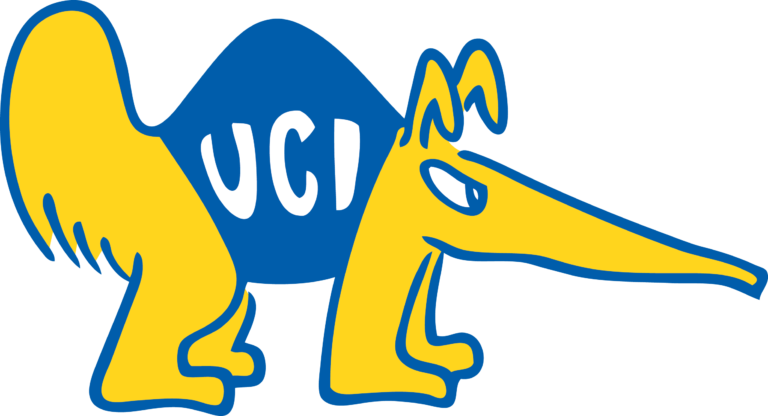
Melody Garza

Matthew Herberg

Lexi Hollister

Kira Johns

Jeremiah Kaplan

Kira Kitamaya

Sean Mitchell

Angela Sarunchartinonth

Maha Shbaita

Amanda Villacreses

Jessica Zamudio

Madeline Zhuo
Class of 2026
Cohort 8

Jerry Addison
Coming from Oceanside California, Jerry is an Eagle Scout who began his journey into the field of ecology after one short lecture in his introductory Biology course. He became drawn to the curious nature of how living organisms interact with their environment, and quickly changed his undergraduate major from Mechanical Engineering to Biology; however, it wasn’t until after he graduated would he realize the true nature of this field. While conducting remote surveys in the backcountry of Great Basin shrub steppe, Jerry saw the scars of a once native landscape, crossed by invasive species leaving the land devoid of its critical ecosystem infrastructure. Since then, he has spent years volunteering at initiatives like the Fallbrook Native Plant Restoration Team, Oklahoma’s Blue Thumb, testing water quality and assessing creek conditions, and organizing local creek clean up days with the City of Tulsa. While living in the migration path of the Monarch butterfly (Danaus plexippus) Jerry has taken an interest in invertebrate conservation and has fundraised, designed and installed a native pollinator garden for his apartment complex urging the public to see the benefits of supporting our native species. By joining the MCRS, Jerry hopes to enrich his professional communication skills with vital stakeholders in the private and public sector to relay the importance of achieving greater diversity of keystone native species and interspecies connectivity within our municipalities, not only our national parks.

Eliza Atwood
Eliza was born and raised outside of Pittsburgh, Pennsylvania, where she spent much of her childhood exploring the riverbanks and woodlands surrounding a post-industrial landscape. At an early age, she became fascinated with wildlife and how people interact with it. This fascination morphed into a career-driving passion to preserve biodiversity for future generations.
Eliza went on to study Environmental Science on the Conservation Science and Policy track at Brown University. There, she became involved in several conservation ecology research groups. In 2022, she spent a summer on the coast of Maine conducting behavioral entomology field research on a local butterfly species of conservation concern. Through this, Eliza learned the importance of long term environmental monitoring efforts, especially given changes in plant-animal interactions expected with rising temperatures. In 2023, she took this understanding to a Brown lab focusing on large herbivore nutrition dynamics in Yellowstone National Park. She spent a summer there collecting plant and fecal samples to use in a lab-based DNA metabarcoding senior thesis project that centered in on the usefulness of molecular techniques in understanding and predicting complicated plant-herbivore relations. Eliza hopes to continue exploring new ecological research methods in her graduate work, all while finding innovative ways to integrate these into conservation policy.
In her free time, she finds happiness in outdoor spaces by hiking, camping, and rowing. She is beyond excited to continue her passions and cultivate new ones with her new MCRS community. She has so much to learn and looks forward to taking on pressing environmental issues with her MCRS peers!

Grace Bahena
Grace was born and raised in Corona, California. She attended UC Santa Cruz for my undergrad where she developed a passion for ecology and conservation, and ultimately graduated with a degree in Ecology and Evolution. During her time there, Grace aided in research and conservation efforts of various seabirds, including Cassin’s and Rhinoceros auklets, on Año Nuevo Island north of Santa Cruz. Her time working on the island fueled a passion for working in species specific restoration and conservation. After leaving Santa Cruz, she worked in New Mexico as an Education intern along the Rio Grande where she was also able to aid in Sandhill Crane banding. Grace moved back to California to monitor Common murres on the coast south of San Francisco. She is excited about joining the MCRS program to gain skills and grow on my current knowledge to be able to lead restoration projects of declining species. In her free time, she enjoys reading, hiking, taking photographs, and exploring new areas.
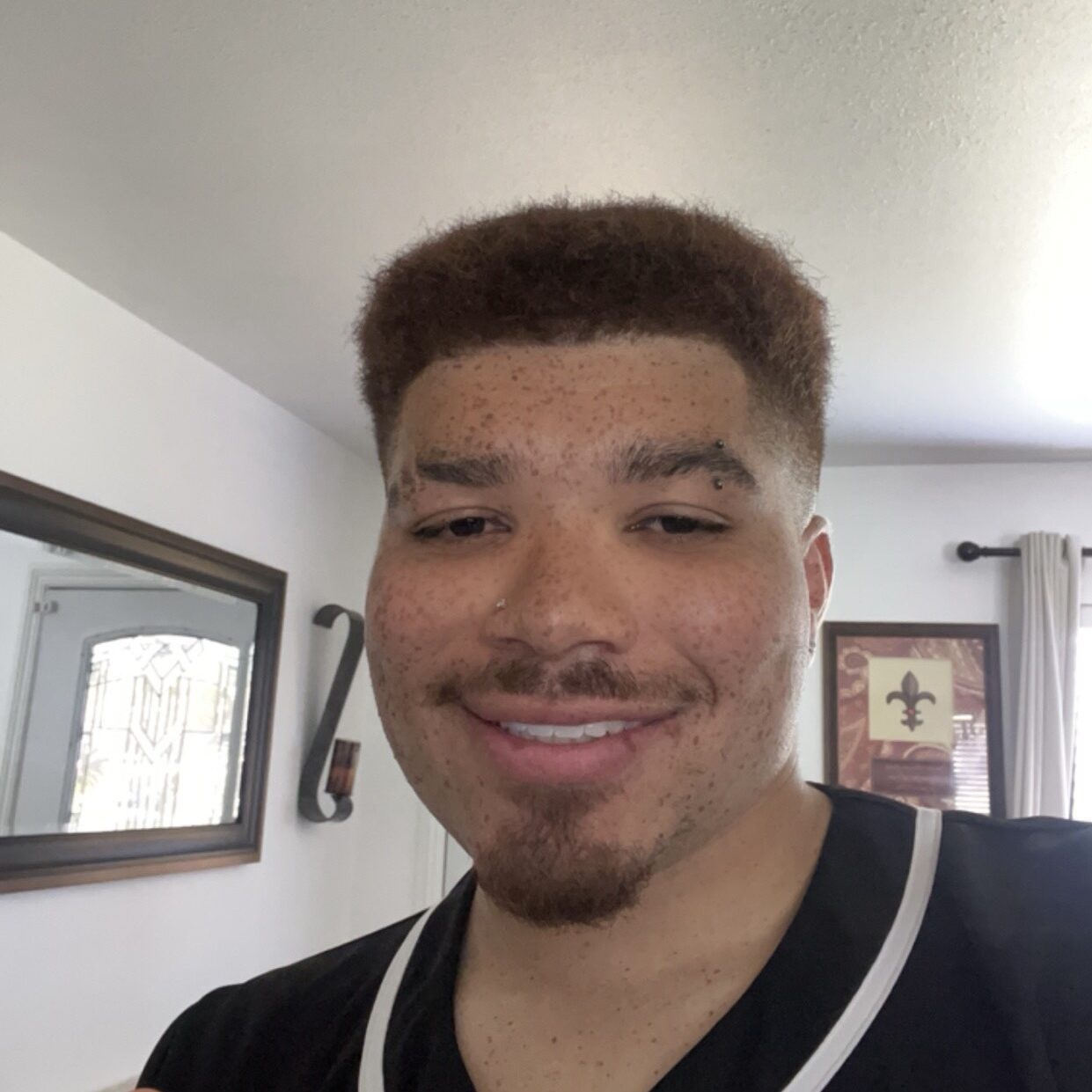
Shaun Barksdale
Shaun was born and raised in the Inland Empire, where he developed a deep appreciation for science and the natural world. He attended the University of California, Santa Barbara, earning a Bachelor of Science in Biological Sciences with a Minor in STEM Education. During his time at university, Shaun conducted research in restoration ecology focusing on environmental DNA of plants and the changing relationship between coral reefs and urchins due to climate change. These research endeavors fueled Shaun’s ambition to pursue a career in the field, aiming to expand his expertise and passion for restoration ecology. Shaun selected the MCRS program to advance his professional aspirations and connect with a community of like-minded individuals dedicated to conservation and restoration science. In his free time, Shaun likes to play soccer, volleyball, pickleball, video games and go hiking.
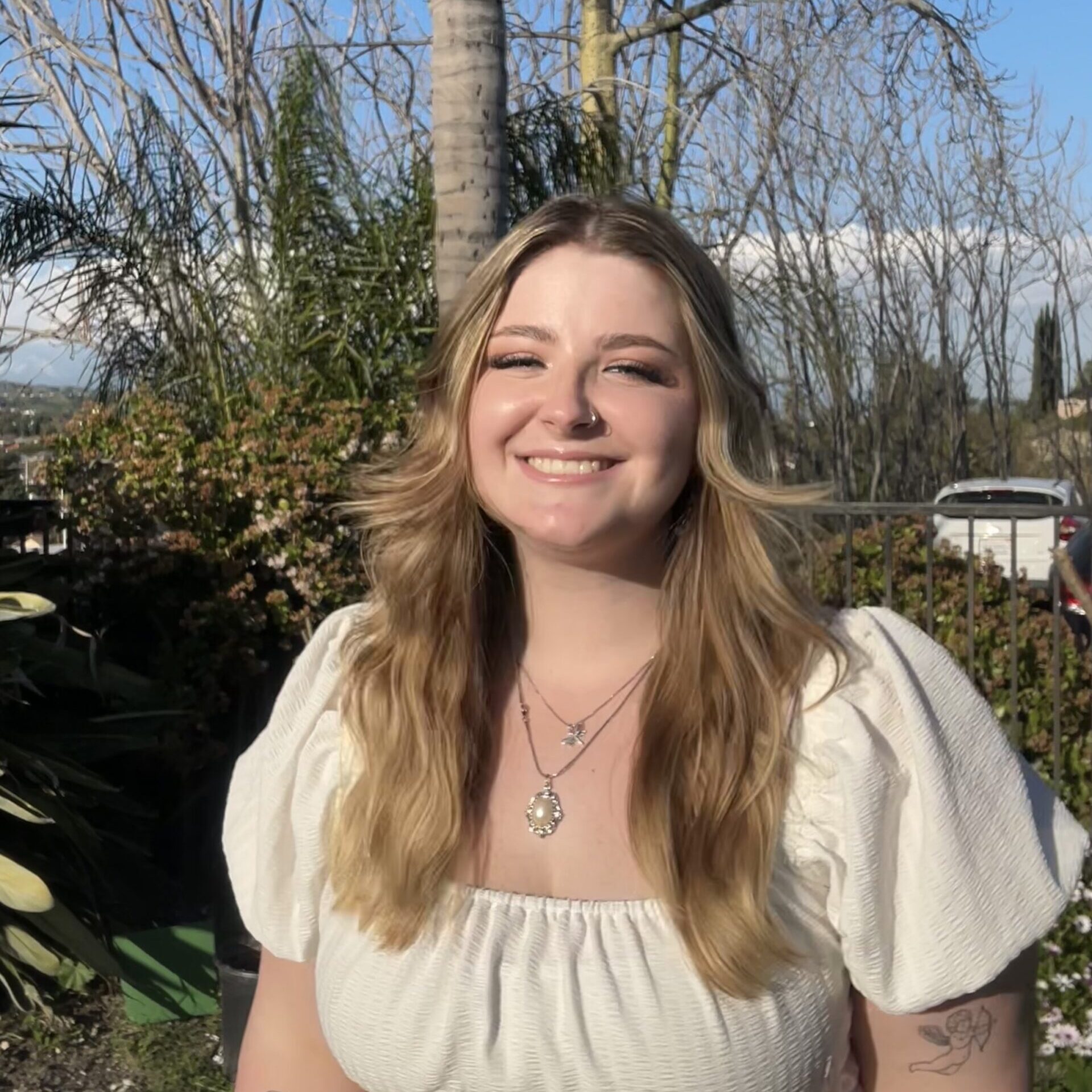
Annabelle Brown
Annabelle has a deep-rooted passion for conservation and environmental stewardship, stemming from her upbringing on a small family farm in California, where she developed a strong appreciation for the natural world. This led her to pursue a bachelor’s degree in Environmental Science and Political Science from Whittier College in 2022. During her senior year at Whittier, she explored the dynamics of environmental justice issues in Los Angeles through community organizing techniques. Interdisciplinary studies such as this one fostered her commitment to finding holistic solutions to complex environmental challenges where science, policy, and the public intersect. In 2023, Annabelle became a substitute teacher and regularly works with academically at-risk students, helping to spark their curiosity about learning. She also leads a gardening club within the school district, and gives students an opportunity to learn about urban agriculture and creating green-spaces that support local wildlife. This dedication to empowering underserved communities drives her mission to bridge the gap between science and the general public in a collaborative and inclusive way. Annabelle is eager to deepen her understanding of urban ecosystems and biodiversity. Her goal is to use her interdisciplinary background and passion for community-driven conservation to contribute meaningfully to the restoration and protection of ecosystems, both locally and globally. Annabelle enjoys gardening, cooking, painting, and creating miniatures of outdoor environments in her free time.

Valentina Giron
Valentina was born in Guatemala City, Guatemala. She immigrated to the United States when she was 8 years old and has always been fascinated with nature. In her home country she was used to a tropical climate and always being around nature. After taking environmental science her first year of college, she decided to be more involved in sustainable careers and resources. Valentina worked at an aquaponics greenhouse for 2 years and also worked at a laboratory doing parasite research in Chinook salmon. She has made it a goal to travel somewhere new every year abroad! In total she has traveled to 12 countries, with more to come. Fun fact, Valentina hates billionaires and tesla trucks.

Conor Kramer
Conor was born and raised in Laguna Beach, California, and where from a young age he developed an affinity for exploring the nearby hills, trails, and tidepools, and where he developed a keen interest in all manner of wildlife found. Conor has long had a natural desire to learn the identities and relationships of plants and animals found in his native backyard, no matter how obscure. At Pepperdine University, Conor studied Biology with an emphasis in ecology and, in his sophomore year, he joined a research laboratory that partnered with the U.S. Geological Survey toward the study of riparian habitats and their corresponding biodiversity and conservation in the Santa Monica Mountains. It is through this experience, as well as through other ecological undergraduate curriculum that he discovered his fascination with taxonomy, habitat, and related local ecological concerns pointing to a possible career in conservation ecology.
In his free time, Conor enjoys outdoor activities such as snorkeling, golfing, and hiking, with the latter often complementing his practice of wildlife photography. Conor is eager to join the MCRS family, to make friends, and to hone his skills and passion into something that will help push him towards his professional goals.

Alexander Lou
Growing up in San Diego, Alex was naturally drawn to the ocean. From fishing to scuba diving, you’ll usually find him near the water in his free time. He obtained his B.A. in Environmental Sciences with a minor in Biology from UC Irvine, where he also gained valuable terrestrial fieldwork experience from the Center for Environmental Biology and UCI NATURE. Currently, he works as a fisheries scientific aid for the CA Department of Fish and Wildlife, for which he’s participated in numerous projects, ranging from electrofishing surveys to mark and recapture studies for freshwater fishes. With MCRS, Alex looks forward to gaining the necessary skills to become a leader in the field of conservation and working with other passionate ecologists.

Steven Mallonee
Steven was born and raised in Tustin California. He graduated from the University of California, Irvine 2024 with a Bachelor of Arts in Environmental Science and Policy, a minor in Urban Studies, and a specialization in Geographic Information Systems. Steven is an Eagle Scout, an active volunteer in Scouting, and has worked as the Nature Director at Schoepe Scout Reservation at Lost Valley Summer Camp for three years. Steven is excited to embark on this MCRS journey and hopes to utilize urban landscaping to restore native habitats.

Isolde Pierce
Growing up in the small town of Mount Shasta, California, surrounded by the Cascade Mountain Range and the Shasta-Trinity National Forest, Isolde’s childhood differed from most. Disconnected from screens, she grew up immersed in nature, fostering a profound knowledge and passion for environmental conservation. Witnessing first-hand the detrimental effects of climate change on my hometown compelled me to pursue a bachelor’s degree in environmental studies at Soka University of America. Beyond taking classes such as Aquatic Conservation, Environmental Policy, or Climate Change Science, she was at Climate Reality Club meetings on campus, volunteering at beach cleanups, and advocating at climate protests in the community. While in undergrad, Isolde had the opportunity to study abroad in the Dominican Republic and take environmental science courses with locals which even furthered my passion for the field. For her capstone thesis, she worked with Dr. Monika Calef on my research project, “Sea Star Wasting Syndrome on the California Coast.” Using data from the online database MARINe, Isolde conducted a geographic analysis of the marine mass mortality event known as Sea Star Wasting Syndrome (SSWS) and its effects on the Ochre Sea Star (Pisaster ochraceous). Following graduation from Soka University of America, Isolde received a Fulbright scholarship as an English Teaching Assistant in the Canary Islands and taught English in a public school in Spain for two years. She is excited to continue my education and passion for marine conservation within the MCRS program. In her free time, she likes to play soccer, go on hikes, spend time at the beach, play guitar and sing and explore new trails and coffee shops.

Lucia Scarsi
Lucia Scarsi
Lucia was born in Buenos Aires Argentina but grew up in Miami Florida where she obtained her bachelor’s degree in Biology from Florida International University. Lucia’s passion for biology and ecology started at a young age after a summer research internship at Fairchild Tropical Botanical Garden. Since completing her undergraduate education Lucia has most recently lived in Jamestown, North Dakota, spending the last two research seasons working for the National Ecological Observatory Network (NEON) as a temporary field technician; and most recently as a lead temporary field technician. At NEON she was responsible for conducting and supervising intricate laboratory processes, particularly within the Soils lab and Beetle lab. By learning how to perform a variety of different sampling methods she was able to support NEON’s mission of collecting long-term open-source ecological data to better understand how ecosystems are changing. She is excited about the opportunity to join the UCI community and to work toward the preservation of our planet’s natural and cultural heritage and hopes to make a meaningful contribution to the conservation of our world’s unique ecosystems.

Arianna Acevedo-Ithier

Gerardo Avila

Isabella Beasley

Ali Berens

Laura Brignoli

Kellee Collier

Vanessa Jorgensen

Lydia Kim

Danny Lackey

Ty McCottry

Kara Presley

Hefan Zhang
Class of 2025
Cohort 7
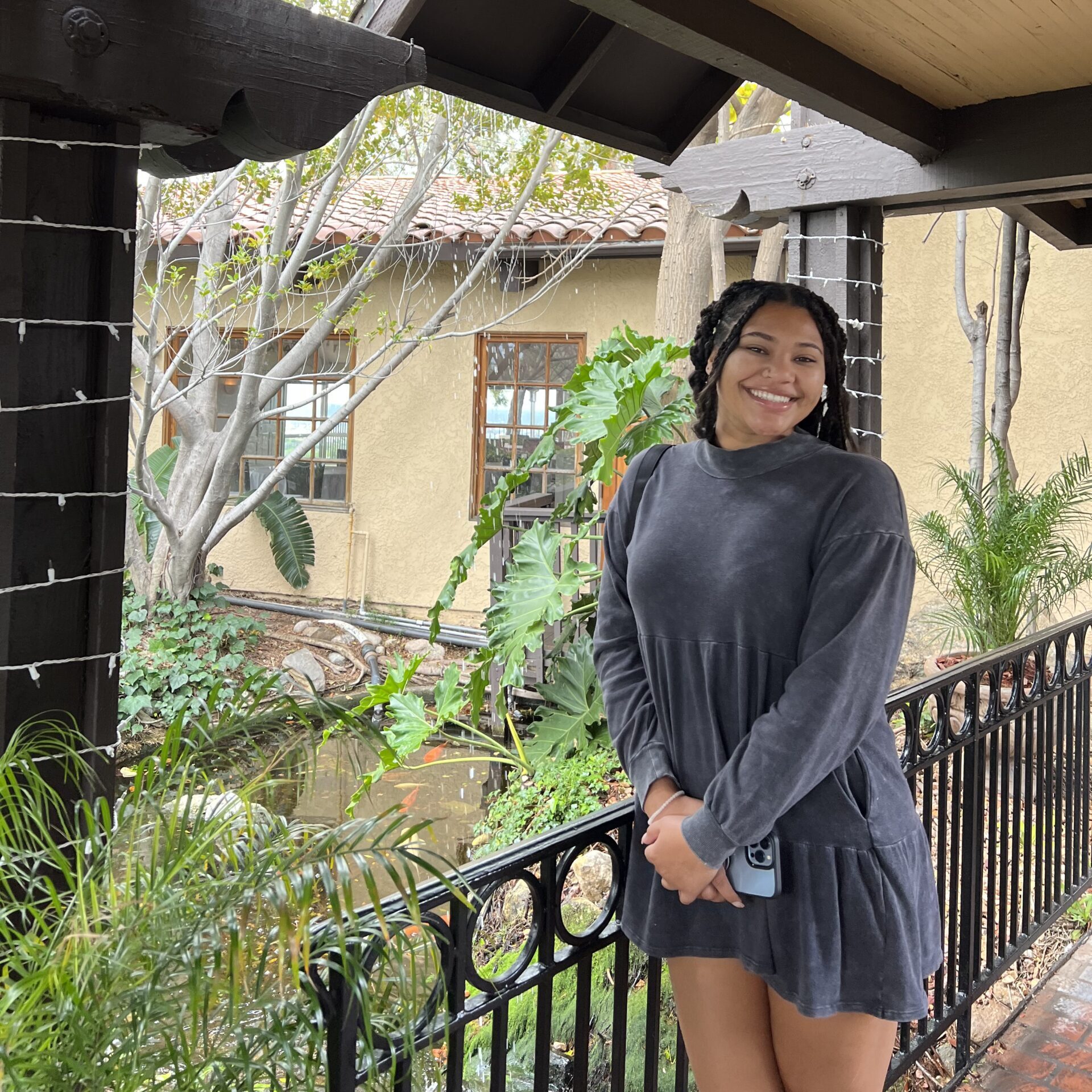
Makenzie Boglin
Makenzie was born and raised in Orange, California. She had always been a Cali girl but decided to take a chance in the desert for her undergraduate degree. At GCU, she studied Environmental Science with a minor in African-American experiences. During her time there, she quickly found out she has a knack for taking naps in the sun and reading in parks to get her daily dose of nature. She was also able to participate in an AZGF research study that looked closely at native species populations through her conservation course. This is what re-sparked her curious nature and got her thinking about what she wanted to do more of in her life. Makenzie was also volunteering in different community gardens at the time, which exposed her to different opportunities and lessons. She had previously worked as a healthcare technician alongside an arborist, so being outdoors among the ecosystems was where she knew she belonged. All her curiosity led her directly to the MCRS program, where she is happily making a new path for herself.
In her free time, she loves to spend time with her family, read anything she can get her hands on, and occasionally craft to keep her hands busy. She is hoping to learn how to roller skate and really wants to get into a yoga routine. Makenzie is super excited to be part of the MCRS program and is looking to gain more knowledge on what it takes to be a conservationist. With time, she wants to delve deeper into forestry and habitat restoration.

Ciara Cipponeri
Ciara was born and raised in Ripon, California. Growing up in the agricultural heartland of the Central Valley, she helped out with the family almond orchard and grew a love for horticulture. At the same time, she also found a passion for drawing and art. In her undergraduate studies, she majored in Digital Art Engineering at Cogswell College, which combined art with computer science. After graduating in 2019, she worked as an intern at SideFX Software to develop procedural generation tools for artists and game developers. Studying the patterns and structures of biological organisms for her tools, she grew to love the science of biology. From there, she started volunteering with the Roundhouse Aquarium at Manhattan Beach while taking additional biology and chemistry courses in order to pursue a higher degree. Thinking of her home in the Central Valley, she realized the dire need for ecological restoration. Currently, Ciara works as a Lead Field Naturalist at Inside the Outdoors, teaching elementary students in various indoor and outdoor settings about environmental topics. Over the summer of 2024, she was a Restoration Scholar at River Partners, where she assisted ecologists and studied the growth patterns of native plants at their restoration sites. In her free time, Ciara likes to care for her many potted plants, draw, play video games, and go camping.
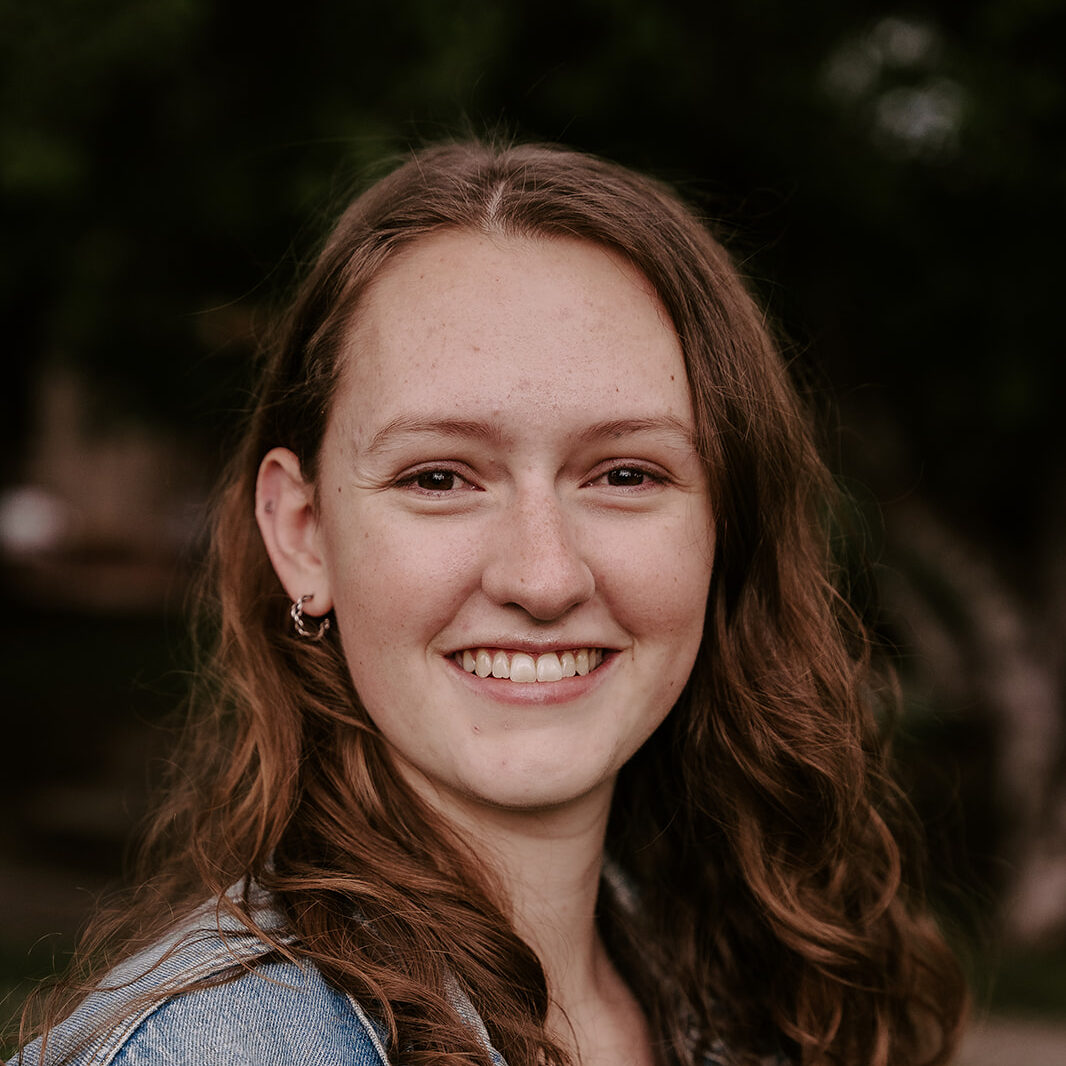
Evelyn Doebling
Evelyn was born and raised in Los Alamos, New Mexico, where frequent family camping and hiking trips inspired a love for the outdoors. She attended Tulane University and graduated with a bachelor’s degree in ecology and evolutionary biology in 2023. She realized her passion for field work when she attended a two-week field course in the Chocó rainforest in Ecuador, where she conducted short-term research on seed dispersal for the Foundation for the Conservation of the Tropical Andes. Evelyn decided to continue her education with MCRS to enrich her field knowledge and develop her professional goals. She has a wide range of interests, including environmental education, forestry and fire maintenance, and animal monitoring. In her free time, she likes to watch new series, read novels, paint, and crochet.
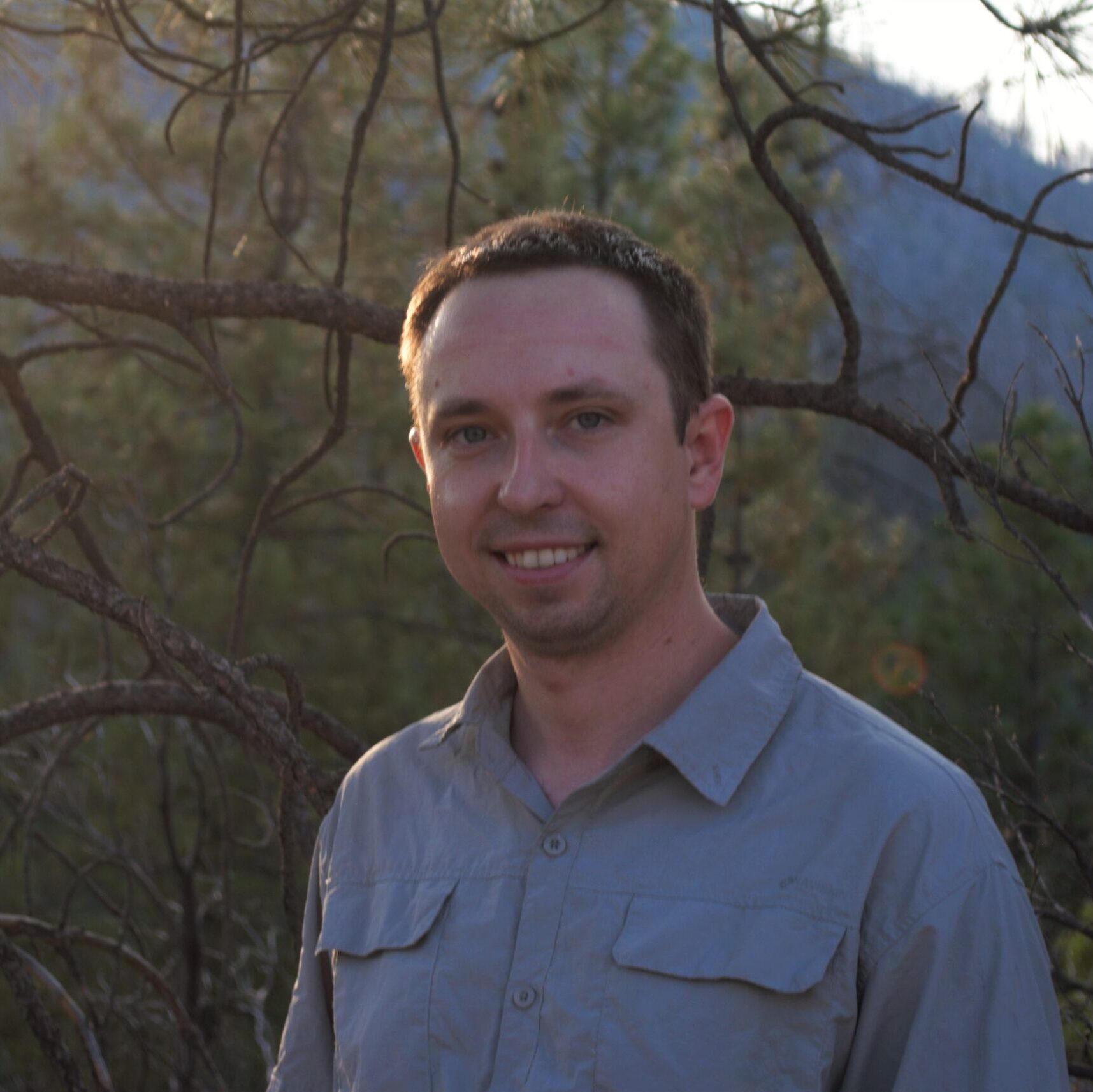
Justin Felder
Justin grew up in both Orange and San Diego Counties, where he was fortunate enough to have parents who fostered an interest in science and the outdoors. This eventually coalesced into a desire to leverage a career in environmental science to protect the natural world. While attending the University of Washington, majoring in Environmental Science, Justin developed a particular fascination and specialty in vascular plants, a concentration refined by working as a botany technician and consulting plant surveyor after graduating. He wishes to leverage the experience and knowledge gained from the MCRS program to help preserve and protect both rare and keystone plant species and the communities they inhabit, whether it be in the private or public sector.
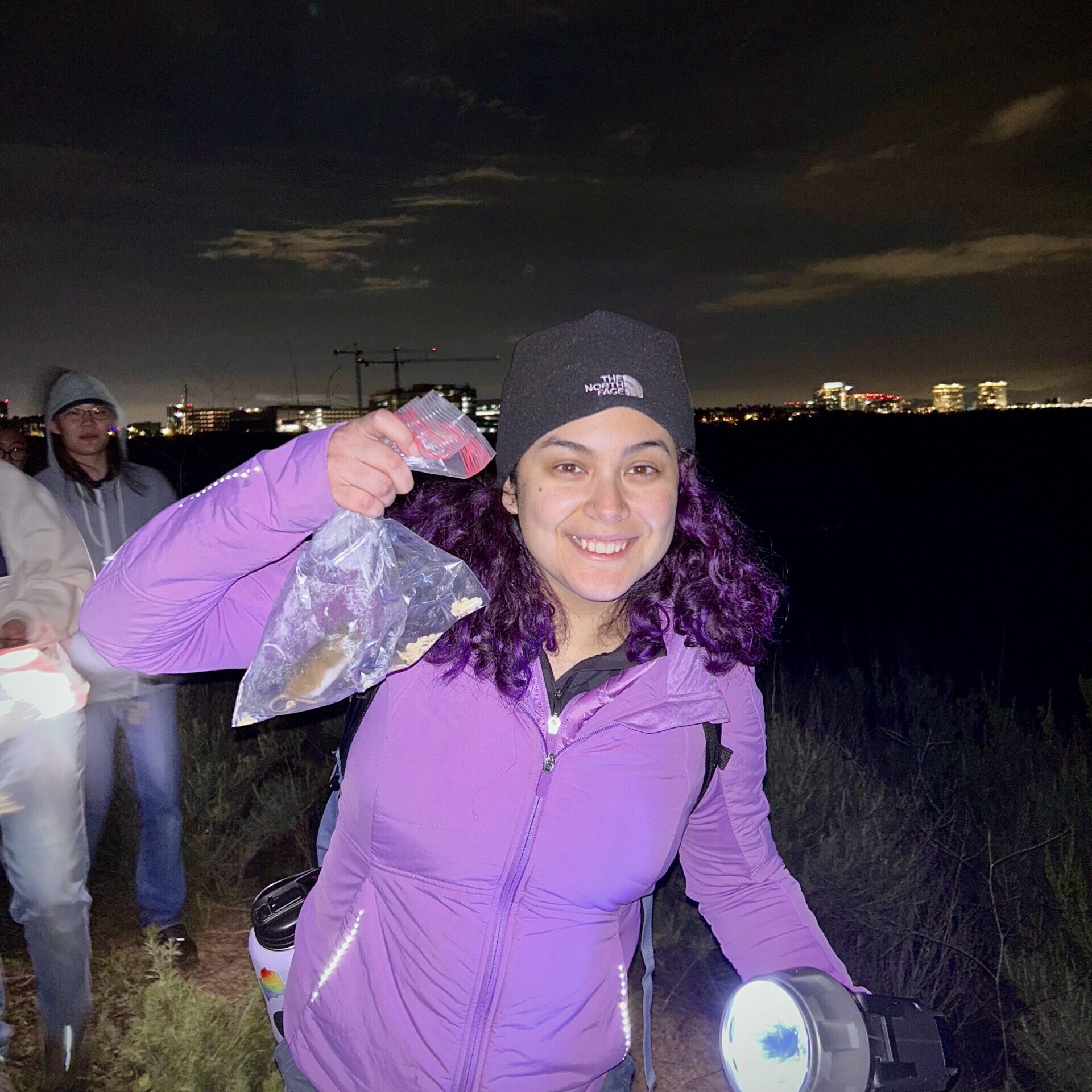
Izzy Funes
Izzy Funes (She/Her/Hers) was born and raised in Burbank, CA. Her passion for biology and the sciences began at an early age as a frequent attendee of the Los Angeles Zoo, The California Science Center, and the Natural History Museum. Some of her first nature mentors were her parents, who often took her on hikes and camping trips throughout central and southern California. This exposure to nature led her to pursue a B.A. in Biology at Occidental College.
Despite having an academic background predominantly in Cell and Molecular Biology, Izzy became passionate about conservation during her senior year of undergraduate during her senior thesis course titled Pandemics, Climate Change, and Conservation. In this course, she learned about how habitat loss and fragmentation, coupled with rapid urbanization in rural communities, is increasing negative human/wildlife interactions and the human risk for zoonotic disease. This course encouraged her to change professional directions from pursuing a career in health care to a career in conservation. After receiving her undergraduate degree, Izzy became a dedicated wildlife and conservation educator while working with the Learning & Engagement Department at the Los Angeles Zoo. Here, she engaged with communities of various socioeconomic backgrounds to convey the importance of having a connection with and protecting wildlife spaces. This directly aligns with her current professional interests of creating accessible conservation education outlets and equity for low-income communities of color in southern California.
Outside of academics, Izzy is an avid crossfitter and runner, enjoys exploring the outdoors, and is an active member of the electronic dance music community.

Martha Gonzalez
Born and raised in Orange County, California, Martha is a double anteater attending UCI for her bachelor’s in environmental science and now a part of the MCRS program. Martha’s pursuit of a career in the conservation field has taken her across the country – from trail work in Arizona to working on native plant propagation at the North Cascades National Park nursery in Washington to native seed collecting across Grand County in Utah. She is also familiar with the local terrain having held an internship at Audubon’s Starr Ranch Sanctuary in Trabuco Canyon and working with the Orange County Water District’s natural resources department. Having been exposed to arid deserts, temperate coniferous forest, wetlands, and coastal sage scrub habitat, Martha has developed an appreciation for all types of ecosystems along with an ability to adapt to new environments. Even when her work involves a big field component, she still enjoys getting outside through hiking, backpacking, and camping. Upon completion of her Master’s, she hopes to work in a role as a restoration ecologist.

Tory Jaimez
Tory was born and raised in Sacramento County and attended Del Campo High School in Fair Oaks, California. Tory graduated in 2019 from UC Irvine with a BS in Ecology and Evolutionary Biology. His passion for the environment stems from exploring the Sacramento River, yearly camping trips, and community service projects. He held a research position in the Mooney Lab for the last two years of his undergraduate career, studying plant-arthropod interactions. After his undergrad, he held positions performing bench work in environmental and medical laboratories. Tory is currently a field naturalist at Inside the Outdoors. In his free time, he hikes, gardens, and volunteers with his husband. He hopes to gain the knowledge and experience to pursue restoration projects with strong community engagement components.

Katelin Lally
Katelin Lally obtained their Bachelor of Science degree in Marine Sciences from California State University, Monterey Bay, where they studied from 2015 to 2018. Katelin Lally has a diverse range of work experience in the field of marine mammal research and animal care. Katelin most recently worked at the National Marine Mammal Foundation (NMMF) as a Research Assistant and Research Intern, where they conducted behavioral assessments, managed enrichment sessions, and assisted in research projects related to marine mammal acoustics. Prior to NMMF, Katelin worked as an IACUC Coordinator at the University of Southern California, where they analyzed protocols and managed meetings related to animal research. In addition, Katelin has interned at AIMM – Marine Environment Research Association, where they conducted research on species recurrence and observed the behavioral impact of whale-watching vessels. Katelin also interned as an Education Intern at the Aquarium of the Pacific, where they engaged with guests and developed educational programs. Furthermore, Katelin has volunteered at Dolphins Plus, Camp SEA Lab, and The SPCA for Monterey County, where they gained hands-on experience in animal care, research, and education.
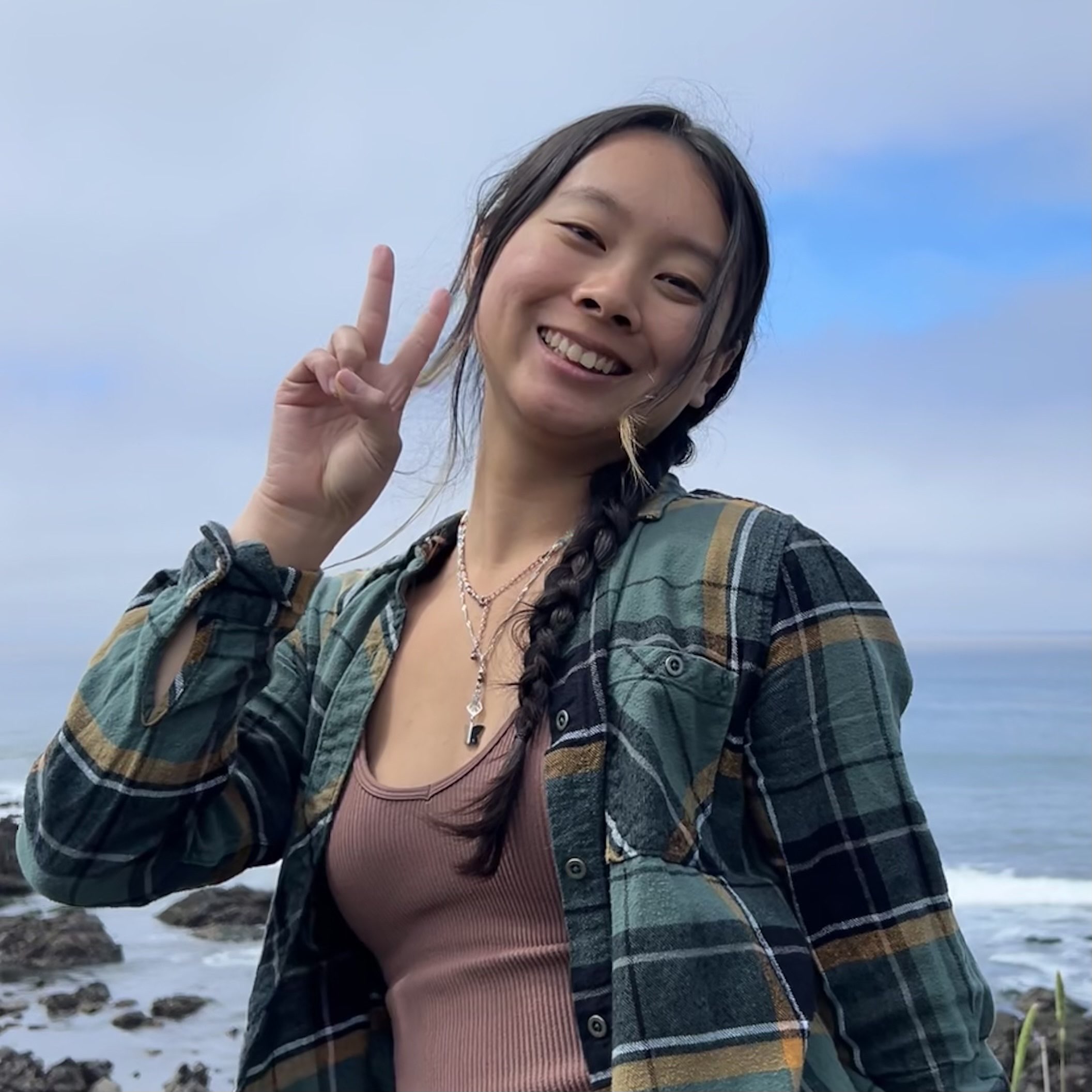
Lauryn Le
Lauryn was born and raised in Los Angeles County. She obtained her Bachelor’s degree in Zoology at California State Polytechnic University, Pomona. There she assisted in two laboratories with Dr. Liz Scordato and Dr. Joan Leong. Her main focus was working on camera trap footage of wildlife in farmlands and native bee behavior in reaction to pesticides. While she loved the laboratory work, Lauryn grew her passion in education and outreach working at Three Oaks Outdoor Science School (TOOSS). At the camp, she was a Naturalist that led science lessons while hiking through Lake Arrowhead. Her curriculum is still used at TOOSS today for thousands of students to learn from. During her career, she worked in the biotechnical industry for pharmaceutical companies. After over a year in the industry, Lauryn decided to pursue a Master’s to pursue her dream of working as an Environmental Educator for Title 1 schools. She hopes that one day nature can be accessible for all without any financial barriers.

Ann Marsolais
Ann was raised in San Clemente, California, and developed a love of science at an early age. She enjoyed exploring nature on family camping trips and volunteering at zoos and aquariums. Ann began her undergraduate career studying zoology in Hawaii and ultimately graduated from the University of California Santa Cruz with a degree in Ecology and Evolutionary Biology with highest honors. Her initial focus was evolutionary biology, and she completed undergraduate research in the Thomson Lab at the University of Hawaii at Manoa testing alternate DNA extraction methods and DNA sources using invasive anoles, Anolis sageri. While completing her degree in California, her focus shifted to freshwater ecology and she participated in a study on Mosquitofish, Gambusia affinis, populations’ reproductive behaviors, and the evolutionary and ecological effects of sexual harassment. After graduation, Ann gained professional experience working at the California Department of Fish and Wildlife as a scientific aid. She worked as a sampler on the California Recreational Fisheries Survey, monitoring recreational marine sport-fishing catch and effort to help inform resource management. Ann is excited to be pursuing a Master’s in Restoration and Conservation Science. She is passionate about the conservation and restoration of freshwater species and habitats and looks forward to developing the skills to take on challenging and rewarding positions in environmental consulting. In her free time, Ann enjoys gardening and hiking.
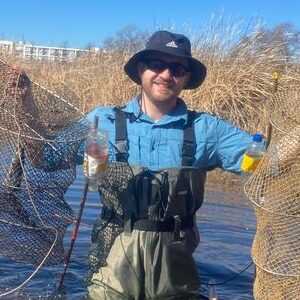
Thomas Shields
Thomas is an Orange County local who grew up in Anaheim, CA. Growing up, Thomas spent a lot of his time outdoors through the Boy Scouts of America, eventually earning the rank of Eagle Scout. During these formative years, he cemented his love of the outdoors and passion for conservation. He graduated from the University of California San Diego with a degree in Ecology, Behavior, and Evolution in 2021. While attending UCSD, Thomas spent a summer in Costa Rica tagging sea turtles and discovering his love for marine ecosystems. Later in his academic career, he ran the conservation-focused talk show “Talk on the Wild Side” with the student-run radio station KSDT and worked on his senior thesis studying poaching in San Diego’s local Marine Protected Areas with WILDCOAST. After graduating, Thomas spent two years working as an environmental consultant conducting a wide variety of plant and animal surveys. He hopes that the MCRS program will give him the knowledge to take his passion for conservation even further, either through work in academia or the private sector.
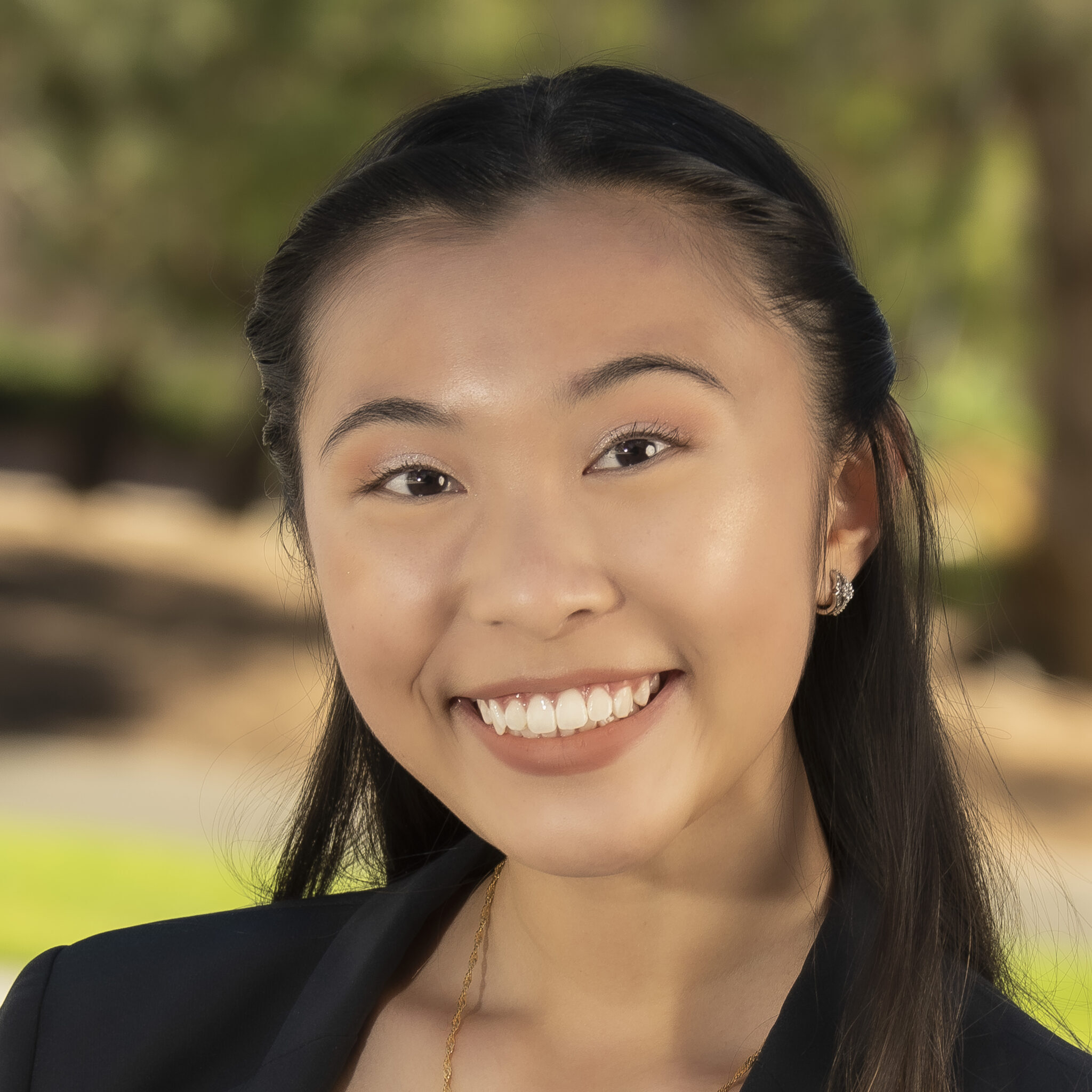
Jessica Sofian
Jessica was raised in the Inland Empire, where she grew a love for science and nature. She attended the University of California, Santa Barbara, and graduated with a Bachelor of Science in Environmental Studies and a Minor in Earth Sciences. During her undergraduate career, Jessica’s research in restoration ecology involved the environmental DNA of plants and micro-invertebrates within vernal pools around Santa Barbara. Her research projects catalyzed a desire to pursue a career in the field, and she hopes to continue building upon pre-existing knowledge to enrich and refine this passion for restoration ecology. Jessica chose the MCRS program to develop her career goals professionally and find a community of like-minded individuals who share her enthusiasm for conservation and restoration science.

Nicholas Spritzer
Nicholas, also known as Nico, was born in Los Angeles but grew up in the Bay Area. His passion for ecology and nature began with his many trips to Rio de Janeiro, the birthplace of his parents. He first explored his interest in ecology and conservation during high school, where Nico interned every summer at the California Academy of Sciences in San Francisco, where he taught guests about the exhibits and led fun activities and games about the specimens held at the museum for children.
Nico then attended the University of California, Santa Cruz, where he earned his Bachelor’s in Science in Ecology and Evolution. During his time in Santa Cruz, he took numerous classes and field courses in herpetology, marine mammal conservation, wildlife ecology sampling, and restoration ecology. He even participated in a field quarter visiting various UC reserves while conducting research projects. He also interned and was eventually hired as part of a team of student conservationists at the Younger Lagoon Natural Reserve in Santa Cruz. He was involved in restoration projects and helped lead monitoring surveys for reptiles and amphibians at the reserve. Nico also interned at the Fort Ord Natural Reserve in Marina one summer, conducting reptile population surveys, specifically focusing on Blainville’s horned lizards.
These experiences have fueled Nico’s passion for conservation work, particularly for endangered species in both marine and terrestrial environments. He decided to continue his education with MCRS to enrich his knowledge of the field and develop new professional skills to reach his career goals in the field of conservation science. In his free time, Nico enjoys playing and watching soccer, watching movies, going on walks and hikes, and hanging out at the beach.
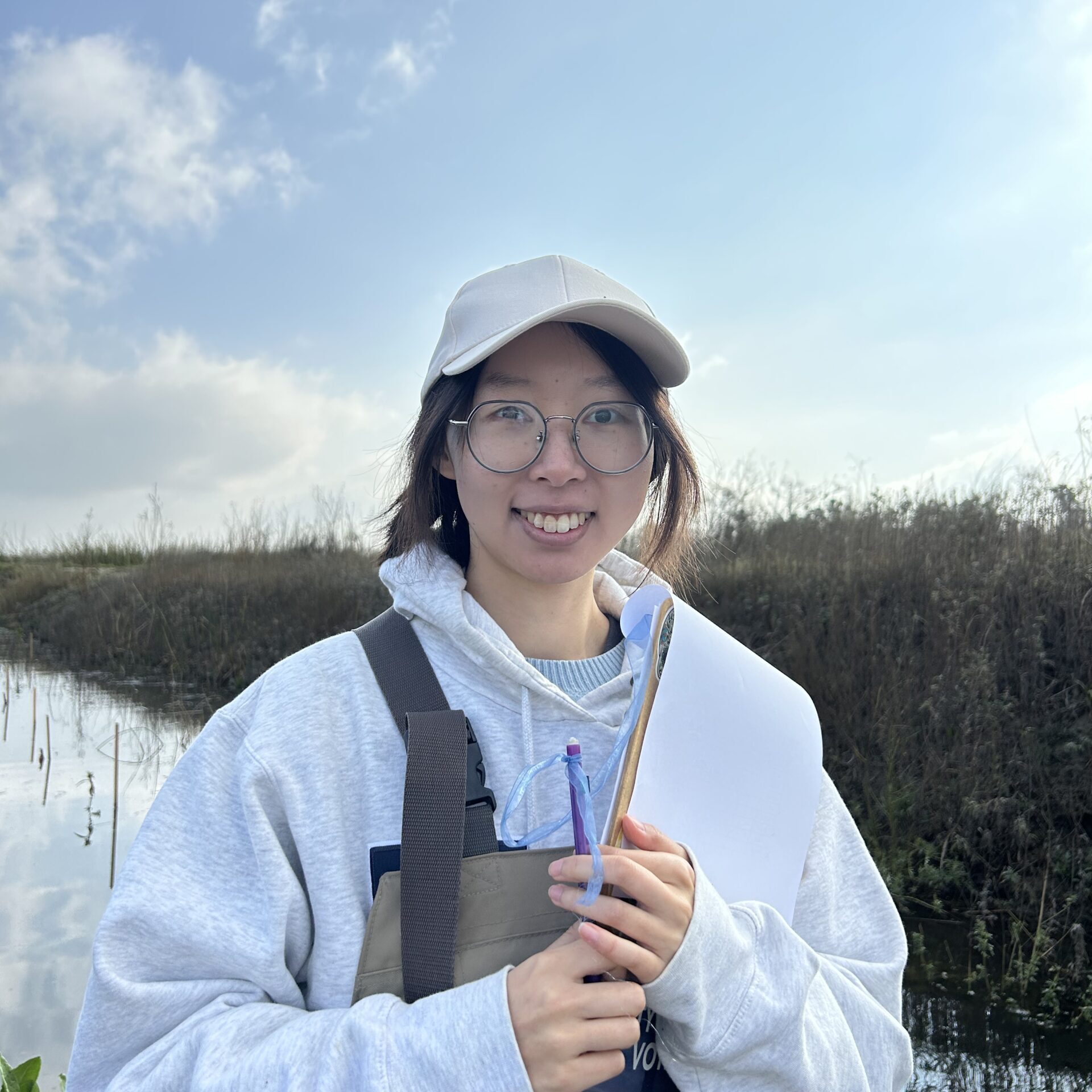
Yvonne Xie
Yvonne was born and raised in Shanghai, China. She has been fascinated by nature since she was a child. During the undergraduate stage, she decided to continue pursuing her interest in nature and chose ecology as her major. There, she worked in several labs within different areas, studying bird behavior, plant genomics, and marine microorganisms. She conducted her graduation thesis on habitat selection of overwintering ducks in Chongming wetland. She also participated in many extracurricular activities, such as volunteering with the Little Penguin Protecting Program in Otago, New Zealand, and serving as a museum guide in the bird section at Zujia Specimens Museum. In her free time, she enjoys food and traveling. Yvonne joins MCRS to broaden her vision and further deepen her understanding of ecology, as well as find her future career goal. Through the study here, she hopes to apply her knowledge of ecology to actual conservation efforts.
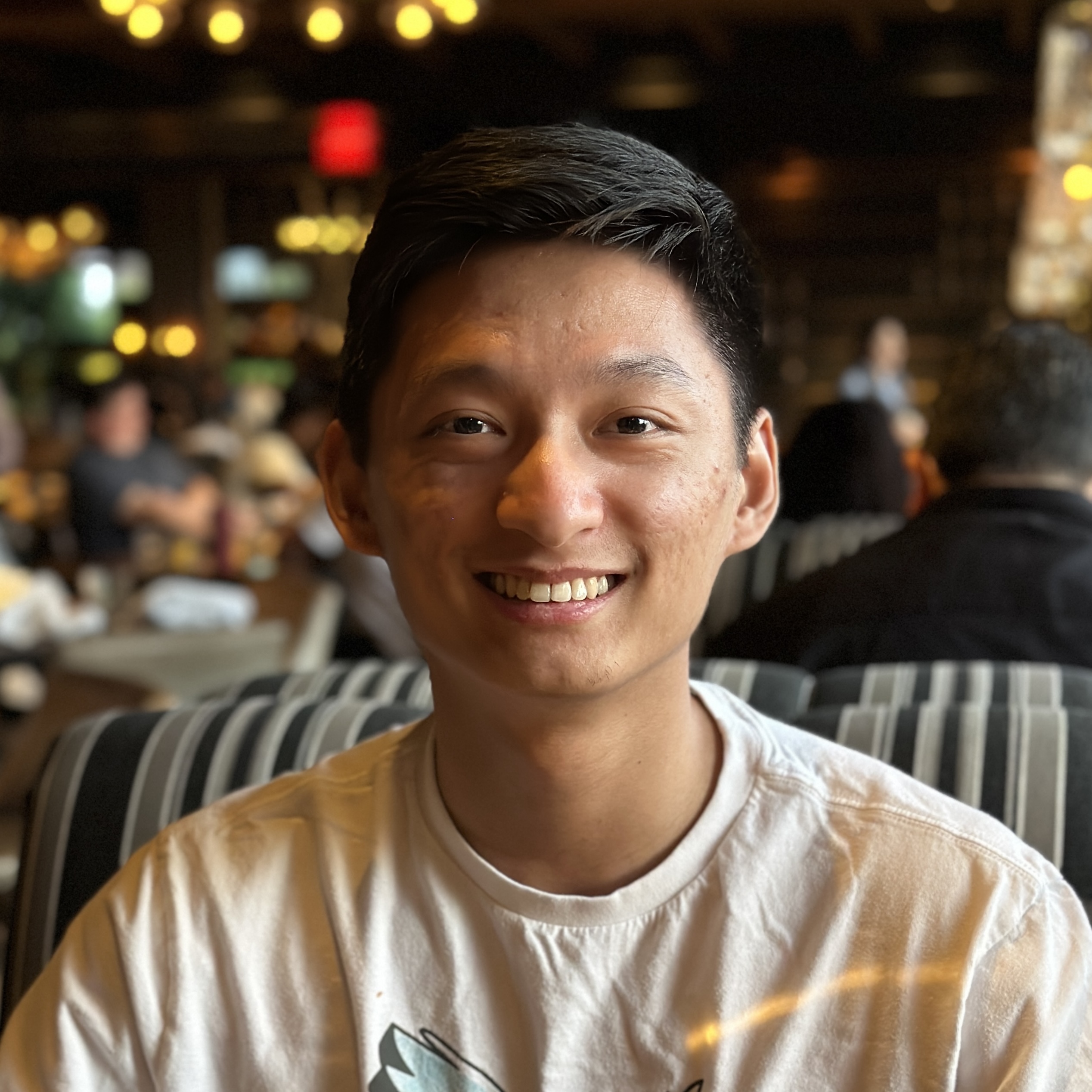
Justin Wang
Justin was born and raised in Shanghai, China. Since high school, he has shown a great interest in nature and ecology. During his undergraduate studies, majored in biology at University of La Verne, he was lucky enough to contribute to a research led by his professor which was then published to a Journal. Justin seeks more in-depth learning experiences here at UC Irvine as a part of the MCRS program to help broaden his knowledge, specifically on terrestrial ecosystems and environmental policies. Justin wishes to work with professional scientists and organizations to make positive environmental impacts worldwide. Ultimately, hoping to create a world where sustainability and human development do not conflict, Justin continues to expand his capabilities in both academic and professional settings.

Matthew Bohn-Montes

Kelsey Hauf

Valerie Lee

Cherry Lentz

Sully Riley

Luke Willett
Class of 2024
Cohort 6
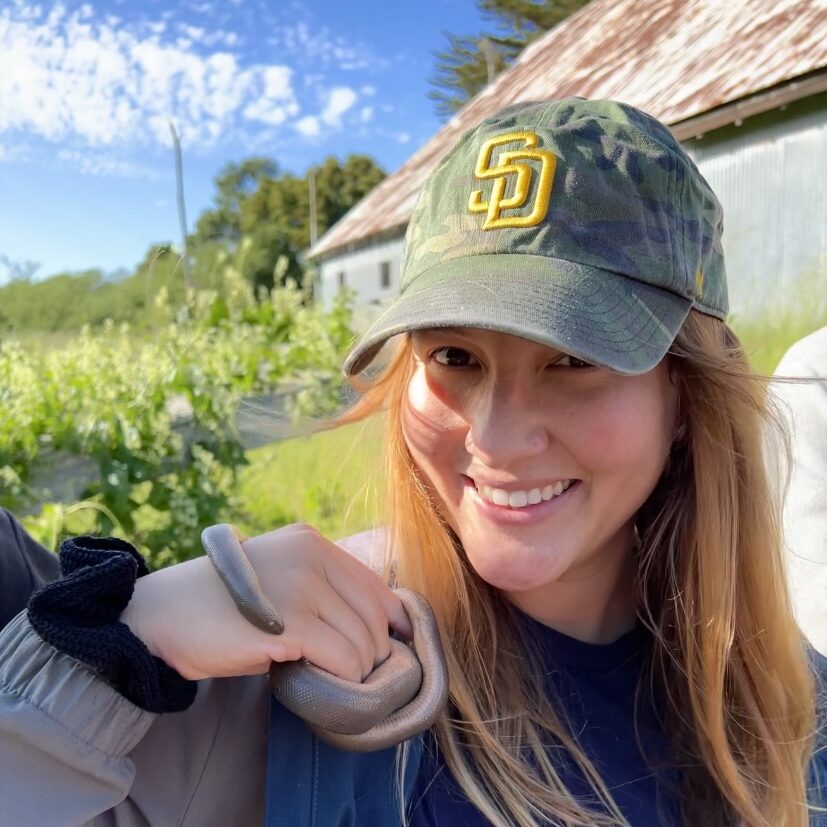
Alexiss Rivas
Alexiss is committed to increasing equity and justice in the environmental sector. She received a B.S. in Cognitive and Behavioral Neuroscience from UC San Diego and desires to use this background in tandem with the information gained from the MCRS program to further advances in the field of conservation psychology. She is particularly interested in values and behaviors, particularly those associated with the urban development of the southern California coastline. She is on the marine track, and you can usually find her surfing or hanging around at the beach.
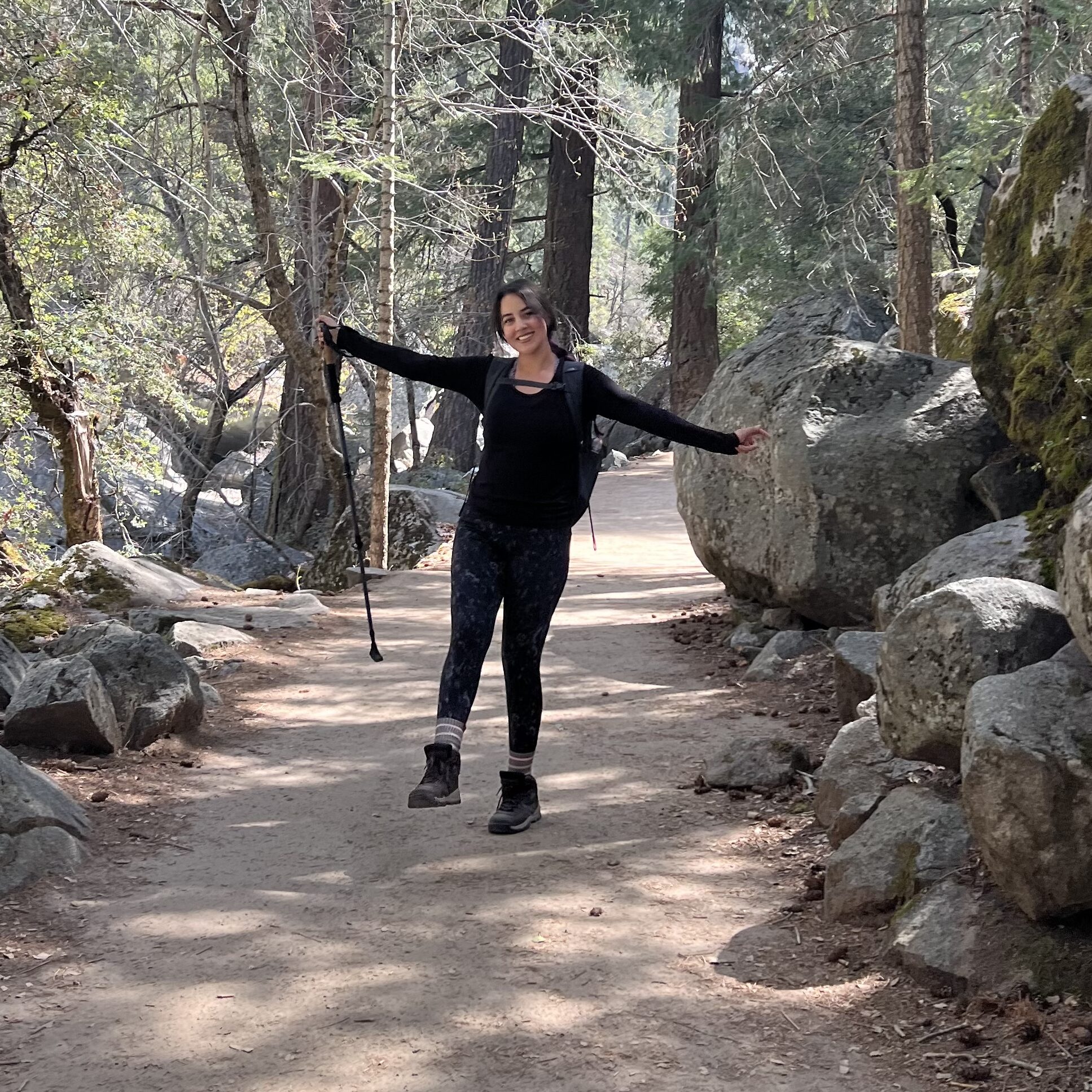
Alondra Renteria Solis
Alondra has grown up in Orange County for most of her life. From a young age, she developed a love and respect for animals and always knew her career would be dedicated to them. This led her to receive a Bachelor’s in Animal Science at UC Davis, where she also was able to take specialization classes in Wildlife Ecology and Conservation. At UC Davis, she gained a range of exposure to different types of work, including research internships studying bovine respiratory diseases and internships with the UC Davis Veterinary Teaching Hospital working on rehabilitation pet therapy. Her passion for conservation grew as she enjoyed learning about the connections between people, animals, and the ecosystem. She joined the UC Davis Hiking Club, where they visited different national parks and wildlife sanctuaries. Education and exposure helped her realize that this was a career path in which she could make a difference. For the past three years, she has worked at an animal hospital. During her time there, she developed new skills and a newfound appreciation for the human-animal bond. She was able to learn multiple positions in the hospital, which helped her discover that she was capable of adapting and growing. Through her time with MCRS, she has also grown an interest in natural resources. She currently works as a Water Use Efficiency Intern at the Municipal Water District of Orange County. There, she helps promote water conservation through different water sustainability programs offered to residential and commercial sites throughout Orange County. Alondra is passionate about the relationship between people and nature. Her hope is to continue working with the public to promote conservation efforts that will support our local urban ecosystems.
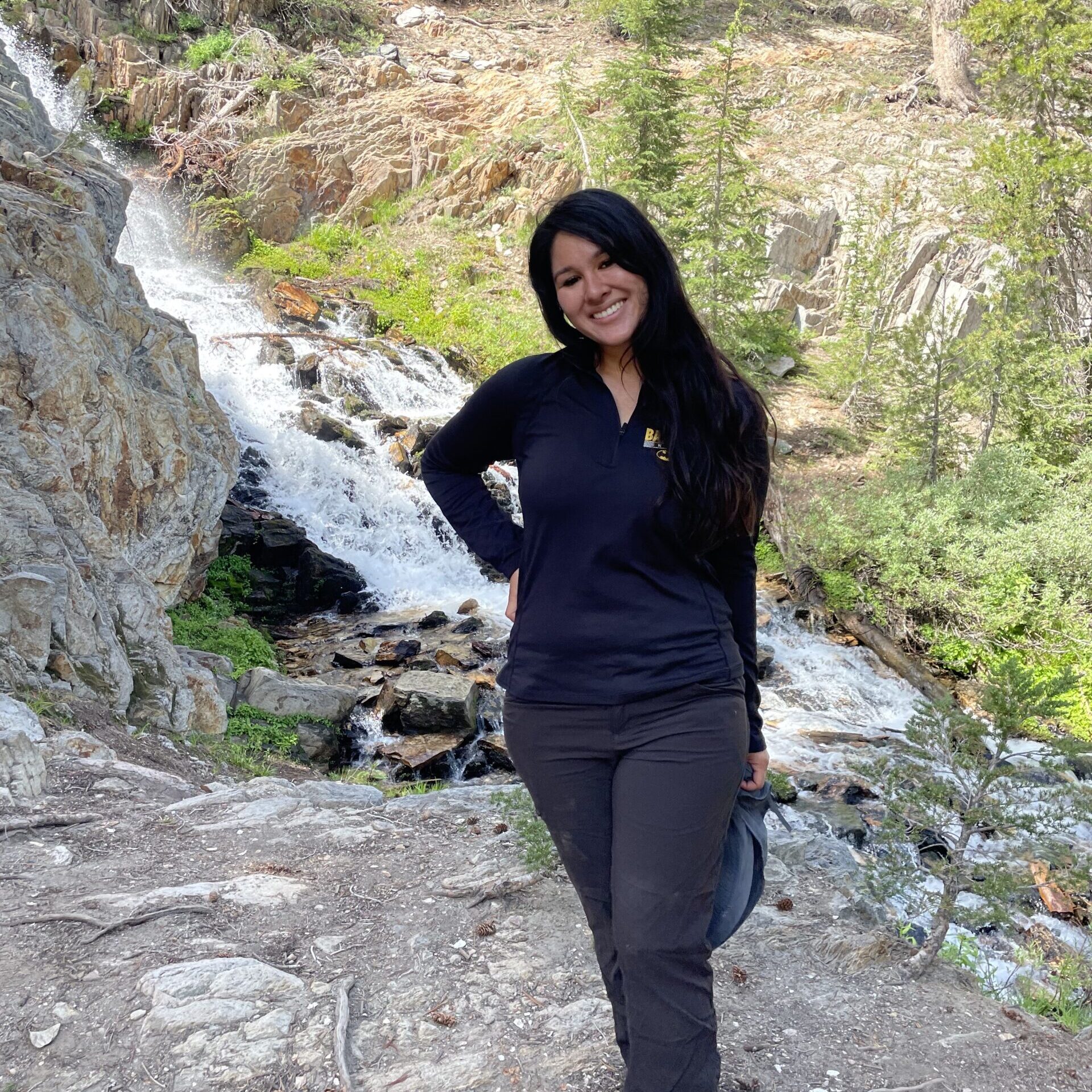
Audrey Tamayo
Audrey was born and raised in southeast San Diego, California. She earned bachelor’s degrees in Political Science and Latin American & Iberian Studies at UC Santa Barbara. As an AmeriCorps fellow at the Balboa Park Conservancy, later called Forever Balboa Park, she assisted in planting over 600 trees in San Diego’s prized 1,200-acre urban park. Audrey also worked with the City of San Diego’s Climate Action team to do research and outreach for San Diego’s Climate Action Plan update, Our Climate Our Future. Through these experiences, Audrey discovered her passion for environmental justice, forestry, and making data accessible for everyone.
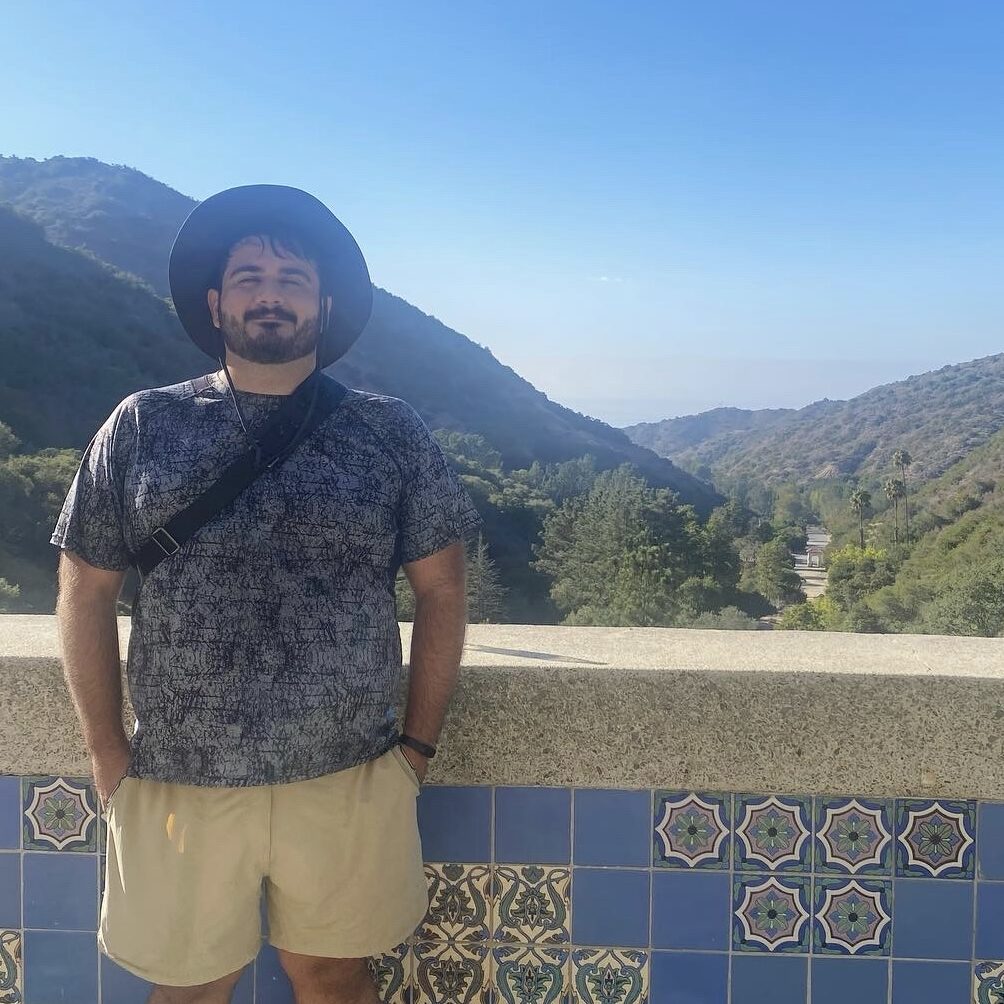
Brent Castanon
Brent was born and raised in Pomona, CA. Growing up at the foothills of the Angeles National Forest, he had an early appreciation for nature and local history. He earned his bachelor’s degree in Civil Engineering with a focus in Environmental Engineering from California State Polytechnic University Pomona. There he focused his studies particularly on hydrology and hydraulic engineering involving dams and waterways. After graduating, he worked at an engineering consulting firm where he began developing 1D/2D hydrologic/hydraulic models for
public master planning projects and managing GIS databases. Brent, however, was interested in studying the biological organisms that are affected by the hydrologic cycle and learning more about the ecology of Southern California. He began volunteering and training as a Naturalist at Newport Bay Conservancy in 2021, which inspired him to pursue environmental restoration and science communication as a career focus. He has worked at Crystal Cove Conservancy since
the beginning of 2022, educating K-12 students on topics regarding ecological restoration, ecosystems, and fire ecology. In the Summer of 2023, he was part of Crystal Cove Conservancy and California State Parks joint internship, where he managed a team to develop a standard protocol for surveying Crystal Cove State Park for nesting raptors. He hopes that the MCRS program will prepare him for managing ecological restoration and survey programs and will aid him in becoming a better science communicator for his future students. Brent is particularly interested in learning more about the connection between watersheds and their consequent ecological communities. Brent likes long walks on local trails, stopping often to identify plants and animals.
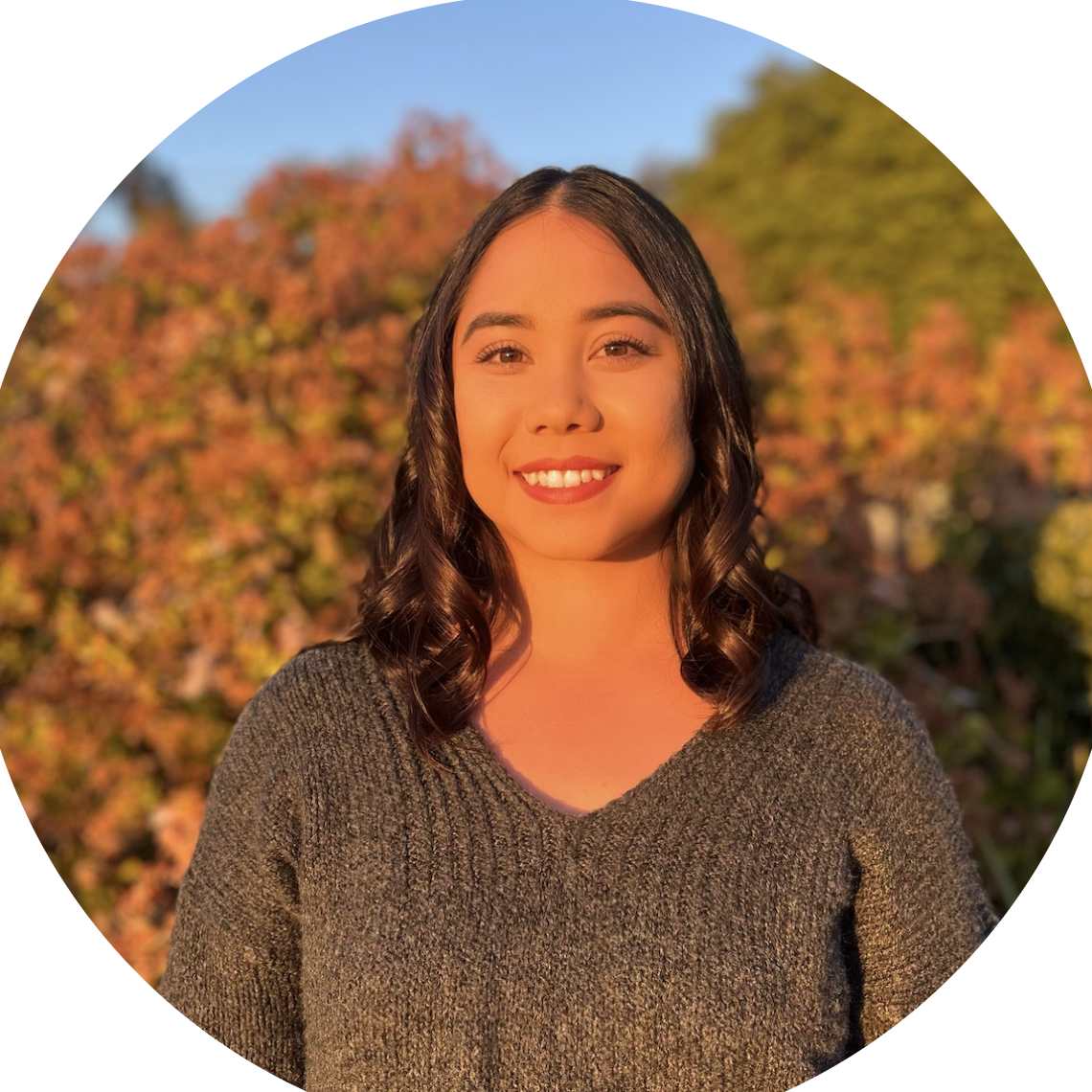
Darien Casimiro
Darien earned her B.S. in Environmental Studies with a concentration in natural resource management and conservation at San Francisco State University. During her time there, she had the opportunity to study abroad in the United Kingdom. In addition, Darien holds a certificate in Ecological Restoration from Saddleback College, which inspired her to pursue her Masters in Conservation and Restoration Science at the University of California, Irvine. Darien is passionate about Geographic Information Systems (GIS) and is currently a camp director for a STEAM-focused children’s summer camp in Carlsbad, CA.
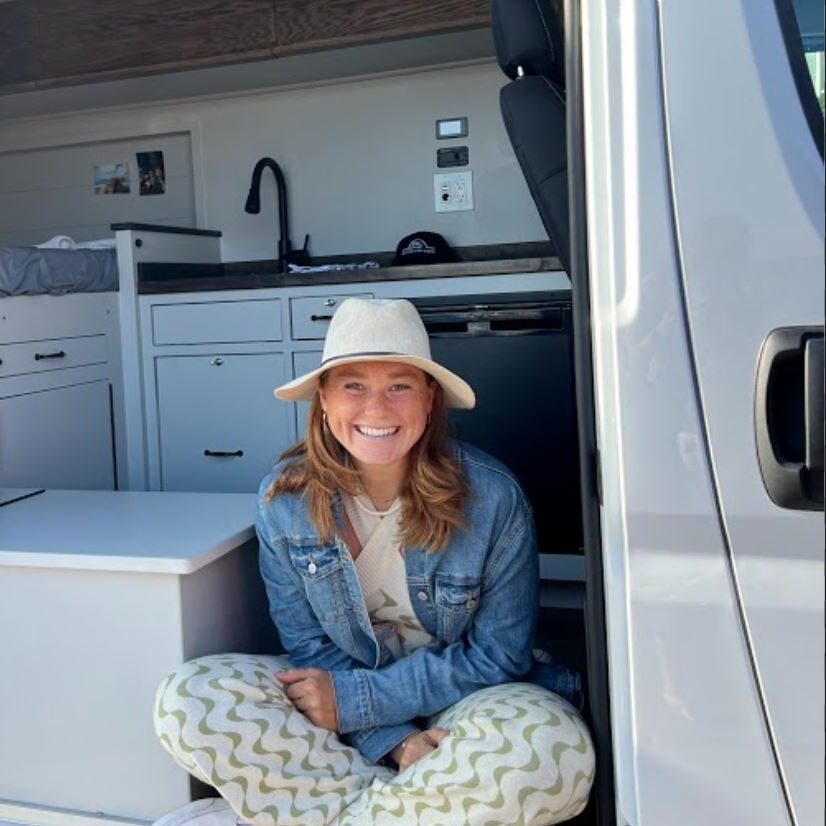
Erin Tharp
Erin was born and raised in Newport Beach, California. Starting from a young age, she had a love and respect for the natural world, attending Anneliese’s School in Laguna Beach, where she learned an appreciation for Mother Nature. While attending Corona Del Mar High School, that love stayed with her as she traveled with her science teachers to work on conservation projects in Belize and Thailand during spring breaks, also receiving her PADI Scuba Diving Certification while there. In high school, Erin received her Girl Scout Gold Award for researching possible solutions to the effects ocean acidification has on Coral Reefs. While attending the University of Southern California, Erin was the goalie on the National Championship winning Women’s Water Polo Team, a member of the Kappa Alpha Theta Sorority, and studied Environmental Studies and Marine Biology. She received her Scientific Diving Certification and was a 2021 NSF REU student at the USC Wrigley Center researching the Population, Habitat Preference, and Seasonality of Sea Cucumbers in Catalina from 2021 to 2022. She continues to conduct research at the Wrigley Center, currently studying juvenile kelp bass in seagrass beds. She was the Pac12 Sustainability representative for USC and co-founded USC Bottle Fairies which recycles plastic bottles to purchase gift cards for the homeless in Downtown Los Angeles. In her free time, she loves to travel, practice yoga, bake, along with a plethora of outdoor activities.
Erin is excited about the MCRS program because it will help her gain more knowledge on the management and conservation side of environmental science. She hopes to continue her education after the program gaining a PhD researching climate change and anthropogenic effects on the Coral Reef Ecosystem.

Garrett Keating
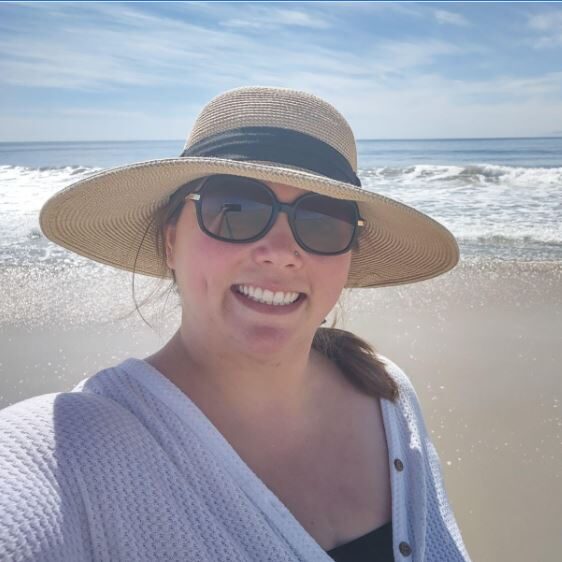
Janeen Gordon
Janeen earned her Bachelor’s degree in Social Ecology from the University of California, Irvine in 2010. She worked under UCI’s Center for Educational Partnership supporting minority young adults through mathematical tutoring and facilitation of university college preparatory experiences to encourage pursuit of higher education. Janeen experienced being an executive assistant to the Director of the American Indian Resource Program.
Janeen has worked with Native American Communities for the last twelve years as a strategic planner/project manager under a Native American Advisory Firm (Blue Stone Strategy Partners). She has supported over seventy-five Native Nations on over one hundred and twenty Tribal-specific projects in strategic planning, Tribal governance, and building Tribal economies.
Janeen is currently a graduate student at the University of California, Irvine in the Master’s of Conservation and Restoration Science Program. She is certified in inclusive field practices, adult and child first aid/CPR/AED, and mentorship excellence.
Janeen advocates for preservation of our natural resources, conservation of the natural beauty of our earth, and growing human consciousness. She has a desire to create equitable opportunities for the success of both people and our earth.
Janeen was born and raised in Southern California. She is family oriented and happily married with a son.
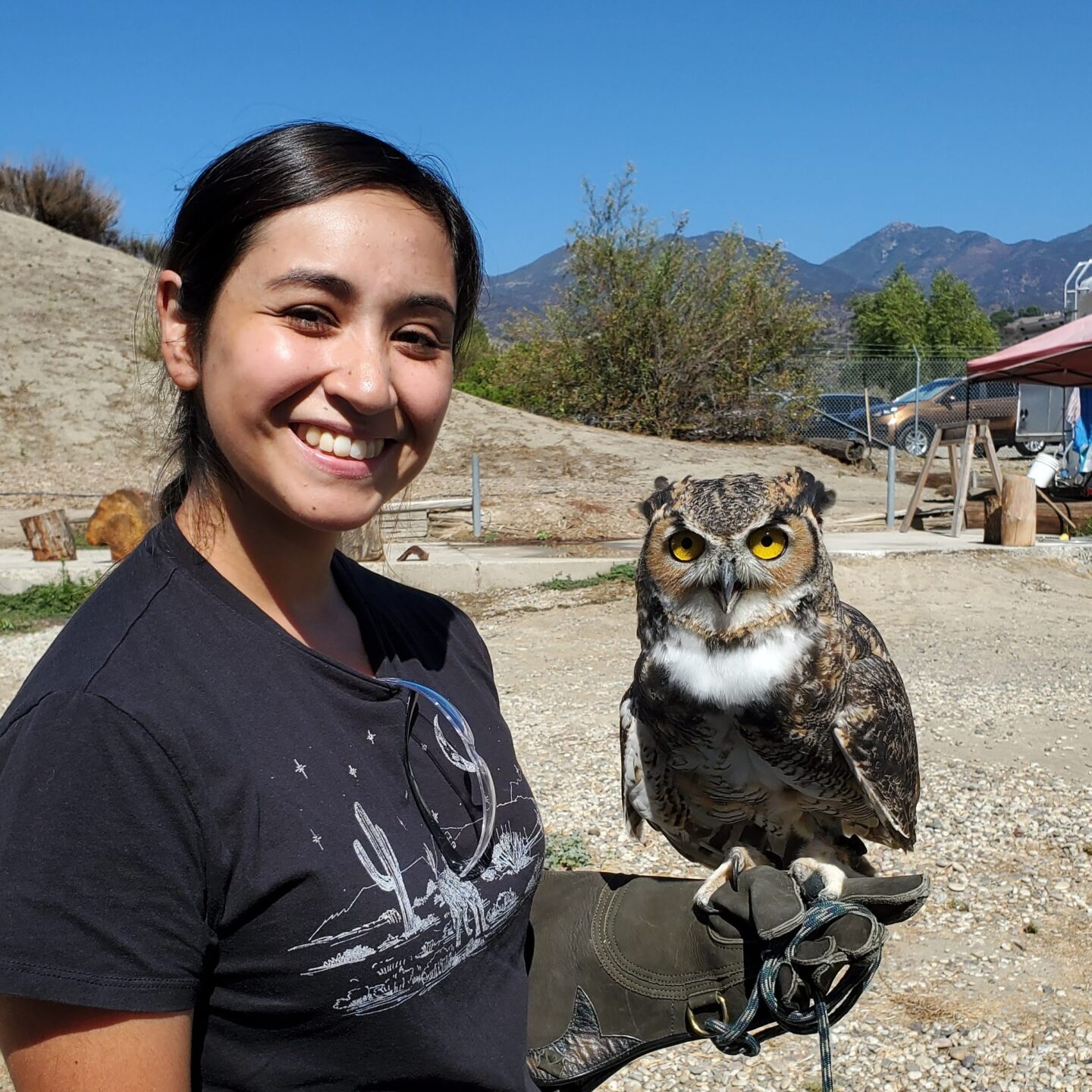
Janet Alejandra Gonzalez
Janet was born and raised in Oakland, California. Growing up, she enjoyed going fishing with her dad which introduced her interest in aquatic life and the outdoors. In high school, she volunteered at a visitor center with East Bay Regional Park District and learned the basics on aquarium husbandry. Janet attended California State University, Monterey Bay and earned her Bachelor’s in Marine Science. In summer 2019, she was awarded a scholarship to attend a 5-week research expedition in Costa Rica. She developed and led her own research project on bird biodiversity between forest types in relation to time of day. Through this, Janet reassured her love of birds, especially birds of prey, and was inspired to further develop her knowledge of ecology to protect our environment. She moved to Orange County in 2020 and volunteered with Sea and Sage Audubon in surveying Snowy Plovers and Least Terns. Janet has since become heavily involved in volunteering with the Orange County Bird of Prey Center (OCBPC). They strive to rehabilitate and release injured raptors and educate the public of their population threats. On weekends, Janet looks forward to volunteering with OCBPC, hiking, birding, and enhancing her photography skills. She hopes the MCRS program will allow her to work as a wildlife biologist to help restore at risk populations like the California Condor, Spotted Owls, and Bald Eagles.
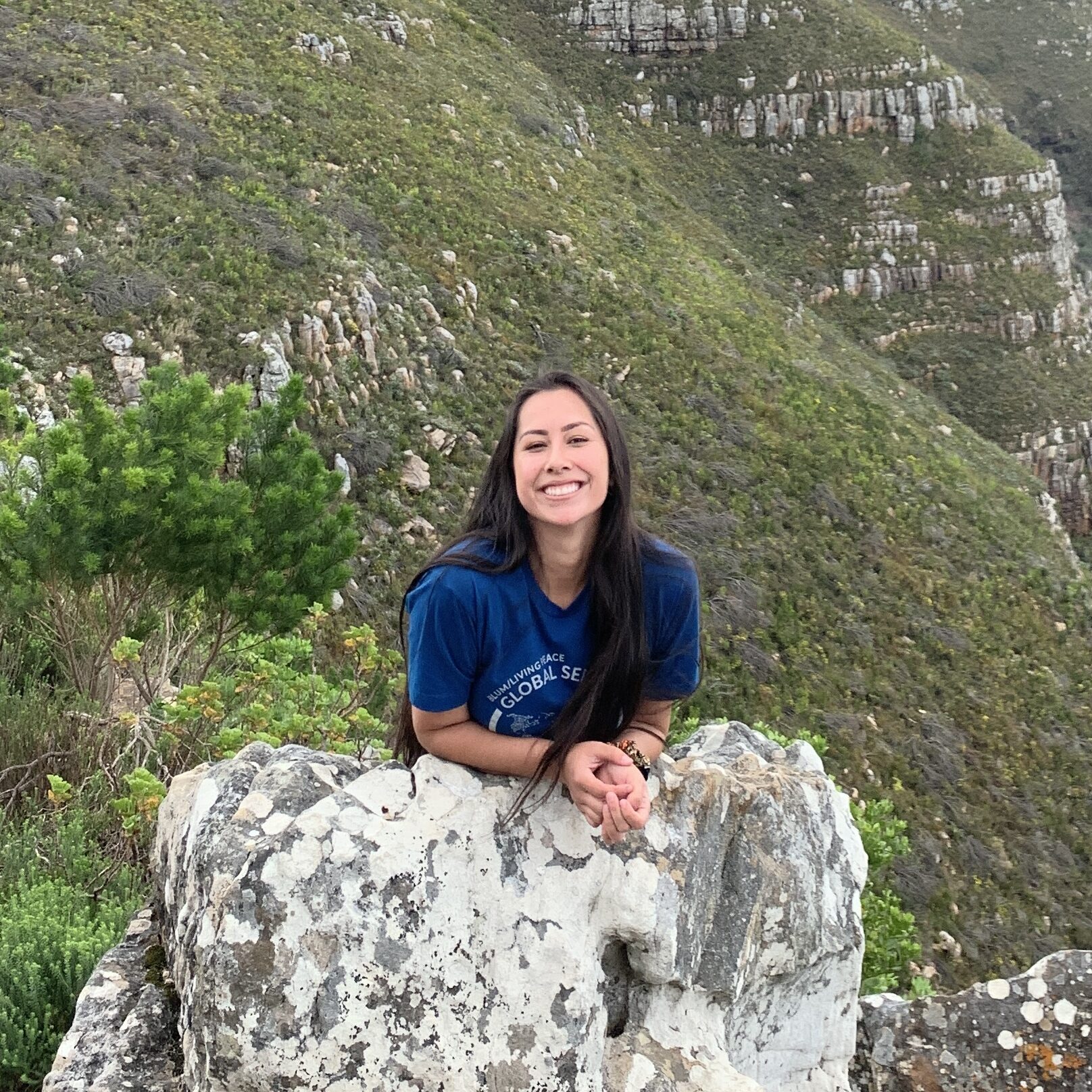
Jazzmyn Luna
Jazzmyn Luna is originally from San Diego County, California. She is a UC Irvine alumni with a bachelor’s degree in Environmental Science and Sociology minor. During her undergraduate career, she was a Global Service Scholar in the 2019 South Africa Cohort. There she worked in the greenhouse sector of Sakhulwazi Women’s Hub, a center that aims to educate community women with small business skills to promote economic self-sufficiency. This is where she first noticed the stark differences in access to reliable water sources and other essential resources. Here she first began to develop her passion for preserving and ensuring access to these necessities on a local and global scale. Jazzmyn continued her work with the UC Irvine Blum Center for Poverty Alleviation (a partner of the Global Service Scholars) as a student assistant contributing to their anti-human trafficking projects. Post-grad she continued working alongside non-profits and served as the Advancement Associate for an organization focused on empowering East African communities with access to clean water and sustainable agriculture. As an MCRS student, she will continue to exercise her passion for and cultivate new skills needed in supporting access to essential resources for current and future generations.
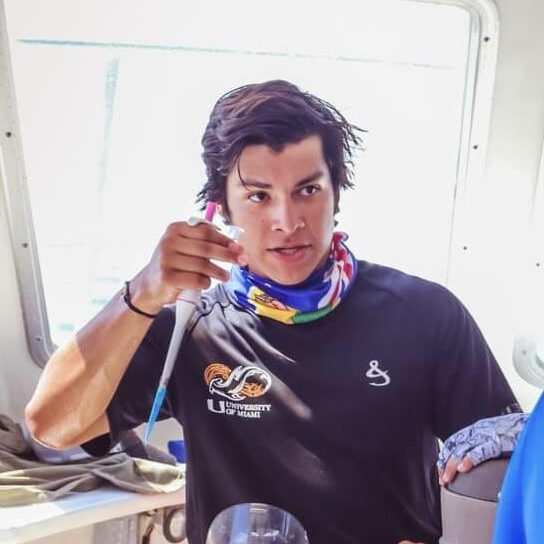
Nicolas Martinez
Nick Martinez was born and raised in San Jose, California, and developed his interest in the ocean at a very young age, spending his free time on the neighboring coastal beaches, surfing in Santa Cruz, and obtaining his scuba certification in Monterey Bay. Nick pursued his undergraduate degree at the University of Miami’s Rosenstiel School of Marine and Atmospheric Sciences where he double majored in Marine Science and Biology. Through this rigorous curriculum, Nick learned many of the contemporary issues facing the world’s oceans such as ocean acidification, eutrophication, sea temperature rise, and the biogeochemical effects of climate change. To complement his academic achievements, Nick also participated in two undergraduate laboratories. Beginning his freshman year, he worked with Dr. Peter Glynn’s marine invertebrate laboratory where he contributed to three scientific publications discussing the life history and traits of two benthic ctenophore species off the coast of South Florida. His research with Dr. Glynn continued through his Senior year, contributing to two more scientific papers discussing the recent introduction of a foreign brittle star species to the benthic patch reef communities of South Florida.
Nick also worked in Dr. Neil Hammerschlag’s Shark Research and Conservation Program (SRC) where he participated in cutting-edge shark research. As a member of the shark research team, he introduced hundreds of students and community members to the effects of environmental change on the behavioral ecology and conservation of sharks through hands-on citizen science. His primary role included drawing blood from sharks and processing it in the field. His experience with SRC introduced him to a new and extremely vital part of environmental protection — effective science communication to influence and inspire change in future generations. Because SRC lies at the forefront of science-driven changes in policy, Nick found a calling towards marine and environmental advocacy through the effective communication of data-driven science.
As an incoming student to the MCRS program, Nick plans to build upon his four years of research experience and science communication to learn new techniques in contemporary environmental decision-making through an active-adaptive management style.
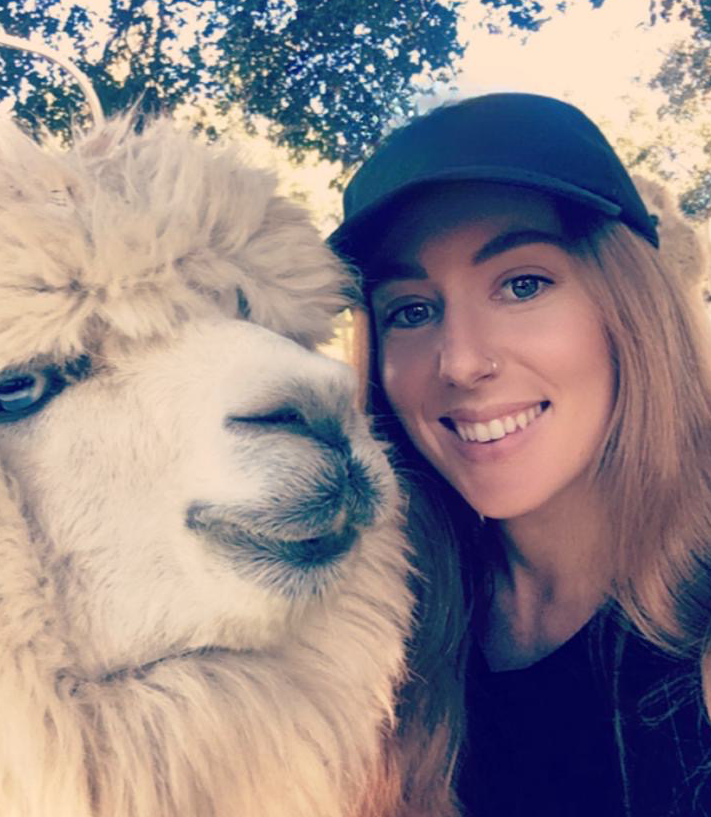
Nina Marchiando
Nina was born and raised in Santa Barbara, CA. As an undergraduate at UCSD, she studied Biology with an emphasis on Ecology, Behavior, and Evolution. During this time she participated in research studying salt marsh restoration and aerial insect biodiversity. As a teaching assistant, Nina discovered her passion for science education. This led her to an internship at Project Wildlife, where she developed NGSS-aligned lessons on native species. After graduating, she joined Teach for America and earned her teaching credential and master’s degree in education from Loyola Marymount University. Her thesis was a qualitative study to assess possible factors underlying the disparity in girls’ interest in STEM, including what variables specifically contribute to confidence in STEM within underserved communities. For the past nine years, she has taught high school Environmental Science, Biology, and Chemistry in South Central Los Angeles. She currently leads the science department and coaches developing teachers. Nina is passionate about increasing access for underrepresented groups in Ecology through education and believes that science outreach is critical to mitigating the impacts of current and future global change.
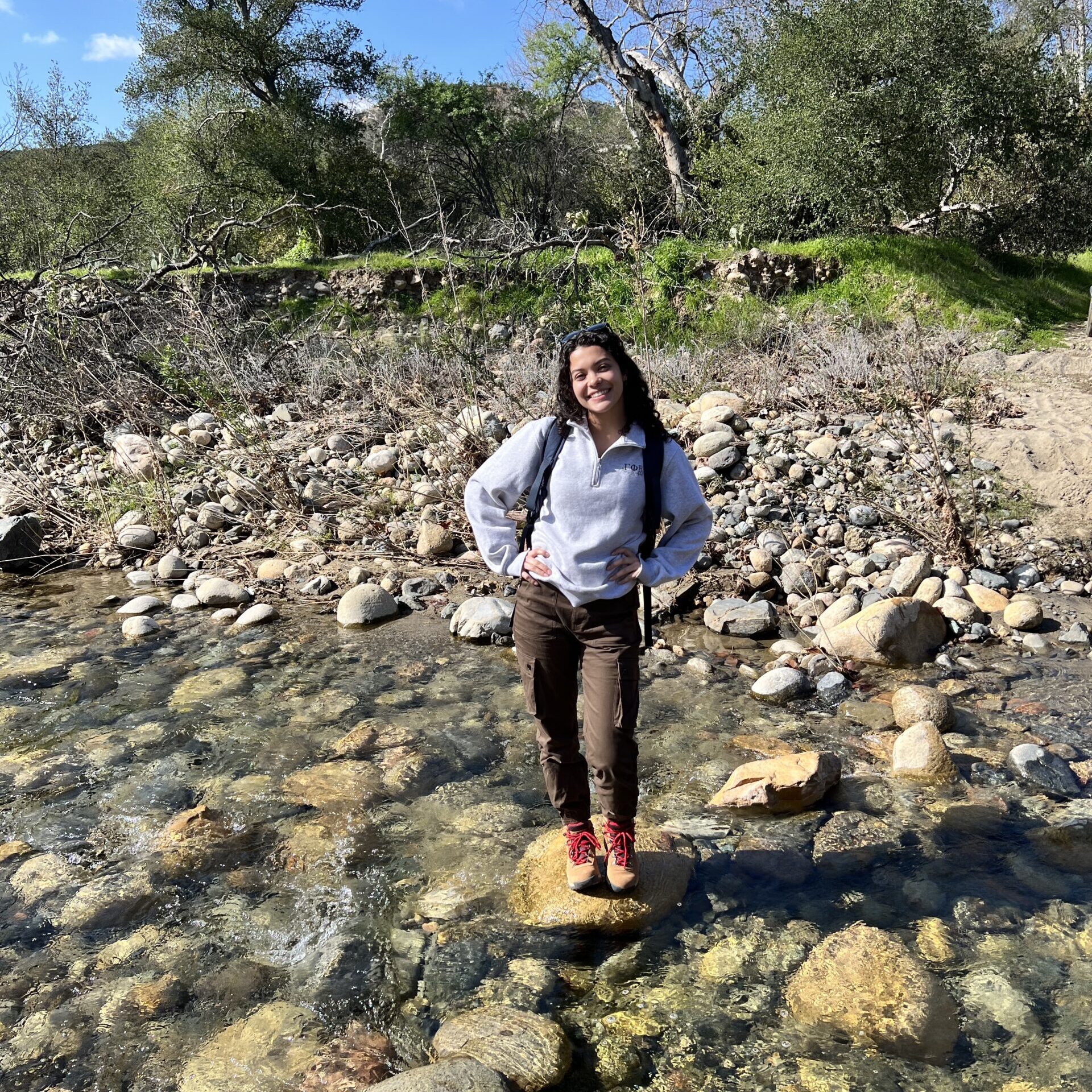
Nina Marchiando
Summer, a native of Chino Hills, California, embarked on her academic journey at Washington State University, earning her Bachelor of Science in Environmental Science. Throughout her undergraduate years, she developed her wildlife conservation and animal science expertise. There, she worked at the Wild Ungulate Research Facility, where she engaged directly with wild ungulates and guided fellow researchers in their efforts to explore topics ranging from nutritional analysis to reproductive biology and habitat ecology of deer species. During her time in college, Summer served as the chapter president of her sorority, Gamma Phi Beta. This experience helped her to develop her leadership skills and allowed her to work with the local Girls on the Run program. The program encouraged young girls to stay active, build confidence, and develop decision-making skills through an annual non-competitive 5K race. In addition to her academic pursuits, Summer spent her summers volunteering at animal shelters and serving as a veterinary assistant. Her passion for animal welfare was evident in her dedication to helping animals and her community.
After navigating the challenges of the pandemic upon her graduation in 2021, Summer embarked on a new path, steering her academic focus back toward her environmental roots, and joined the MCRS program at UC Irvine. At UCI, Summer discovered her passion and talent for science, communication, and education. In the summer of 2023, Summer worked as an education intern at the Bolsa Chica Conservancy, where she taught about the world of marine ecosystems, created engaging educational content, and led captivating tours of the reserve, sharing her passion for the environment with eager learners. Today, Summer is a pivotal team member at an esteemed environmental consulting company, where she works as the lead communications specialist and field technician. Simultaneously, she excels as the science communication assistant in the MCRS program. Her mission is to bridge the gap between intricate research and the general public, ensuring that scientific knowledge becomes accessible to diverse audiences. Summer envisions a future where she continues to thrive in this vital field and hopes that her journey through the MCRS program will equip her with the tools to communicate science effectively on a broader scale.
Class of 2023
Cohort 5
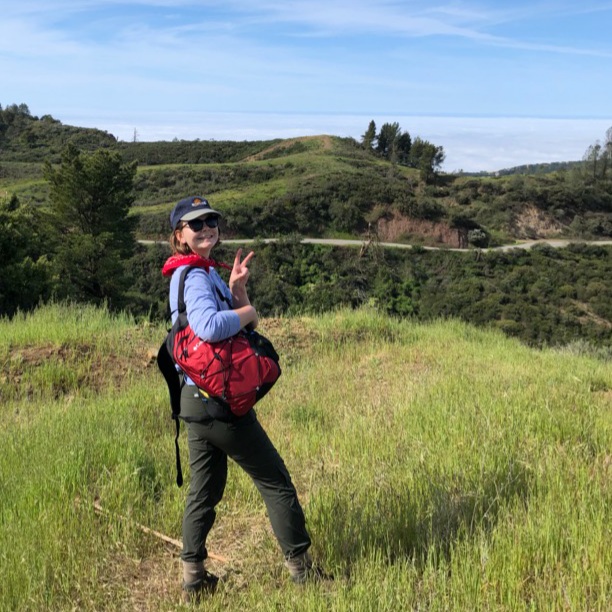
Allison Lane
Allison Lane grew up between San Luis Obispo and Riverside County, California and developed a deep love for the Southern California landscape throughout their life. They graduated from UC Santa Barbara with a Bachelor of Arts in biology and a minor in English but realized their desire to practice ecology when they joined a lab studying the Streptanthus genus as an undergraduate. Upon graduation, Allison worked for the Forest Service and UC Santa Barbara practicing field botany in the Los Padres National Forest fuel breaks. Beyond their conservation interests, Allison enjoys collecting Euphorbia, reading science fiction, and making music. Allison is greatly interested in fire ecology and plant life and hopes to take the skills they acquire from the MCRS program into a career that aids in fire recovery and restoration of California ecosystems.
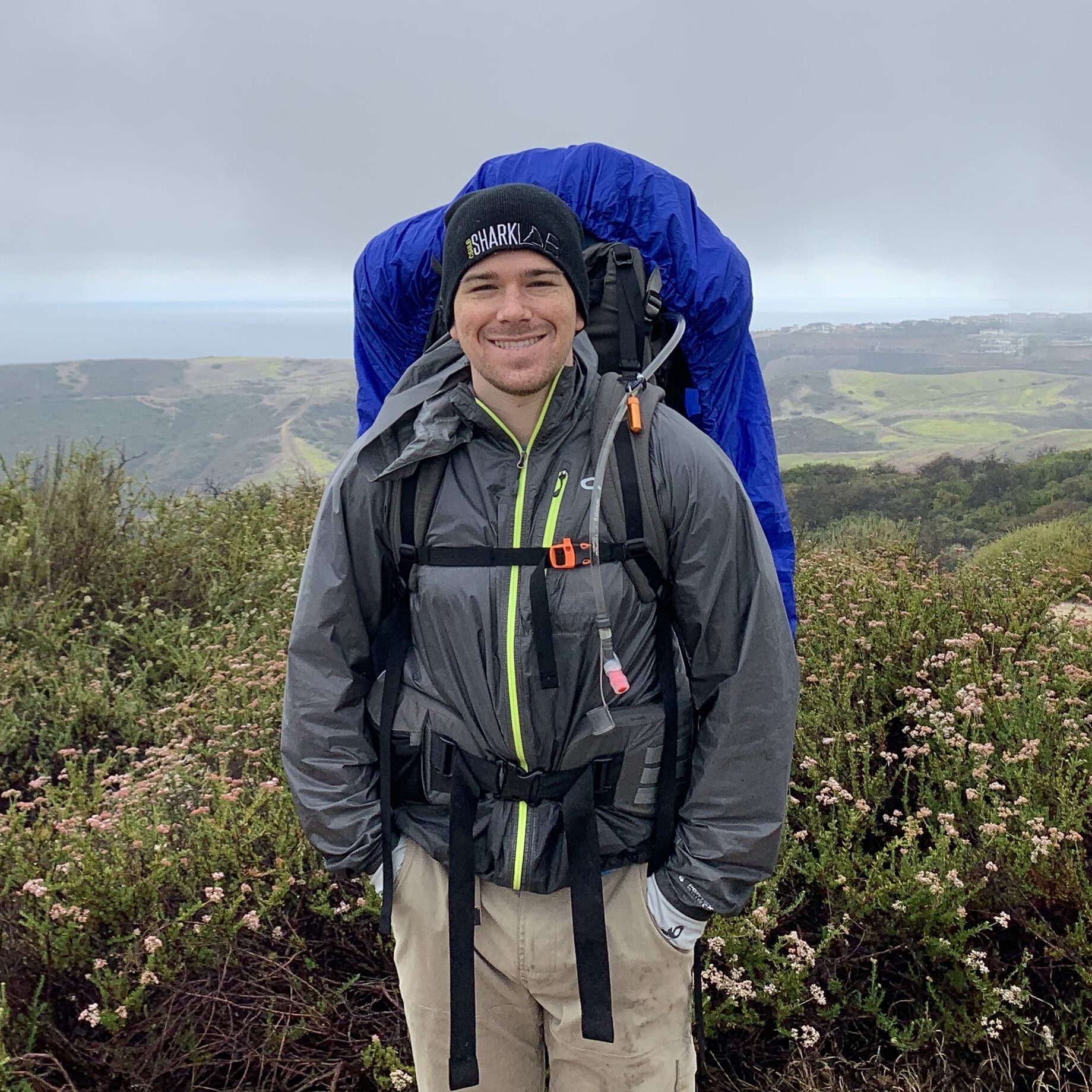
Bobby Hyla
Bobby was born and raised in Orange County, California. Starting from a young age he always had a fascination for the natural world and could often be found in his backyard searching for insects and lizards for observation and subsequent release or fishing in ponds at the local parks near his house. His parents were avid divers from the east coast which sparked his interest in the marine environment from a young age. At the age of six he had experienced his first snorkeling trip and by fourteen was certified as a Professional Association of Diving Instructors (PADI) junior open water diver. His experiences diving in the marine ecosystems of California led him to obtain his B.S. in Marine Biology from California State University, Long Beach. While there, he was involved on various research projects on topics ranging from wetlands ecology, oyster reef restoration, elasmobranch and sportfish physiology, migration patterns of juvenile white sharks in southern California. He also completed a senior undergraduate honors thesis on algal selection of giant kelpfish on Santa Catalina Island, CA. After graduating in 2019, he continued to work as a research assistant for the CSULB Shark Lab and is currently working for the California Department of Fish and Wildlife as a scientific aid for the California Recreational Fisheries Survey. Through the MCRS program, Bobby intends to further deepen his understanding of conservation and restoration of essential ecosystems in California. His goal following the MCRS program is to pursue a career in conservation and restoration for either a state or federal natural resources agency. In his free time Bobby enjoys a variety of hobbies including gardening, hiking, rock climbing, surfing, and slacklining.
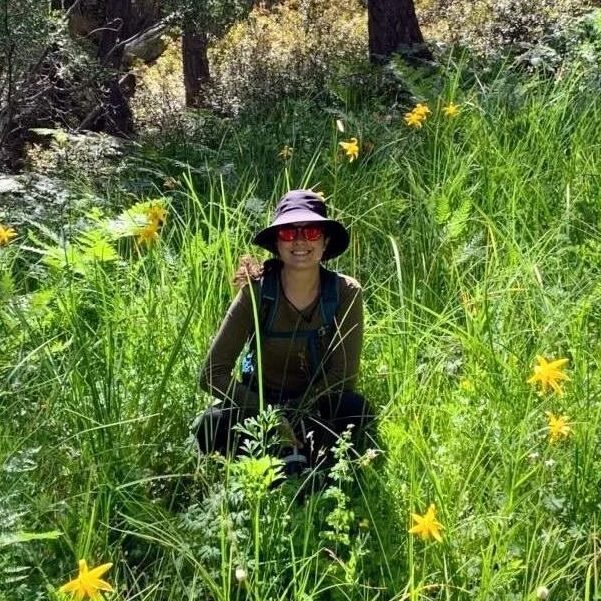
Brigit Laughlin
Brigit was raised less than a mile from the beach in Huntington Beach, California. Growing up, Brigit was always most comfortable when she was in nature, whether it was through cross country, junior lifeguards, or Girl Scouts. Wanting to pursue a career where she could stay immersed in nature, Brigit decided to dedicate her life to the environmental field. To start her environmental career, Brigit obtained a degree in environmental studies from the University of Redlands in 2021. During her time at the U of R, Brigit discovered an interest in rare and threatened plant species after taking a botany class focused on California plants. This interest turned into a passion when she worked as a botany intern for the U.S Forest Service within the San Bernardino Mountains. During this internship, she had the opportunity to conduct plant surveys on some of California’s rarest and most threatened plant species. In particular, Brigit conducted research on the effects of human disturbance on pebble plains, a threatened plant community endemic to the San Bernardino Mountains. Brigit joined the MCRS Program so that she could build the skills needed to conserve and restore rare plant habitats. When she is not studying, Brigit enjoys painting, hiking, and taking care of animals.
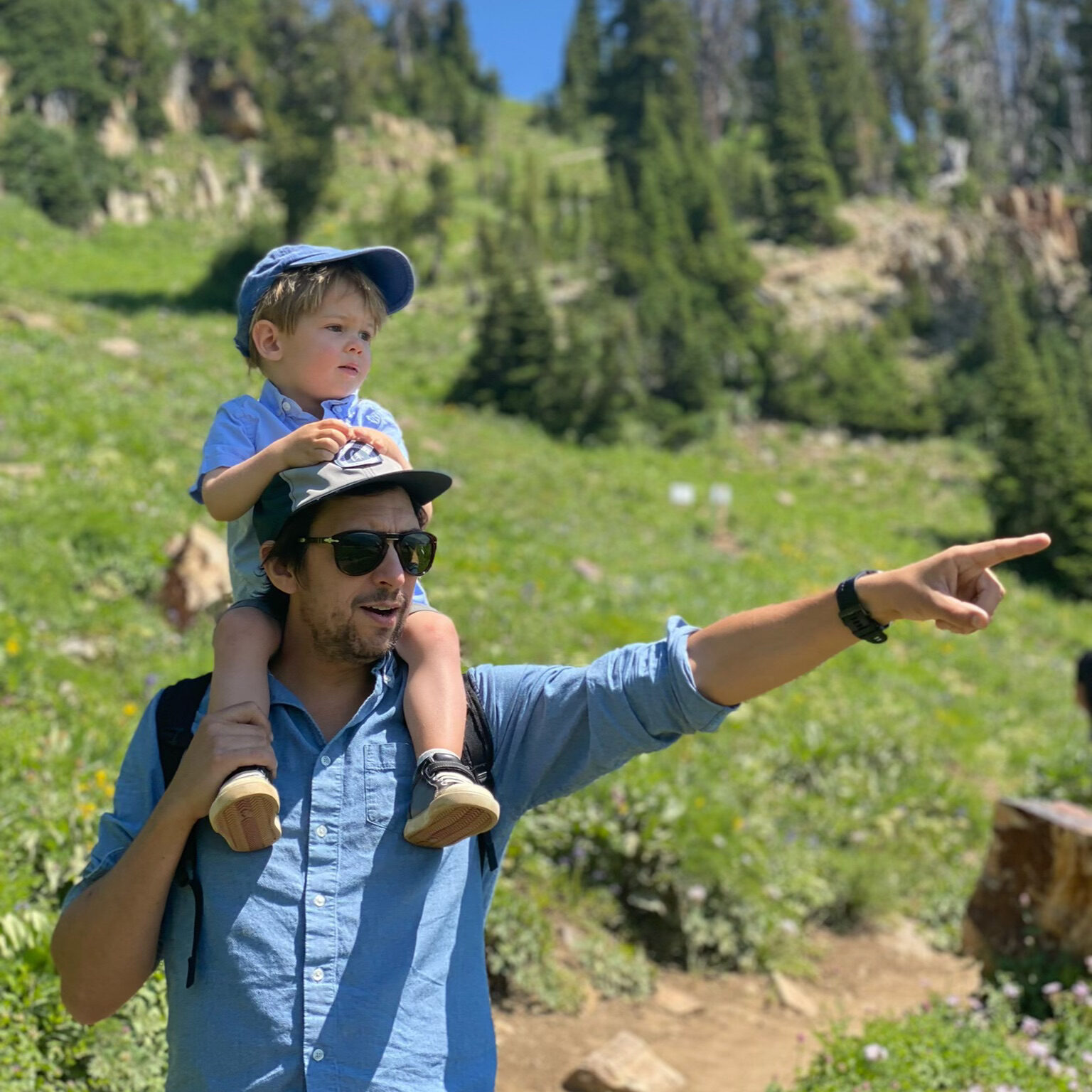
Derek Berlin
In his five years living in Southern California, Derek has developed a deep interest in how decisions are made regarding natural resource use in the American West, as well as the implications of those decisions for society and the natural world. He comes to the UC Irvine Masters of Conservation & Restoration Science program from a background in international finance and foreign policy, having previously worked for the U.S. Departments of State and Defense, as well as spending numerous years with a leading foreign policy think tank and a global financial services firm. Beyond his years in New York and Los Angeles, he has lived and worked abroad in Latin America, Europe, the Middle East, and Asia. He spends a great deal of time outdoors and has been active with organizations focusing on regional and national natural resource conservation, including reforestation work with Tree People, water quality monitoring of federally designated Wild and Scenic Rivers with Adventure Scientists, and invasive species monitoring with UC Cooperative Extension as a California Naturalist. Derek is a graduate of the Yale Writers Workshop, and the writing workshop at the Ted Hughes Arvon Center, Lumb Bank. A graduate of Columbia University with a BA in Political Science, Derek currently lives with his wife and two sons in Los Angeles.
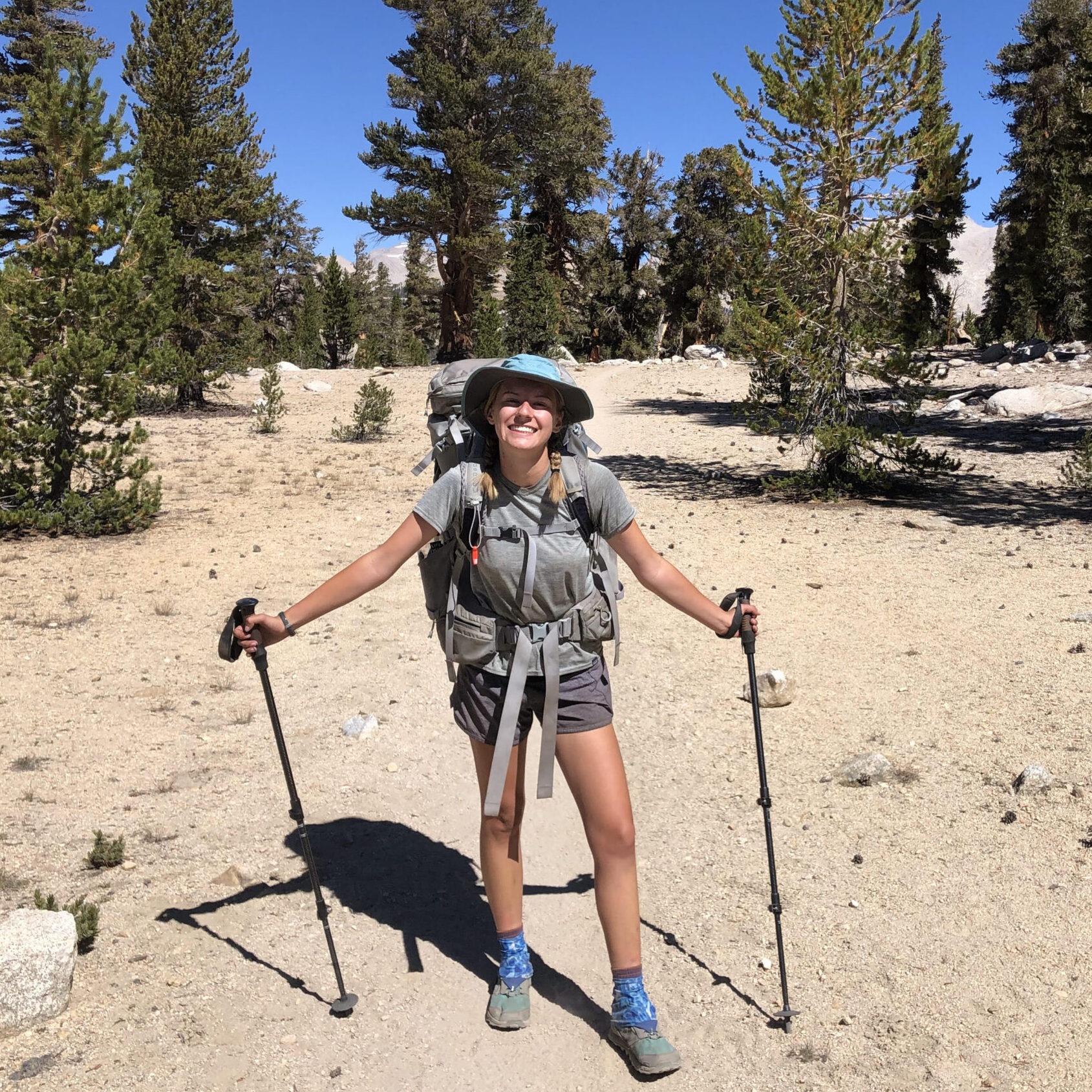
Emma Arago
Emma Arago grew up outside of Monterey, California, a beautiful and diverse location that led her to fall in love with the natural world. Growing up, she spent her weekends and summers hiking, tide pooling, and camping. Through outdoor recreation and environmentally focused high school extracurriculars, Emma became passionate about preserving the natural world around her, particularly the marine environment. This led her to get her B.S. in marine biology with a minor in conservation biology at UCLA. While attending UCLA, Emma participated in local wetland research and conservation efforts and studied the effects of human presence on coral reef habitats in Moorea, French Polynesia. Her passion for the outdoors extends further than her educational pursuits, and Emma enjoys spending her free time backpacking, rock climbing, and nature journaling. Through the MCRS program Emma hopes to gain the knowledge and skills necessary to effectively communicate science to the general public and incorporate nature into our everyday lives, connecting her passions of conservation and outdoor education.
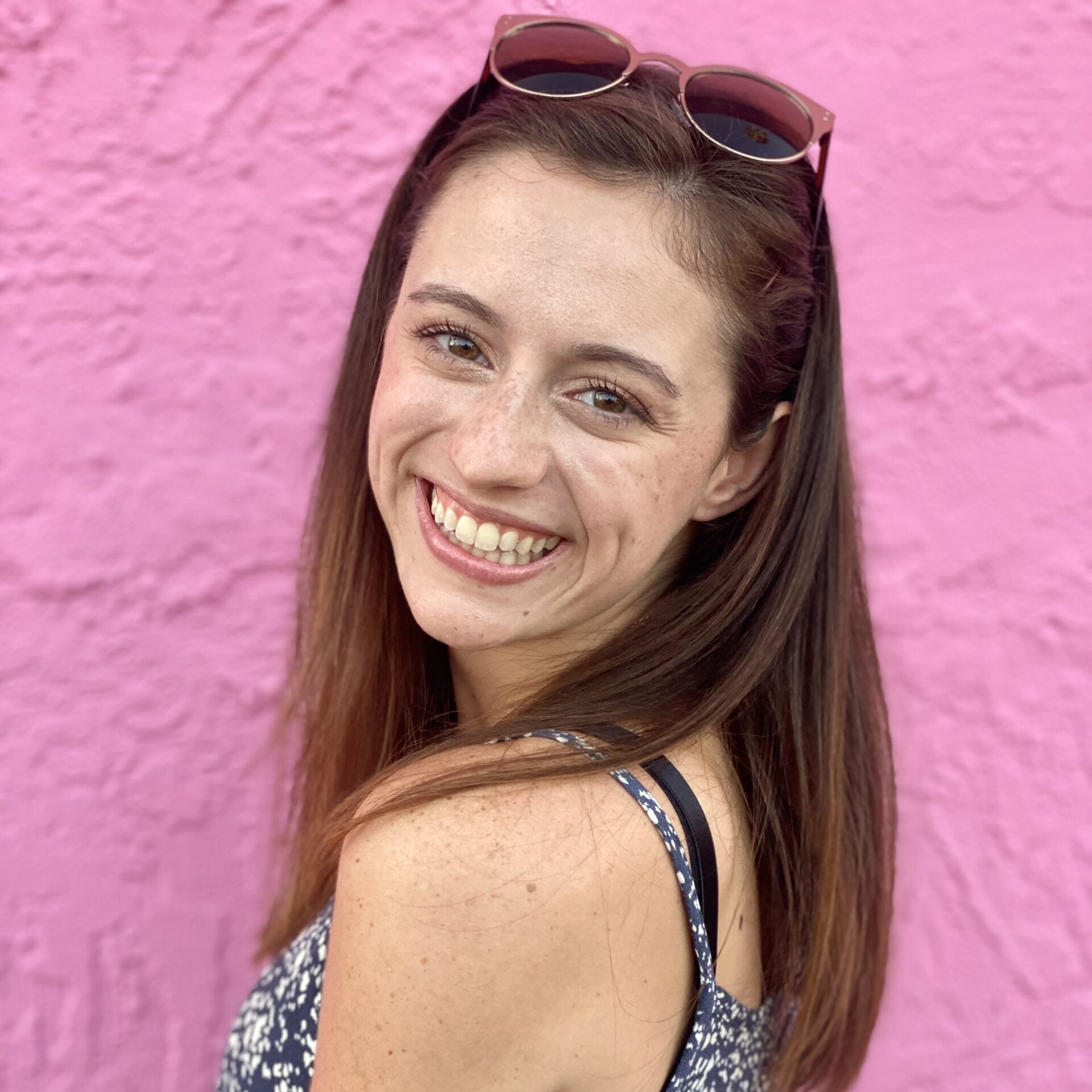
Emma Dressel
Emma Dressel graduated from the University of Richmond in 2020 with a B.S. in biology and a minor in environmental studies. During her time as an undergraduate, Emma conducted research projects on invasive plant physiology, climate change in boreal ecosystems, and human-wildlife interactions. The most influential experience was her semester spent studying wildlife conservation and management in Tanzania. During her time in Africa, she witnessed the diverse wildlife of the Serengeti-Mara ecosystem, the complex interplay between humans and the environment, and the dire need for effective management. Furthermore, she conducted a research project that analyzed the attitudes and opinions of East-African communities towards conservation efforts. As a result of her involvement, Emma came to understand the interdisciplinary nature of conservation and the importance of considering local communities for the successful implementation of management efforts. Because of her past experiences, Emma wishes to pursue a career in environmental conservation with an emphasis on human dimensions after graduating from the MCRS program.
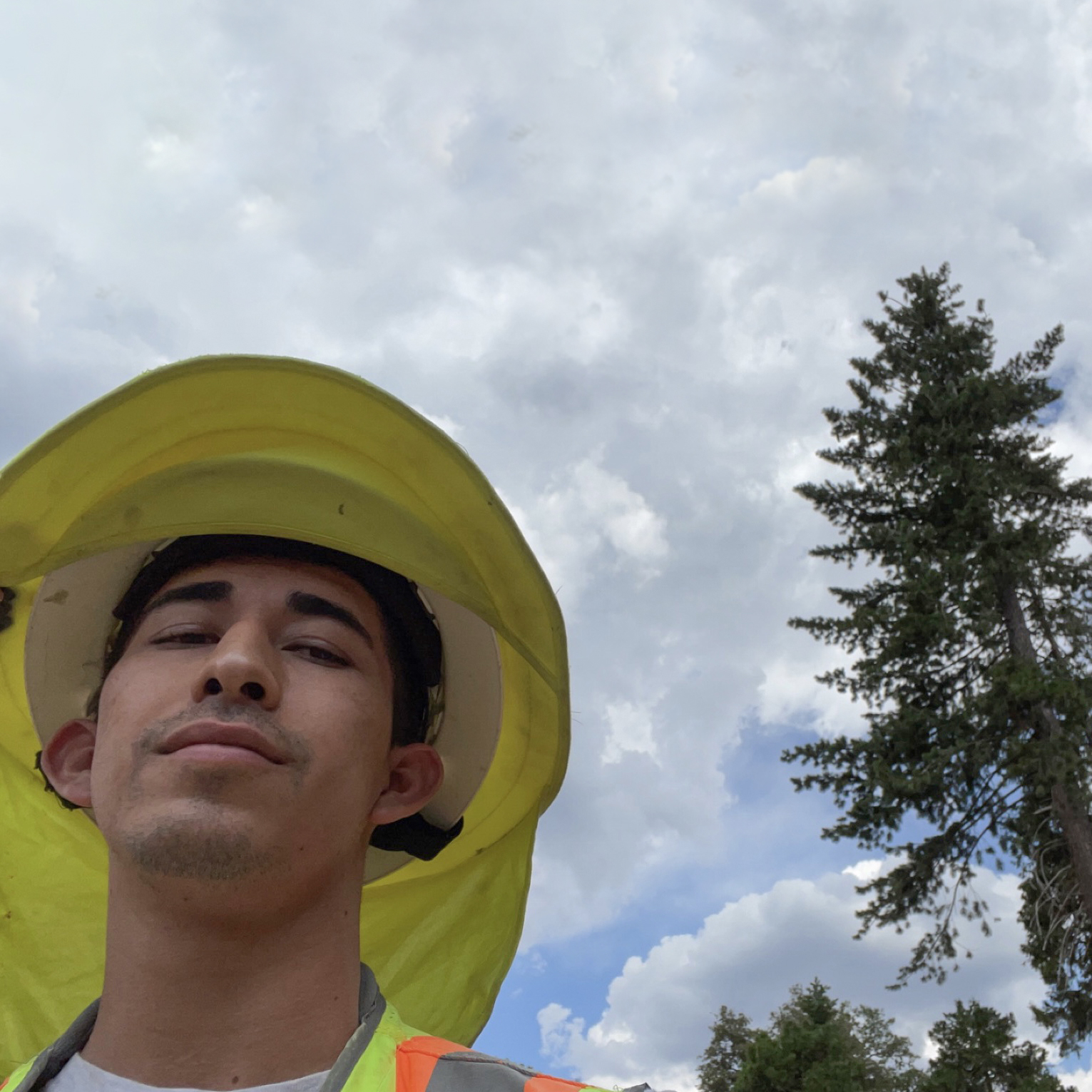
Fernando Guzmán III
Fernando Guzmán III was born and raised in Bakersfield, California. He attended the University of California, Santa Barbara, where he obtained a B.A. in environmental studies and a minor in spatial studies. Fernando’s passion for working with plants began during his undergraduate internship at UCSB’s Cheadle Center of Biodiversity and Ecological Restoration. As a restoration assistant, he aided in habitat restoration projects that focused on invasive species removal and native plant propagation through integrative management practices. Upon graduating, he moved back home to work in the Sierra Nevada foothills and mountains as a consulting utility arborist. He pursued his interest in arboriculture by obtaining his Tree Risk Assessment Qualification, Utility Specialist and Arborist credentials from the International Society of Arboriculture (ISA). His goals are to ultimately become an accredited Master Arborist and pursue a career in plant restoration and conservation. Fernando views the MCRS program as an opportunity to gain the valuable restoration experience and skills to coordinate his own habitat restoration projects in the future.

Giovanni Di Franco
Giovanni was born and raised in Orange County, California. He became interested in the environment at a young age, always curious about how humans impact their surroundings. His passion flourished when he took his first environmental science class in high school and was given the opportunity to perform fieldwork. This led to his decision to obtain his bachelor’s degree in environmental science from Loyola Marymount University. There, he was heavily involved in campus activities as well as volunteer work in the Ballona Wetlands where he led tours and educated local students on its history. He later interned at the Bay Foundation researching submerged aquatic vegetation using GIS mapping. He also researched plant/microbe interactions and their ability to promote plant growth for use in agriculture. After completing the MCRS program, he intends to partake in restoration efforts here in Southern California at a non-profit or agency and develop educational programs for the locals on the importance of restoration and conservation.
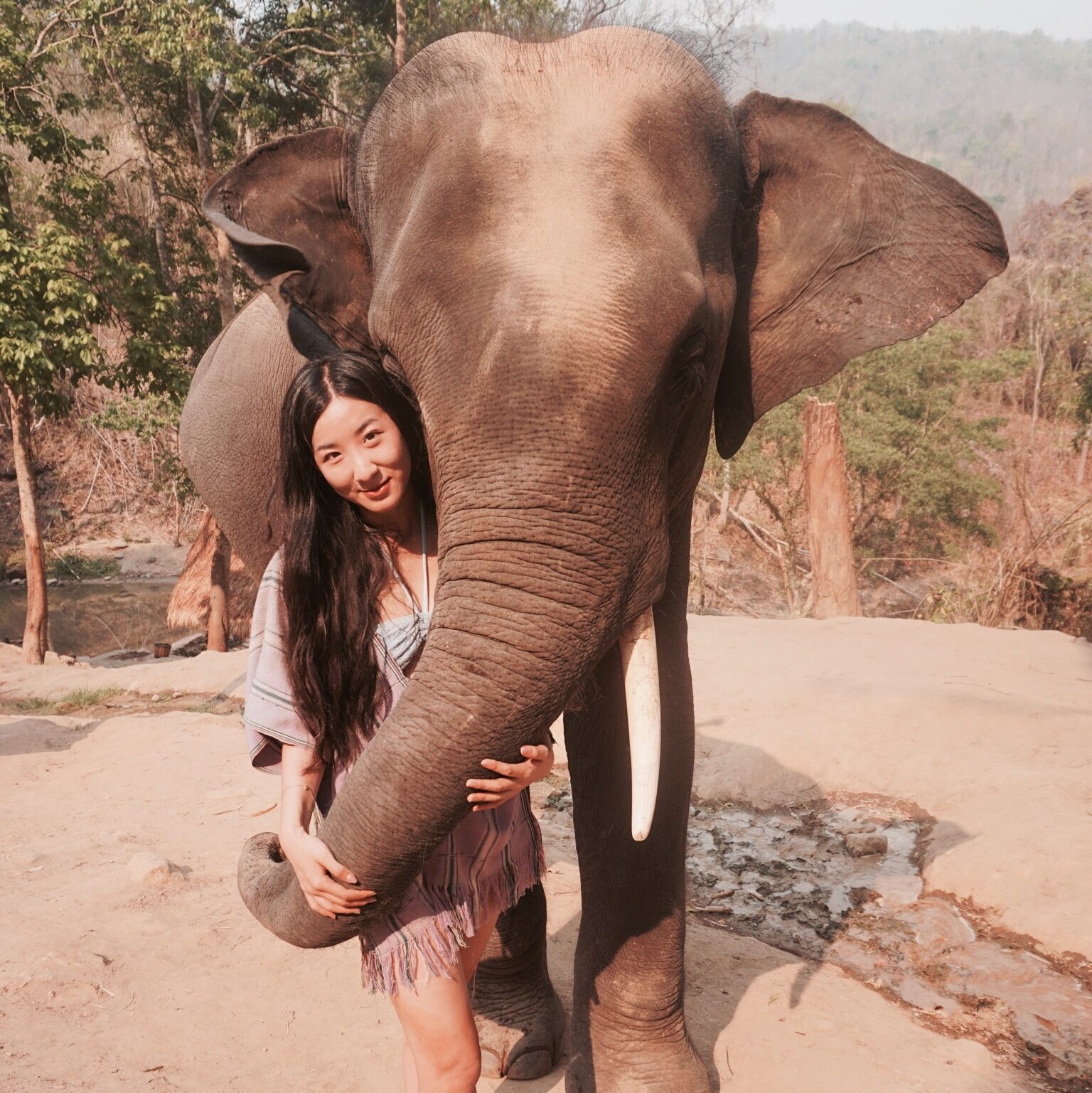
Helen Lin
Being born in Michigan and growing up in Taiwan, Helen’s interest in nature grew from family trips to national forests every weekend in her childhood. Her passion for conservation deepened while leading the biology club in high school, where she learned to find and identify wildlife living in the vicinity of the city jungle. During her time at National Taiwan Normal University, she was deeply inspired by coursework in recreation ecology and forest ecology. She interned with Gili Shark conservation in Indonesia where she conducted underwater surveys and experienced how conservation can benefit both wildlife and human communities. Upon graduation, she worked with TaiwanICDF assisting in the Seed Potato Propagation Project in Honduras. The experience working with international cooperation between governments and local communities made her reflect on the importance of outreach and communications, as well as the possibilities to apply the multicultural experience in conservation. To gain more experience, she moved to LA and worked in Dr. Blumstein’s lab at UCLA where she assisted in field experiments assessing fire impacts on the behavioral response of western fence lizards in the Santa Monica mountains. Combined with her passion for traveling and wildlife observing, she would like to apply skills learned in MCRS to her dream field of ecotourism. Besides studying, she also enjoys scuba diving, hiking, horse riding, and doing puzzles.
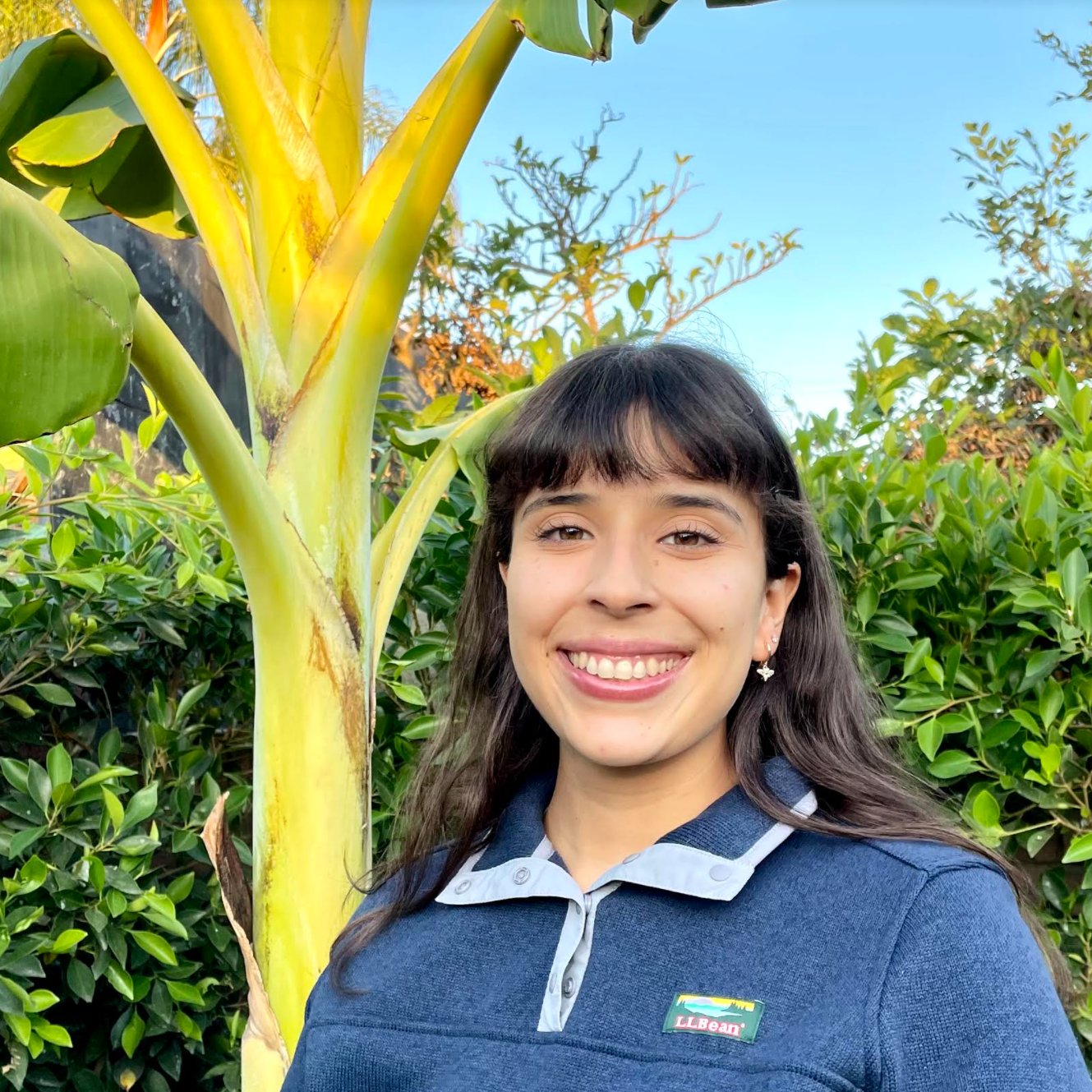
Nathalie Treminio
Nathalie was born and raised in Lynwood, CA. She obtained her bachelor’s degree from the University of California, Davis in environmental science and management with an emphasis in conservation, ecology, and biodiversity. During her time as an undergraduate, her love and passion for environment flourished as she fostered her interests through internships and research experiences. Among her favorites was being a summer field assistant at Lassen Volcanic National Park, where she surveyed amphibian and reptile populations and did capture-mark-recapture on garter snake species. Additionally, she spent her last quarter at UC Davis monitoring Snowy Egret and Black-crowned Night Herron nests on Alcatraz Island through USGS. Growing up in a largely urban area with limited access to nature, she is passionate about making green spaces more accessible to underprivileged communities. By receiving a master’s degree from UCI, she hopes to play a big part in solving some of California’s most major conservation issues.
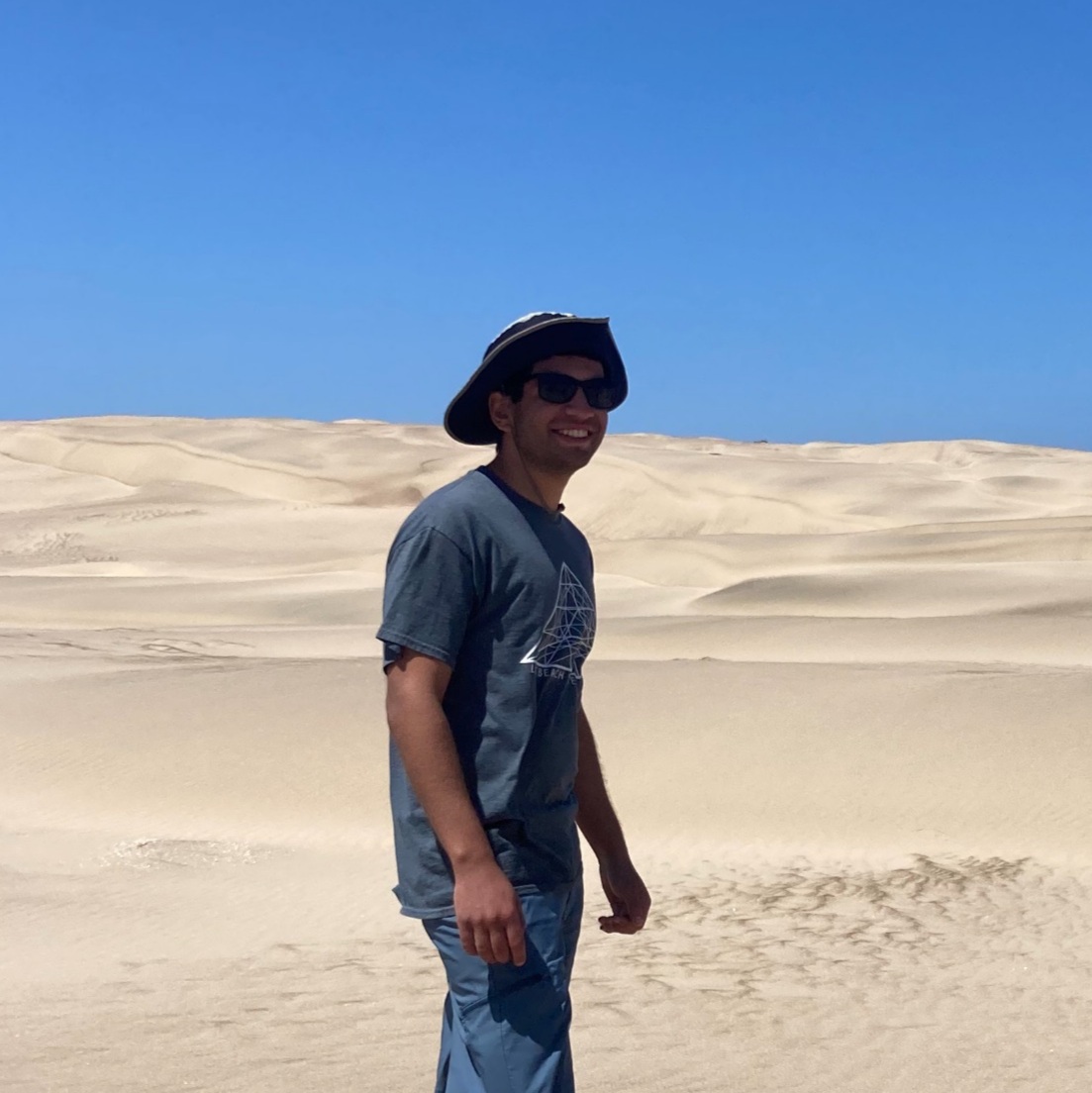
Nicolas Clemons
Nicolas grew up in Mission Viejo, California. He earned his undergraduate degree in environmental science and policy with a minor in economics from California State University, Long Beach. His love for nature and the environment began at an early age while taking many camping trips in California and Utah with his family and his boy scout troop. His interest in science led him to take AP biology in high school which further cemented his fondness for science and the environment, consequently helping him make the decision to pursue a career where he could study both. Nicolas currently works for an environmental remediation company in Orange County, California. He began working there during his junior year in college to complement his studies. While working there, he collected environmental soil samples at numerous Edison substations throughout Southern California, supervised the installation of groundwater monitoring wells, and groundwater sampling at a hydrocarbon site. He has also installed soil vapor extraction (SVE) wells and assisted in an SVE pilot test at a landfill site impacted with methane and chlorinated solvents. By completing the MCRS program, Nicolas hopes to expand upon his knowledge and further develop his restoration and ecological skills to help conserve vulnerable ecosystems for future generations. In his spare time, Nicolas enjoys swimming, hiking and reading.
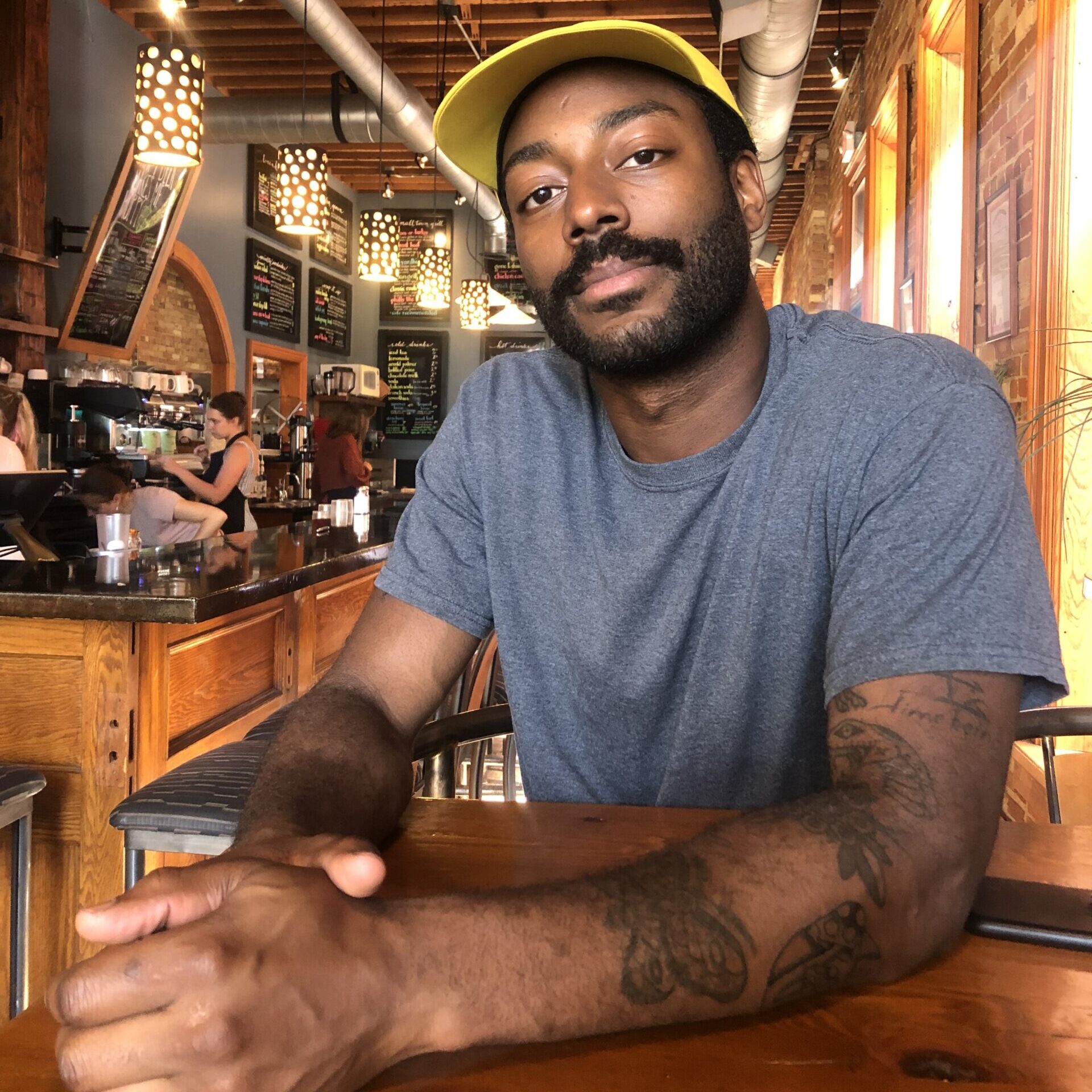
Nile Carrethers
Nile grew up in Denver, Colorado, where he learned to appreciate outdoor activities. In high school, he spent his weekends camping, hiking, and snowboarding. As he engaged in outdoor recreation, he developed a love for ecology and environmental sciences. A passion for wildlife and conservation led him to obtain a B.A. in Zoology from Weber State University, Utah. While studying, he worked with his mentor to bring STEM opportunities to local, underrepresented youth. He pursued a range of opportunities to learn more about the field and develop his academic goals. He conducted urban ecology research as a member of National Science Foundation’s Research Experience for Undergraduates program and went on to work as a summer intern at the Rocky Mountain Raptor Program in northern Colorado. During an extended trip to South America, he volunteered for a chinchilla habitat restoration project in the Chilean desert. To expand his experience further, he spent a field season collecting data as a member of a primate research team in Costa Rica. Nile remains an outdoor enthusiast and spends his free time rock climbing, kayaking, and camping. As a MCRS student, he looks forward to learning how to conserve wildlife habitat and conduct meaningful community outreach.
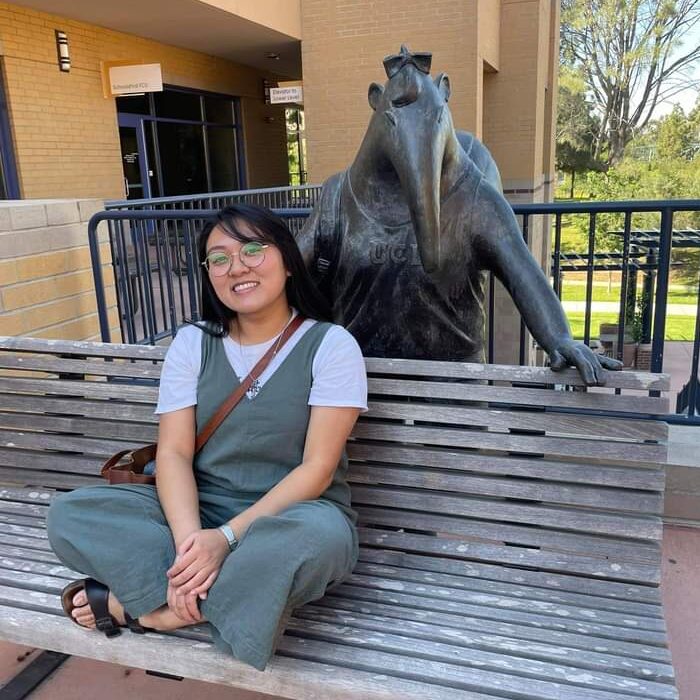
Noreen Mabini
Noreen was born in San Francisco and moved to Nevada when she was a couple of years old. Her interest in conservation and restoration sciences began in elementary school when staff from the Springs Preserve, Las Vegas came to speak at her school. She learned about desert habitat and how a seemingly empty landscape was filled with life. In fourth grade, she moved back to the San Francisco Bay Area and eventually started volunteering and interning with the Golden Gate National Parks Conservancy (GGNPC). Through the GGNPC she worked on several conservation and restoration projects and in native plant nurseries. One project Noreen is especially proud of is the Lupine Diversification Project for which she grew/planted hundreds of lupine, monitored populations of the Mission Blue Butterfly and translocated a pair of the federally endangered butterflies. Noreen went on to attend UC Davis and pursued a B.S. in Ecological Management and Restoration and a minor in Geographic Information Systems (GIS). She also worked with the UC Davis Arboretum and Public Garden Waterway Stewardship team and Plant Records and Mapping team. In her free time, Noreen likes to cook, crochet, take care of her plants, and watch wildlife. Her life goal is to raise awareness on the importance of green spaces and wildlife habitat corridors in urban areas.
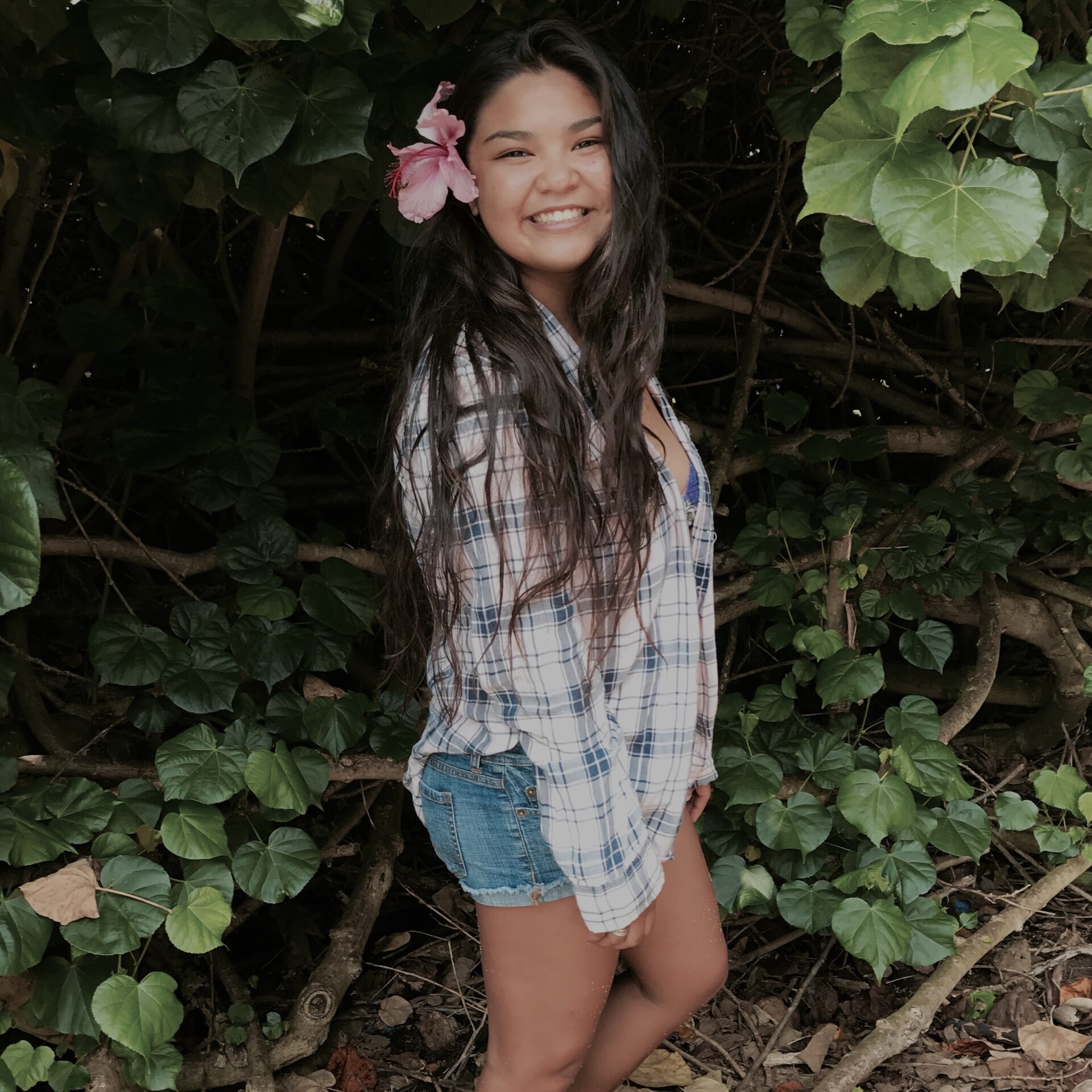
Sabrina Ann Medina
Sabrina grew up in Orange County where her love for the ocean led her to study marine biology at the University of Hawaii at Manoa. There she assisted in a variety of coral research projects, as well as conducted her capstone project on coral planula settlement and growth at the Division of Aquatic Resources Coral Restoration Nursery. After graduating with her degree in 2018, she moved to Maui to work for Pacific Whale Foundation as a Marine Naturalist. She enjoyed bringing her love of marine life to others and promoting ocean conservation through education. Soon after, she was awarded the opportunity to execute whale watches and assist with research for three months in Hervey Bay, Australia. There, she collected data on the impacts of swimming with humpback whales for best management practices. She shifted her focus toward land management practices while working with Maui Soil and Water Conservation District in the Natural Resource Conservation Service field office. On the weekends she continued to intern with the Maui Ocean Center Marine Institute in their reef restoration and sea turtle rescue and release programs. During her free time, she enjoys being outside, snorkeling, hiking, or drawing. She hopes to refine her skills in the MCRS program and encourage coastal communities to adopt conservation practices. She excited to be returning to Southern California and is looking forward to giving back to the community that set her on this path.

Ashley Anderson

Evie Andrade

Houstan Vassel

Phylicia Sanchez

Rachel Guinea

Sara Cuadra
Class of 2022
Cohort 4
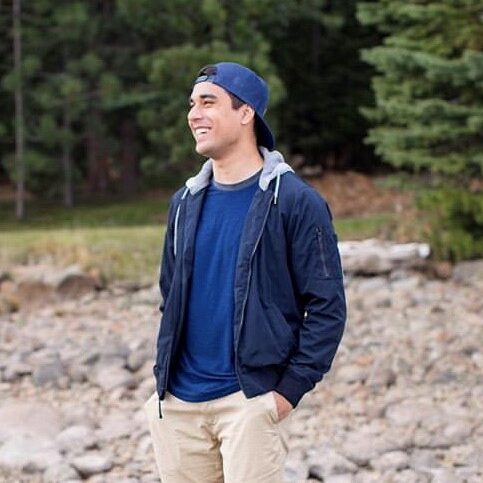
AJ Samra
Ajeet was born and raised in Yuba City, California. It was during his time growing up there that he developed a passion for nature, farmland and a strengthened resolve to recognize the impact that everyday practices have on the climate and environment. He witnessed firsthand the sustainable practices that some local farmers used and, a gap between availability of sustainable land practices in certain areas due to increased mechanization, resources, and policies. This passion and connection for sustainability along with his own personal love of nature is what steered him to earn a B.S. in Biological Sciences with an emphasis in Ecological, Evolutionary, and Organismal Biology from California State University, Chico. It was during this time of undergraduate studies that he became involved in environmental public policy through an internship at Citizen’s Climate Lobby. This combination of scientific knowledge and public policies builds a strong foundation for Ajeet to recognize how important environmental policy is and the impact. Experience, along with an avid interest in wildlife conservation, is what enables Ajeet to seek a future career in environmental conservation with the intent to be part of the solution to developing sustainable practices for generations to come.
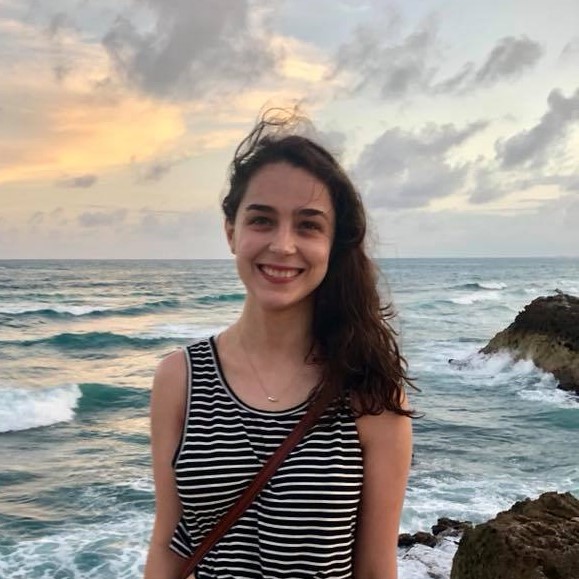
Alexis Canney
Alexis was born and raised in Brooklyn, NY. She earned her Bachelor’s in Environmental Studies at Vassar College. She became interested in biology and ecology while studying abroad in Costa Rica and Panama through the Organization for Tropical Studies. Since graduating, she has worked as an educator and fundraiser at a variety of New York City environmental nonprofits. She completed a certificate in horticulture from the Brooklyn Botanic Garden and is licensed to prune New York City street trees. In her free time she enjoys cooking, reading, gardening, photography, biking, hiking, and camping.
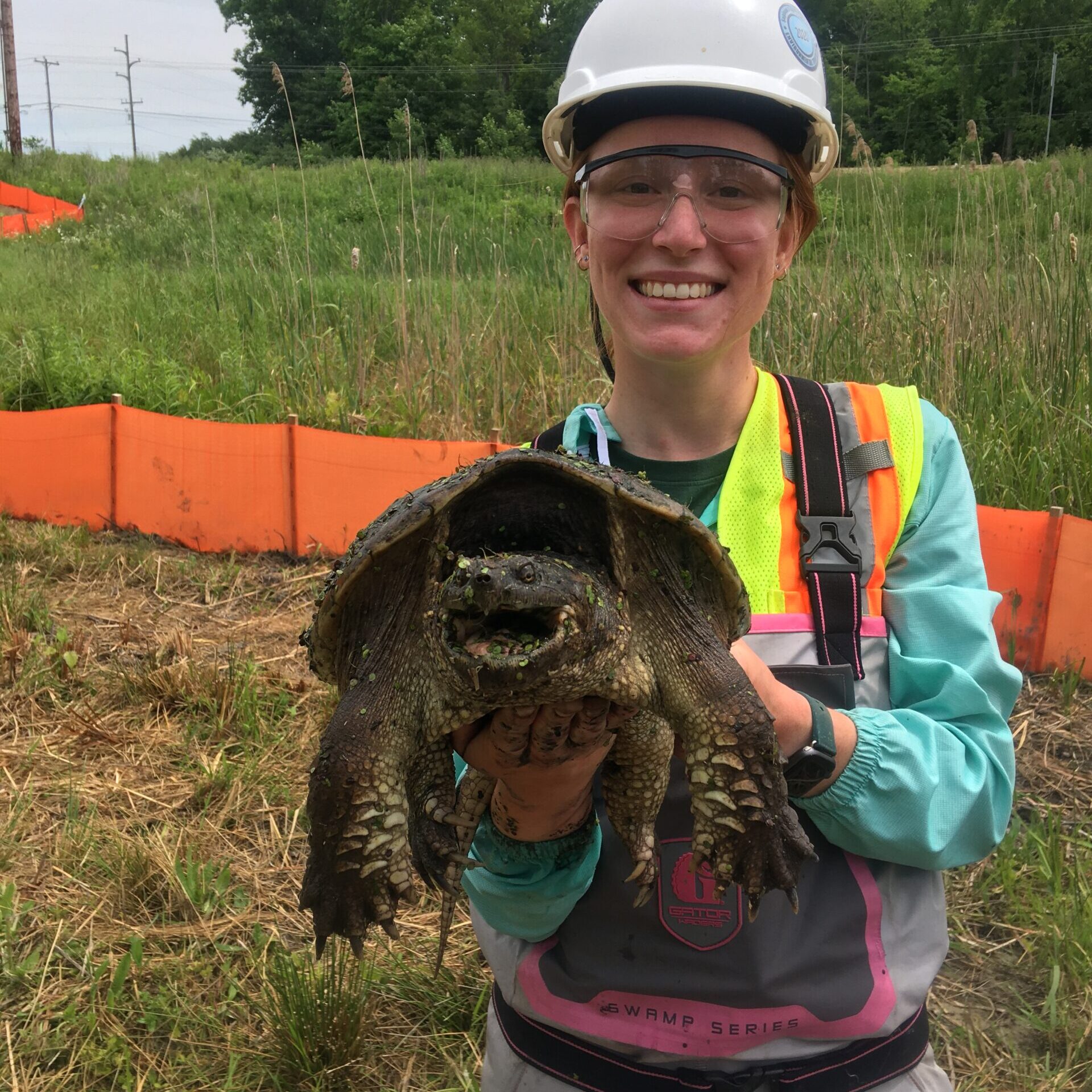
Anna Jullie
Anna was raised in Grand Haven, Michigan, where she spent her childhood on Lake Michigan, growing her love and interest in wildlife and ecology. She received her undergraduate degree from Michigan State University in Environmental Biology/Zoology, with minors in Environmental Studies and Sustainability and Marine Ecosystem Management. While at MSU, she spent time at the W.K. Kellogg Biological station taking classes and studying how plant volatiles impact insect herbivory. She also worked in Fort Walton Beach, Florida, interning with marine animals while learning about animal behavior and conservation. Anna also had the opportunity to intern at a local zoo, learning more about animal husbandry and conservation efforts happening near her own backyard. Much of her free time as an undergraduate was spent leading the MSU Bailey Bee Team, where she learned how to keep honey bees, teach other students about bees, and pursue the planting of a pollinator garden on her campus. This grew to be a huge passion of hers, driving her to keep beehives in her backyard. After graduating, she worked as a Wildlife Field Technician rescuing and relocating herpetofauna during the construction of the Saginaw Trail Pipeline. This job further solidified her strong interest in restoration and conservation, as she watched beautiful habitats being disturbed and restored. Anna is eager to expand her knowledge in conservation and work alongside the community to expand their engagement in the protection of plants and wildlife.
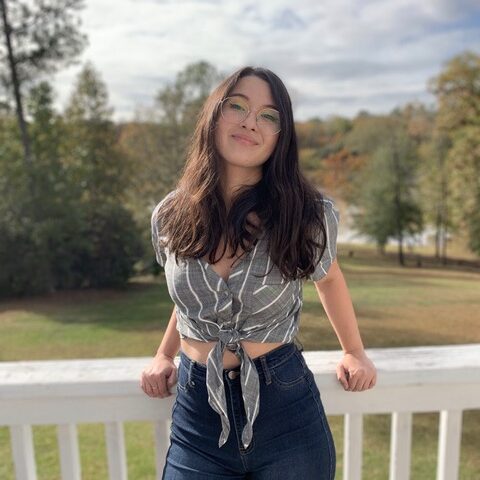
Barbara Kipreos
Barbara grew up in Athens, GA and attended Georgia Tech to earn a bachelors’ degree in biology and a certificate in philosophy. For two years, she was the conservation intern for the Atlanta Audubon Society (now called the Georgia Audubon Society), working under the conservation director. As conservation intern she learned how to band birds and helped to manage the community science program Project Safe Flight Atlanta, which seeks to measure the magnitude of bird-building collisions in Atlanta. During her time working with Atlanta Audubon, she discovered her passion for bird conservation. Barbara also has two field seasons of bird-banding experience in the southern Appalachian Mountains working with UGA’s Spatial Ecology Laboratory, where she grew to love field biology. She worked with the same lab for her REU (Research Experience for Undergrads) where she examined the effects of prescribed fire on the arthropod community composition in the southern Appalachians, focusing on arthropods as a prey base for birds. Outside of biology, Barbara loves sewing clothes, weaving tapestries, volunteering, and reading philosophy.
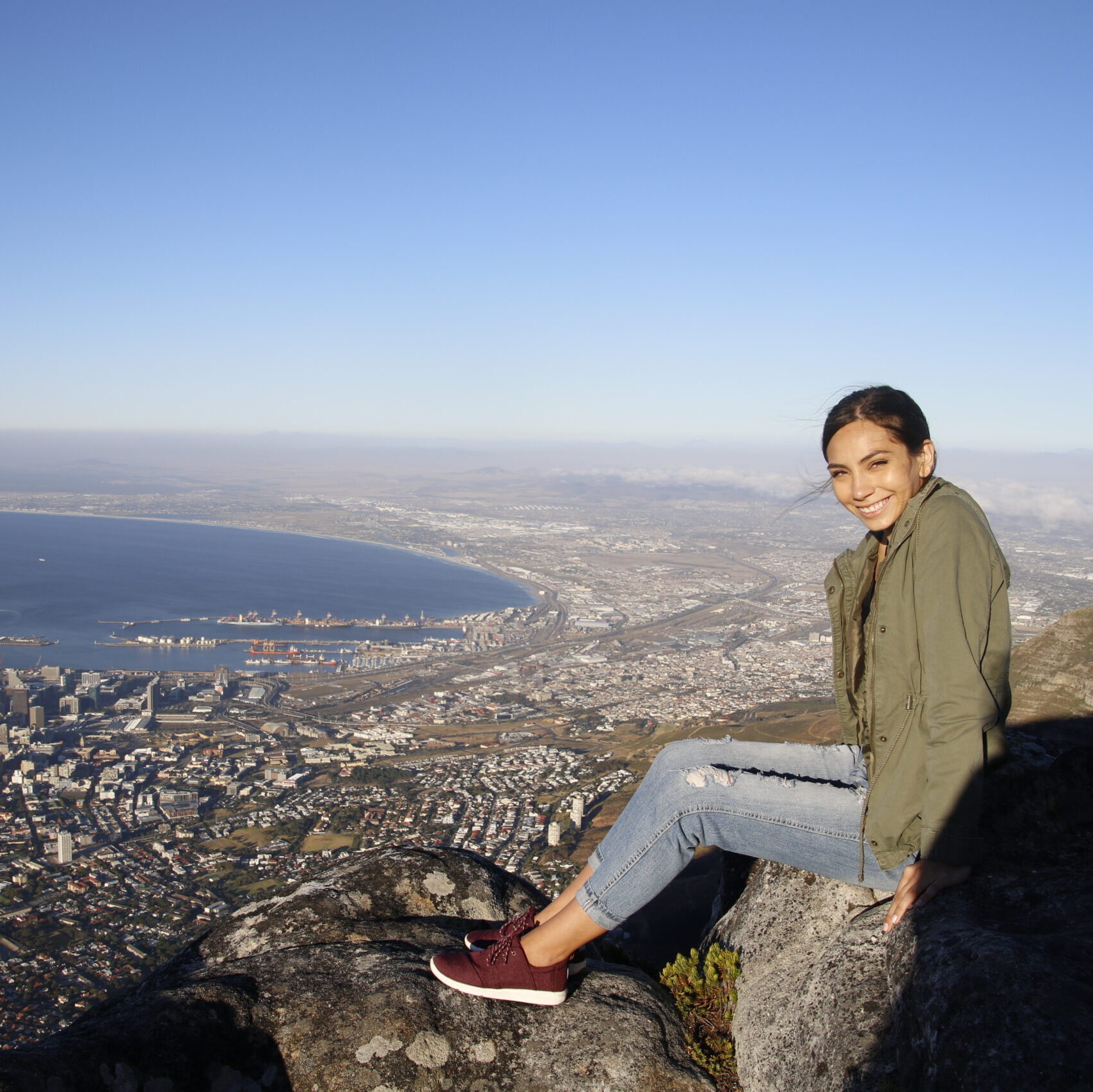
BryAnna Wertz
BryAnna grew up in West Covina, California and has always had a love for wildlife and the environment. She received her undergraduate degree from Whittier College where she majored in Biology, Environmental Science, and Environmental Studies. While at Whittier she had the opportunity to conduct research in South Africa and Hong Kong on invasive plant species and their impact on local ecosystems. After graduation she began working for Southern California Edison in their vegetation management department. Her main interest are in ecology, plant physiology, and conservation. She hopes the MCRS program will help her further develop her skills and techniques in research and allow her to develop comprehensive ideas in conservation and ecology. After the MCRS program she hopes to pursue a PhD and continue to do research.
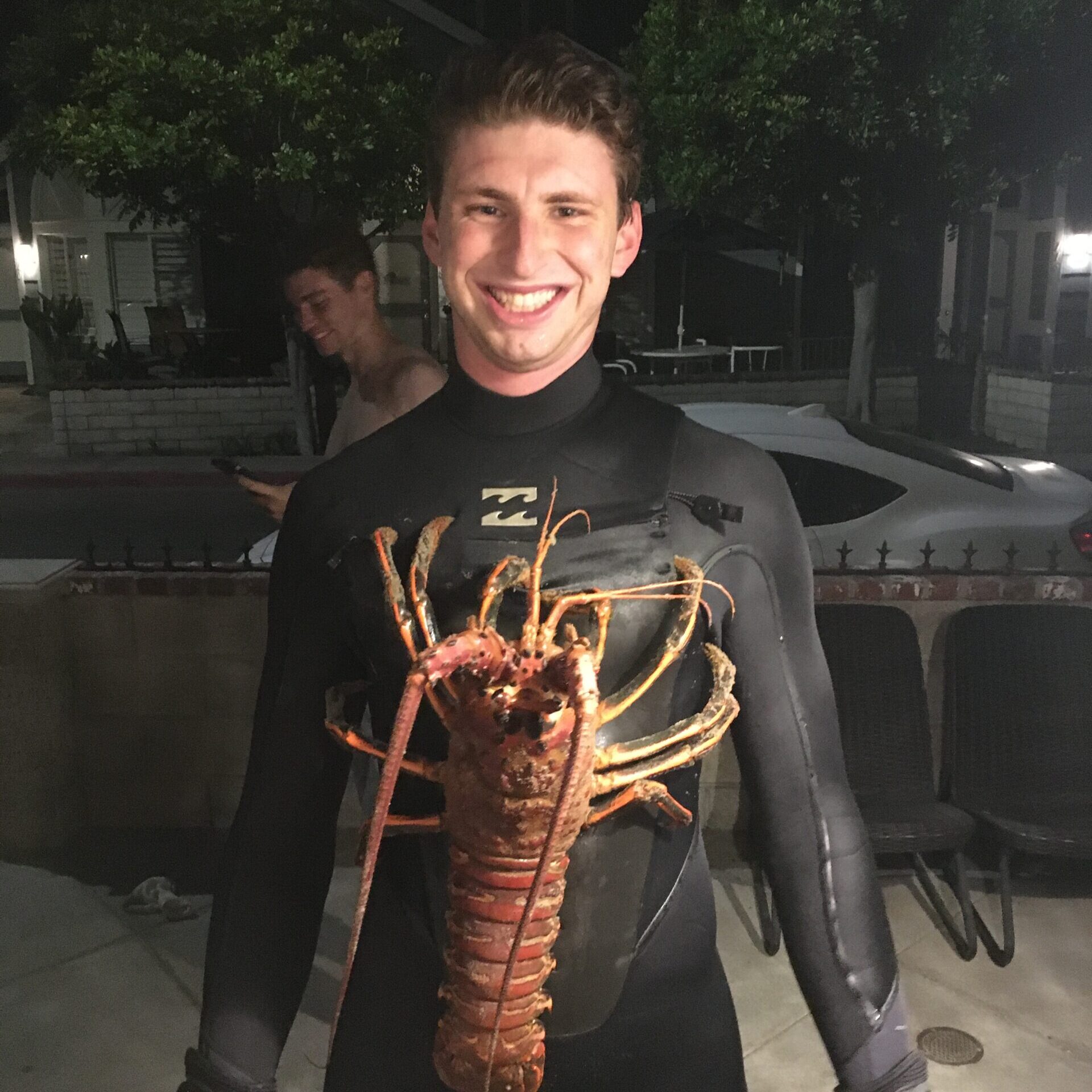
Connor Basile
Connor was born in Laguna Beach but lived in both Northern California and Arizona before returning to Southern California for highschool. While in Laguna, he spent much of his free time surfing, spearfishing and freediving. It was during that time that he began to see firsthand the harmful impacts from climate change. After watching Marine Protected Areas save the local fisheries, he wanted to explore, understand and apply biodiversity protection measures. Connor attended the University of California, Irvine and received a degree in Earth System Science. While there, he worked in the Sorte Marine Biodiversity Lab studying the impact climate change has on the intertidal zone and more specifically, how warmer water affects the larval stage of the California mussel. He spent time in Sitka Alaska at the Sitka Sound Science Center conducting field work and collecting data. Connor is also a 4 year varsity oarsmen on the UC Irvine Men’s Rowing Team. He was the captain and president of the team for the last two years and looks forward to continuing to compete for the University.
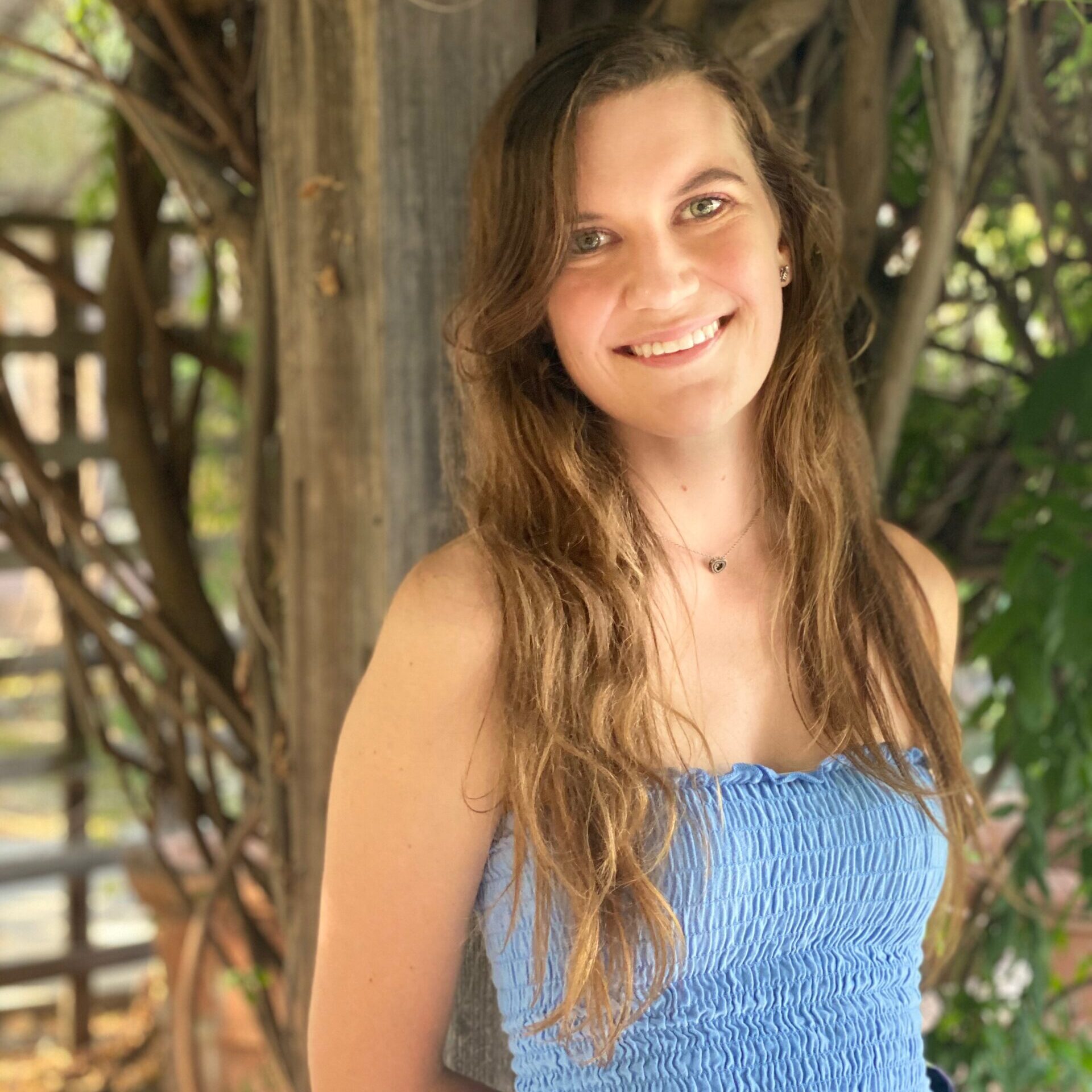
Dana Briggs
A native to Southern California, Dana’s passion for biology and environmental science stems from her early life growing up along the coast and exploring the diverse natural habitats in her region. Upon recognizing the destruction caused by individuals and companies, she knew her mission in life would be to understand and preserve these cherished places. For her undergraduate studies, she attended CSU Monterey Bay, CA to receive her B.S. in Ecology, Evolution, and Organismal Biology. During her time as an undergraduate, she interned for NOAA in Santa Cruz assisting with a groundfish fecundity study to help reassess outdated fish stock projections. Additionally, she also spent a month abroad in Australia volunteering with International Student Services to restore the former dairyland back to its native forest habitat. After earning her B.S., she knew she wanted to continue her path towards environmental protection and restoration. Through the Masters in Conservation and Restoration Science Program (MCRS), she hopes to gain the skills needed to create long-term solutions to habitat degradation, increase community engagement in local habitats, and integrate nature into our cities and lives.
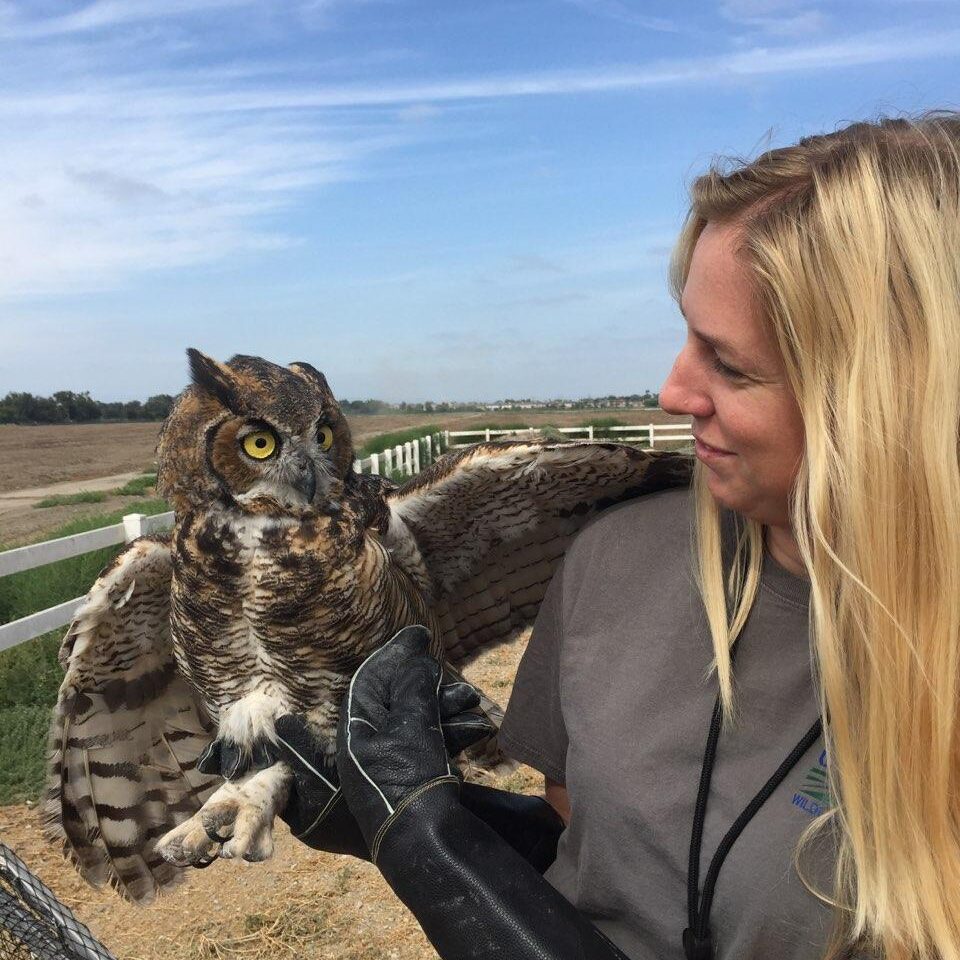
Elizabeth Herrmann
Elizabeth was born and raised in Southern California. She earned her undergraduate degree in Environmental Studies and a minor in biology from California State University, Sacramento. During her time in Sacramento, she interned with the United States Fish and Wildlife Service where she assisted in the review and development of species listings, vernal pool projects, and various site visits pertaining to mitigation banking and land development as it pertained to the Endangered Species Act, Section 7. Upon graduation, Elizabeth joined an Americorps program where she assisted the Department of Environmental Protection in Florida. Some of the duties there included prescribed burning, sea turtle and marine fish surveys, invasive species removal, volunteer outreach and community education. Elizabeth is currently working for the United States Department of Agriculture as a wildlife biologist at Ontario International Airport, where she has committed over 4 years to working on habitat modification, wildlife observations, and raptor trapping and banding to reduce the risk of wildlife strikes with aircrafts. Her interests in wildlife biology and conservation has led her to the Masters in Conservation and Restoration Science (MCRS) at UCI, where she hopes to gain rich knowledge and experience through the active adaptive management learning style the program provides. Additionally, she hopes to gain valuable networking opportunities and further her passion through all available opportunities within MCRS.

Hayden Franciscus
Hayden is from Huntington Beach, California. Having grown up near the ocean, his love for the natural world started early and followed him into his academic career. He obtained his B.S. in Ecology and Evolutionary Biology from UC Santa Cruz. While there he got involved in NOAA’s Southwest Fisheries stock assessment program concerning threatened and endangered pacific salmon species, and could be found hiking, surfing, and exploring in his free time. After graduating and unable to shake his curiosity with the powers of DNA, he entered into the Bay Area’s biotech industry with a gene therapy start up. He joined as a lab tech and later became a research associate assisting with a wide variety of molecular biology-based projects. The experience was invaluable, but he knew he wanted to return to his field of study and help protect the environment. He sold his possessions and went backpacking southbound along the Pacific Crest Trail to contemplate his next steps and walk back home. The near untouched beauty of the Pacific Northwest was awe inspiring, but reminded him of the dire situation Southern California habitats were in. He joined the MCRS program to be immersed in an interdisciplinary environment, and to learn and grow as a scientist. As a student in the program he aims to gain experience in converging research areas and to diversify his skillset. His goal is to ultimately apply these tools to maintain ecosystem health and conserve natural resources.
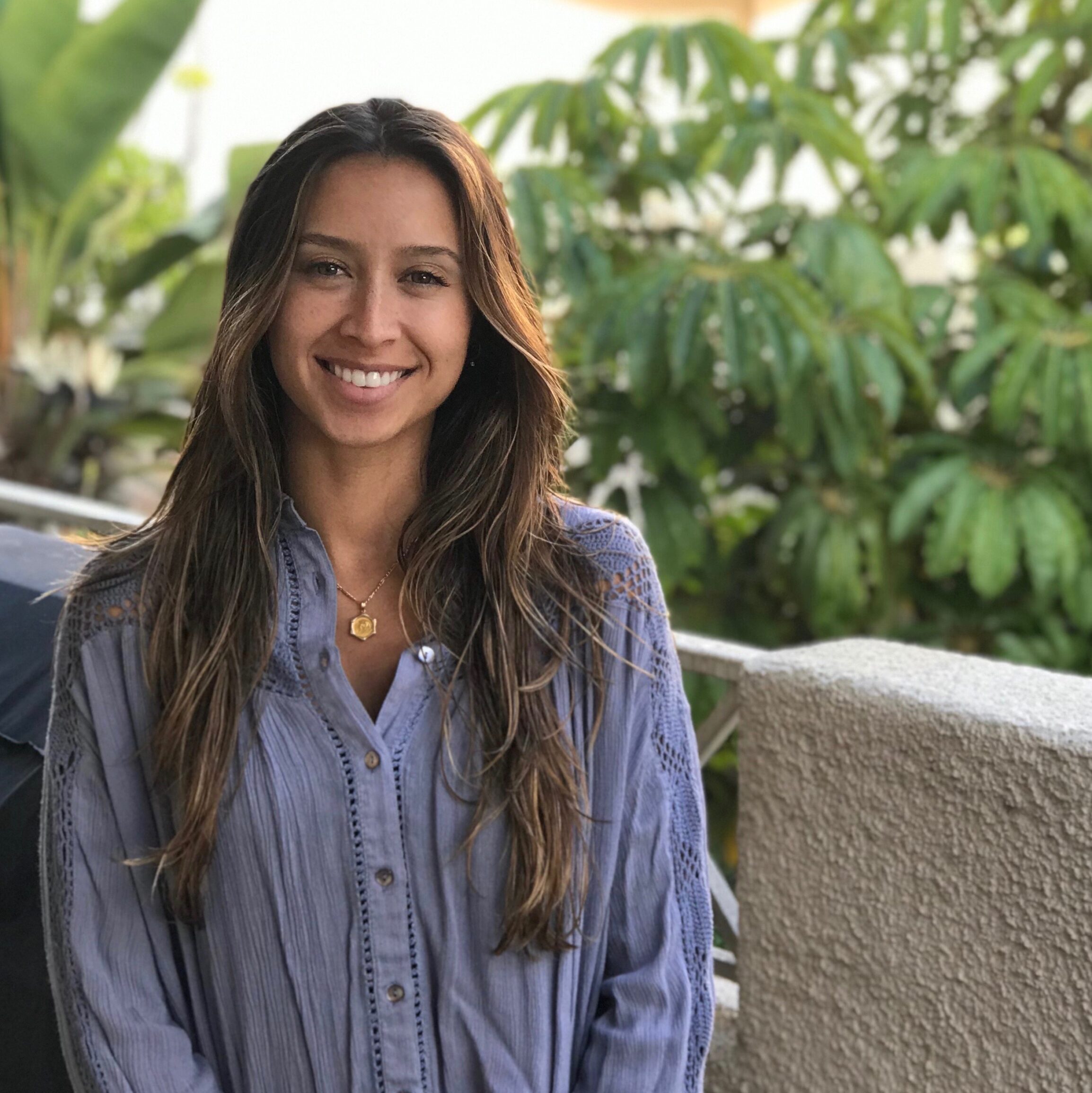
Jennifer Mendez
Jennifer is an environmental communications intern for Amigos de Bolsa Chica, a local non-profit conservation organization. She handles all their social media platforms and educational outreach while exploring new facets to continue to educate and spread awareness about the importance of preserving and protecting wetland ecosystems. Additionally, Jennifer is also interning for NOAA as a science communication/social media intern. At NOAA, she helps support the National Marine Sanctuary System and ocean conservation by spreading the word about the importance of marine sanctuaries. She also assists with writing web stories to give detailed updates to the general public about things happening throughout the National Marine Sanctuary System such as science and conservation, interesting research findings, new educational or recreational opportunities. Always being interested in conservation, Jennifer learned the importance of interdisciplinary skills and would love to incorporate her passion for conservation through a career in natural resource management. She is specifically interested in the protection of endangered species and habitats. She ultimately hopes to find a career in endangered species and natural resource management overseeing institution’s conservation activities that focus on the recovery of endangered species and the protection of critical habitats.
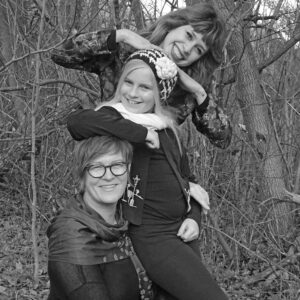
Jessica Rath
Jessica is a Los Angeles-based artist and educator originally from an organic cattle farm in the southern Missouri Ozarks. Over the past ten years of art/science collaborations with animal behaviorists and plant physiologists, Jessica became intrigued with plant pollinator relationships and biodiversity at wildland-urban interfaces. Her projects’ focus has varied from apple breeding at Cornell University-NYS Agricultural Experiment Station to the multi-sensory modalities of bees with the Leonard Bee Lab at University of Nevada. Finding native seedbeds flourishing and riparian areas regenerating when she removed cattle from her land, Jessica was inspired to become a steward and researcher for biodiversity as the ultimate art project. She looks forward to gaining the skills for successful restoration management and research with the MCRS Program. With 25 years in southern California, she also has special penchant for California’s 400 native bees and the native plants they pollinate. She is currently an Associate Professor at ArtCenter College of Design and holds a B.A. in Sociology from the University of Missouri-Columbia and a M.F.A. in Fine Art from California Institute of the Arts in Valencia, CA. Believing we are always part of communities, Jessica (above) is pictured with her daughter Emma Ann and friend and ecologist Yara Herrarte.
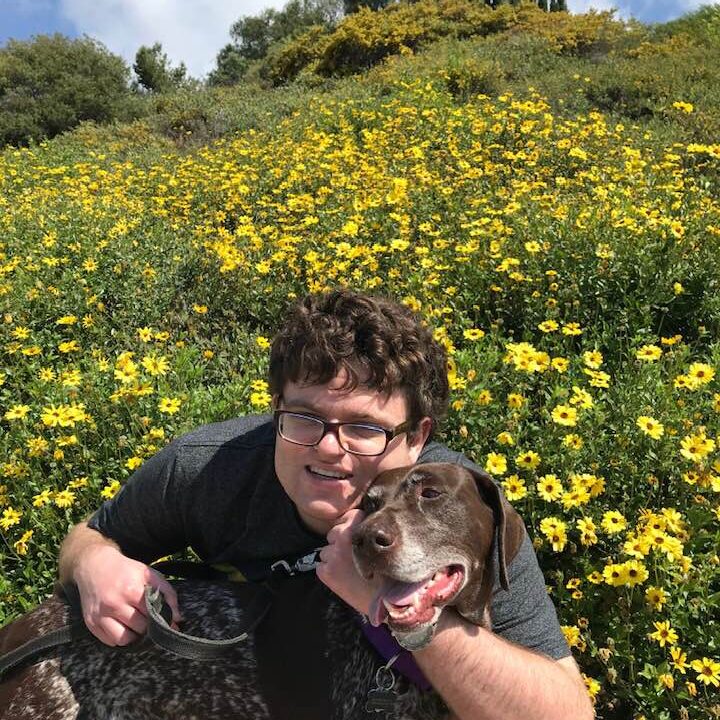
Matthew Walsh
Matthew Walsh grew up in Laguna Niguel, California. He became interested in the environment and the challenges associated with conservation and habitat restoration from living through one of the worst droughts in the history of California. It became clear to him from a young age that the failure to take adequate steps in the conservation of resources would become a roadblock to continued habitation of the arid west. Matthew has been involved in habitat restoration locally and has volunteered at multiple state and local wildlife preserves within the Los Angeles and Orange County area. Matthew went on to attain his Bachelor’s in Environmental Studies at the University of Southern California and following graduation became a certified Orange County Parks volunteer. Matthew has an interest in water resources and completed an internship with the San Diego County Water Authority in the Water Resources department. He is also a certified Water Distribution Operator and Water Treatment Operator. In his spare time, Matthew enjoys hiking and nature photography. Matthew is seeking to further expand his capabilities in resource management and conservation to ensure that natural landscapes are granted fair consideration among stakeholders.
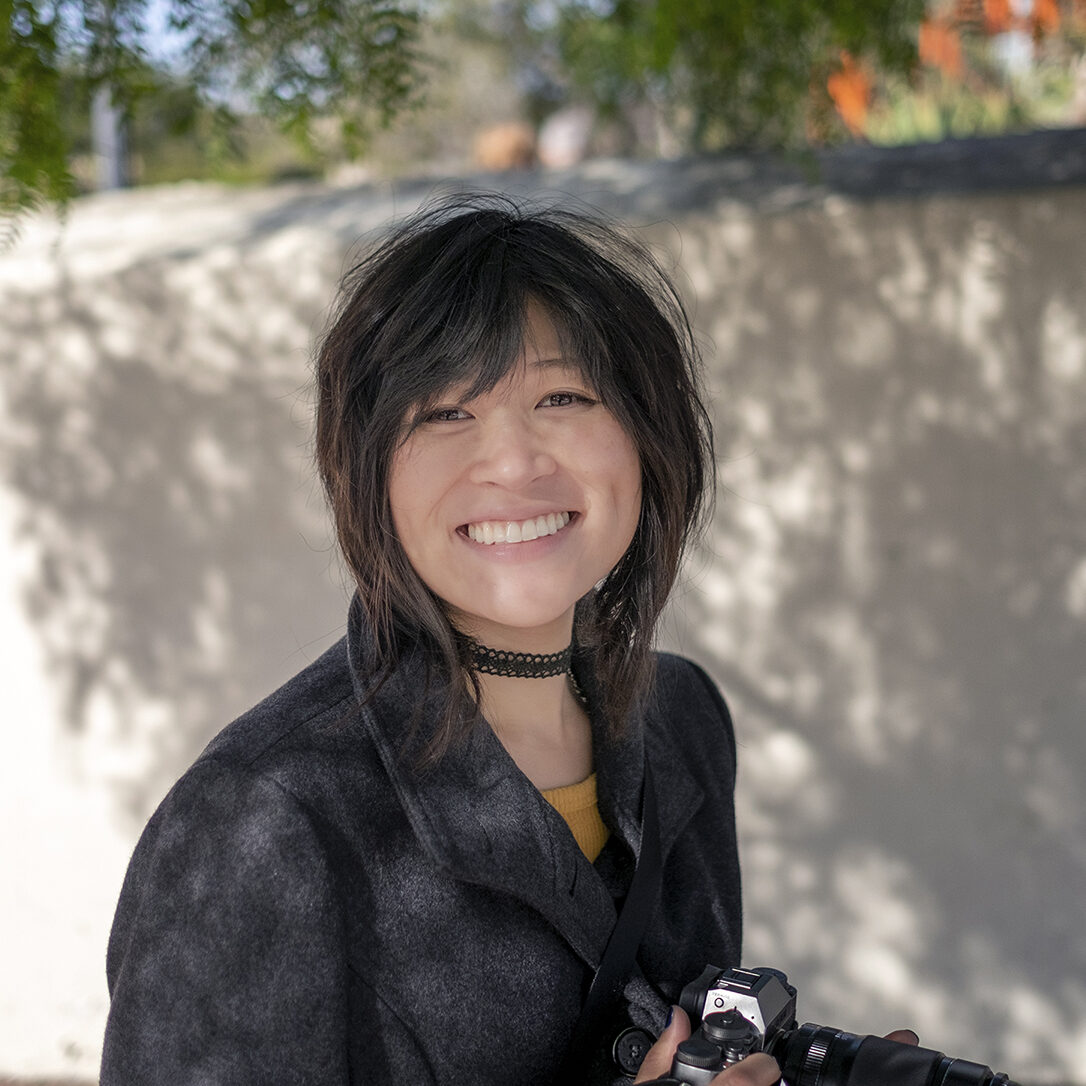
Michelle dela Cruz
Michelle mostly grew up in Salinas, California and spent many years pursuing an undergraduate degree at nearby colleges as a panther, a banana slug, a lobo, and an otter (in terms of college mascots). She had a hard time deciding whether to major in art, psychology, or natural science, but ultimately found her passion in environmental studies and biology. She graduated from California State University, Monterey Bay in 2017 and took a California plant communities course in her last semester which led her to the world of horticulture at Suncrest Nurseries months later. Michelle learned a lot—from production and record keeping to graphic design and photography—but working with Biodynamic plants had the greatest impact on her career goals. Biodynamic growing principles resonated with her understanding of balance and interconnection in ecology and encouraged her to examine her own connection to nature. Natural environments often have a positive effect on emotional wellness, and caring for plants turned out to be a form of self-care for Michelle. She is excited to expand on this idea in the MCRS program so that caring for plants benefits not only her well-being, but also that of the environment and by extension the communities she lives in.
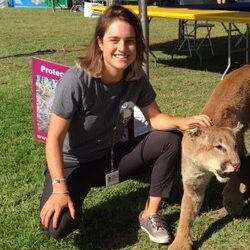
Olivia Jenkins
After graduating University of California Los Angeles (UCLA) with a degree in Geography, GIS, and Spanish, Olivia has grown to love living in the City where nature has taken on a new definition and encountering wildlife is a spiritual experience. For the past six years, she worked as a GIS Analyst in the Architecture, Engineering, and Construction (AEC) industry, developing maps for public transportation projects on the west coast. Applying to the MCRS Program marks a significant career change on her path towards contributing to local restoration and conservation efforts. She is excited to return to the field and continue where she left off backpacking through Banff, Canada to study wildlife corridors and hiking up mountains in Oahu to plant native Hibiscus brackenridgei. She hopes to learn through the MCRS Program how to restore fragmented habitats as a result of urban sprawl. In partnership with others, she also hopes to learn how to address social inequality and environmental injustices done to the most vulnerable communities on earth. She envisions a connected network of habitats and a connected community where no one’s voice is silenced.
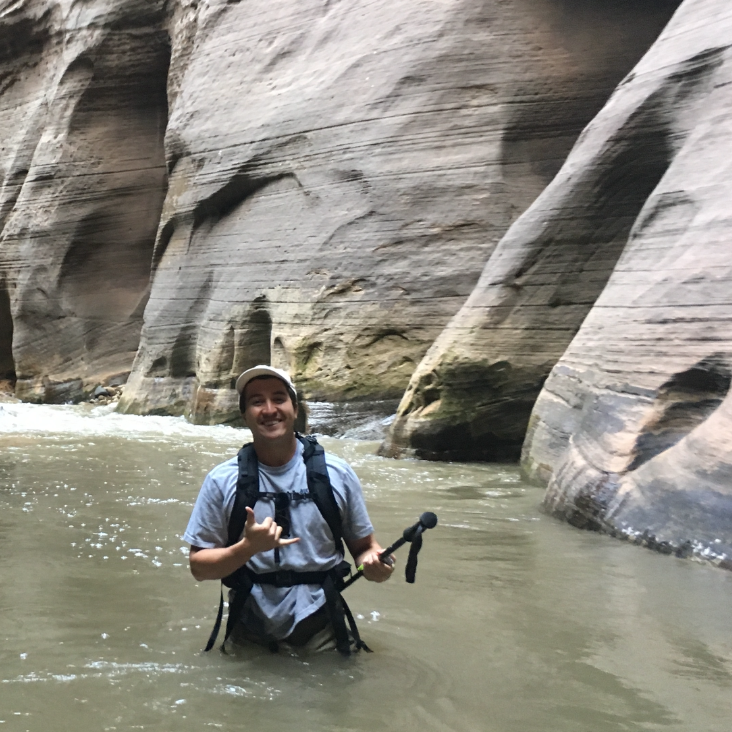
Phillip Samples
My name is Phillip Samples and I live in Los Angeles, California where I was born and raised. Over the years, I have developed a deep appreciation for nature, spending the majority of my time growing up camping and hiking throughout the San Gabriel Mountains with my family and friends. I received my BS in Biochemistry from Cal State, Los Angeles and during my tenure there I invested a lot of time in a laboratory setting conducting a wide variety of research projects. These research projects ranged from studying sea slug larval ecology to understanding food pigment antioxidant capabilities. Following my undergraduate career, I completed a marine conservation volunteership In Belize where we removed invasive lionfish, participated in coral reef restoration, and collected data on endangered species. I am broadly interested in conserving California’s rich biodiversity and I am specifically interested in mitigating the damage caused by invasive species, and climate change. Within the MCRS program, I am looking forward to expanding my fieldwork experience and learn more about ecosystem conservation, wildlife and marine conservation, and environmental policy.
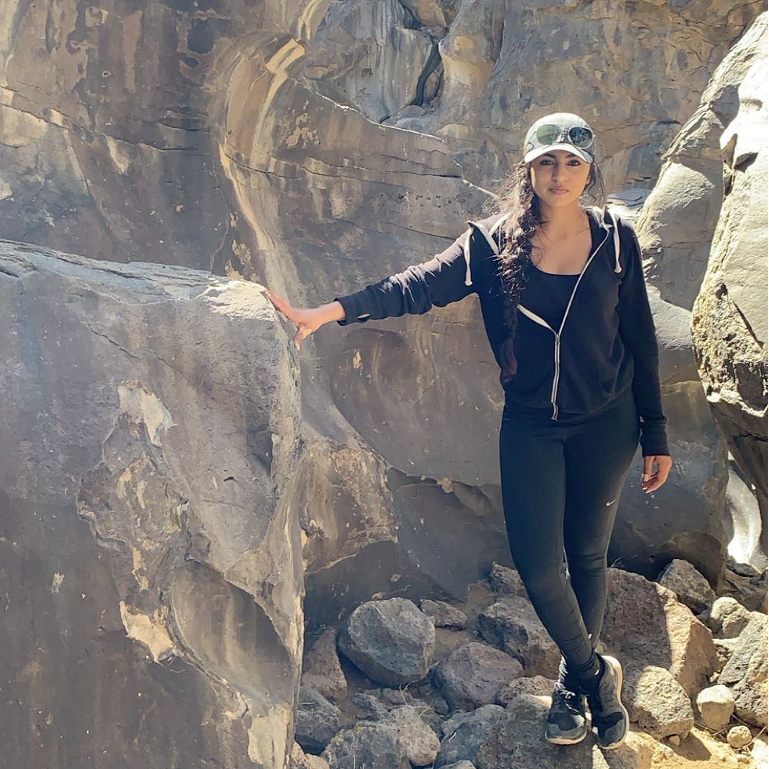
Rubeen Khunkhun
Born and raised in the Central Valley, Rubeen grew up surrounded by agriculture and farmland. She earned her B.S. in Environmental Resource Management with concentrations in Occupational Safety and Health & Forestry from CSU Bakersfield. For her senior capstone project, she worked with the U.S. Department of Agriculture through the Natural Resource Conservation Service to implement sustainable cultivation practices with a local farmer. Additionally, she used the 9 steps of conservation planning to address several resource concerns and ensured compliance with NEPA. Last summer, she experienced a three-month ecology program in Punjab, India where she worked with a team of interns to set up specialized projects involving the creation of compost areas, implementation of sustainable farming practices, and setting up a forestry stand regeneration. In her free time she enjoys gardening, exercise, and spontaneous beach trips. She is interested in restoring plant communities crucial to threatened and endangered species, preserving wildlife corridors, and helping to mitigate destruction caused by WUI. Within the MCRS program, she hopes to further her knowledge of various ecological systems at play to help ensure that the rich biodiversity in California thrives.
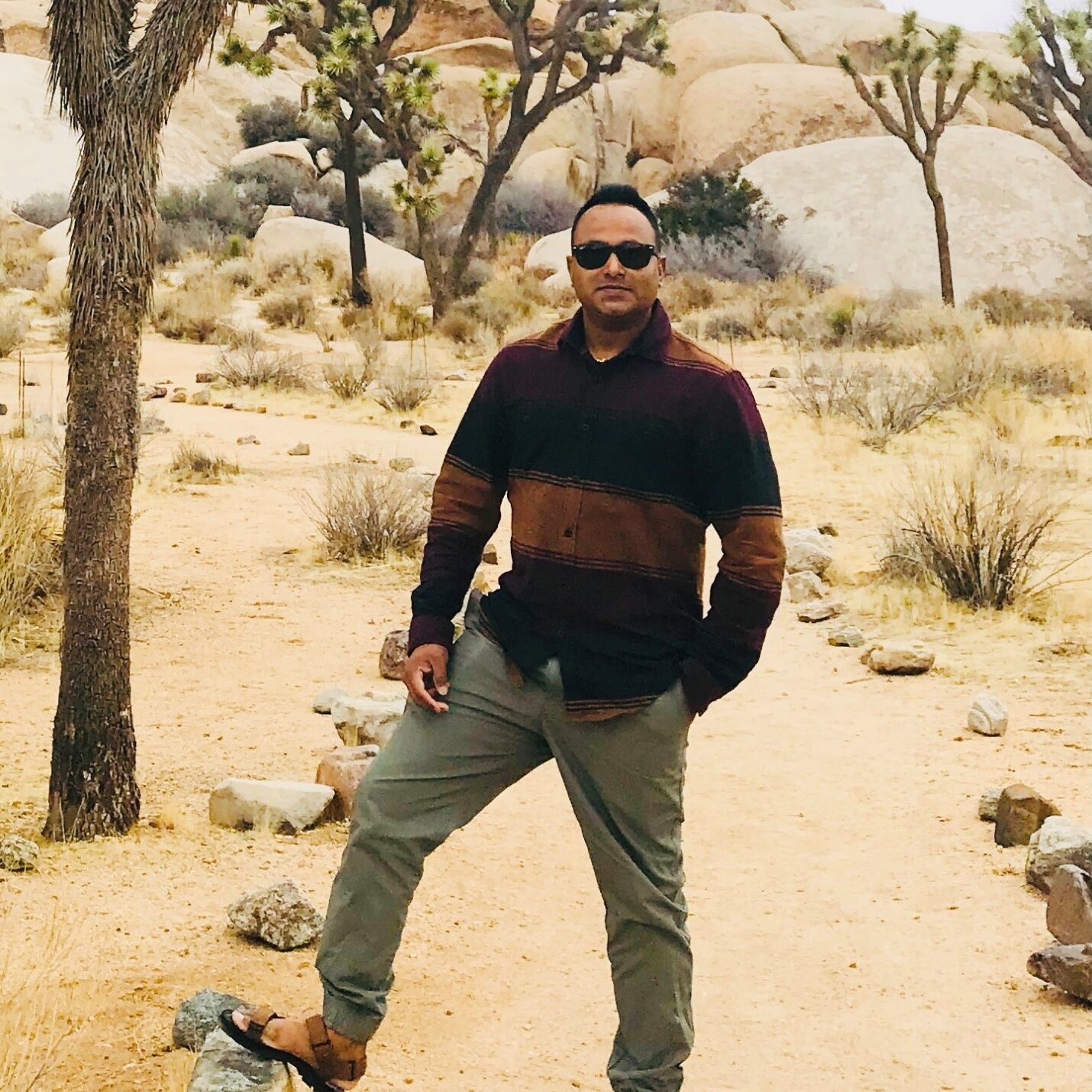
Sanjay Das
Sanjay is originally from Nepal and moved to the USA in early 2017. As Nepal is a developing country, most of its land is intact by human influence, resulting in rich biodiversity and dense forest cover. Having such an opportunity to live so close to nature from childhood, he developed a passion for the environment, wildlife, and conservation. He pursued his undergraduate and a graduate degree in Environmental Science from Tribhuvan University, Nepal. During his masters, he worked on a project to monitor the Climate change effect on melting Glaciers and its geomorphological mapping in Lirung Glacier of Langtang National Park, Nepal. His professional journey advanced with an internship with United States Agency for International Development (USAID Nepal) in the Social, Environmental, and Education Department – helped to understand project planning, cost management, project execution, monitoring, and evaluation. After a year of internship, he worked with UNICEF Nepal for two years to execute its Water Sanitation and Hygiene (WASH) project in Far west Nepal as a District Program Officer. After the successful tenure in UNICEF Nepal, Sanjay joined World Wildlife Fund (WWF) in Nepal as Database and Monitoring Officer. He was responsible for the overall implementation of monitoring framework and activities of WWF Nepal’s programs and projects in close coordination with relevant units. . He conducted regular monitoring and evaluation of the projects as per the adaptive management cycle during his one year of service. He moved to Southern California in 2017 and currently living in Anaheim (Orange County) since then. He is presently working with Energy Environmental Solutions, Inc (EES) as Staff Engineer – Environmental Specialist. EES is a greenhouse gas monitoring and consulting firm mainly responsible for providing high-quality engineering and testing services to environmentally concerned industries.
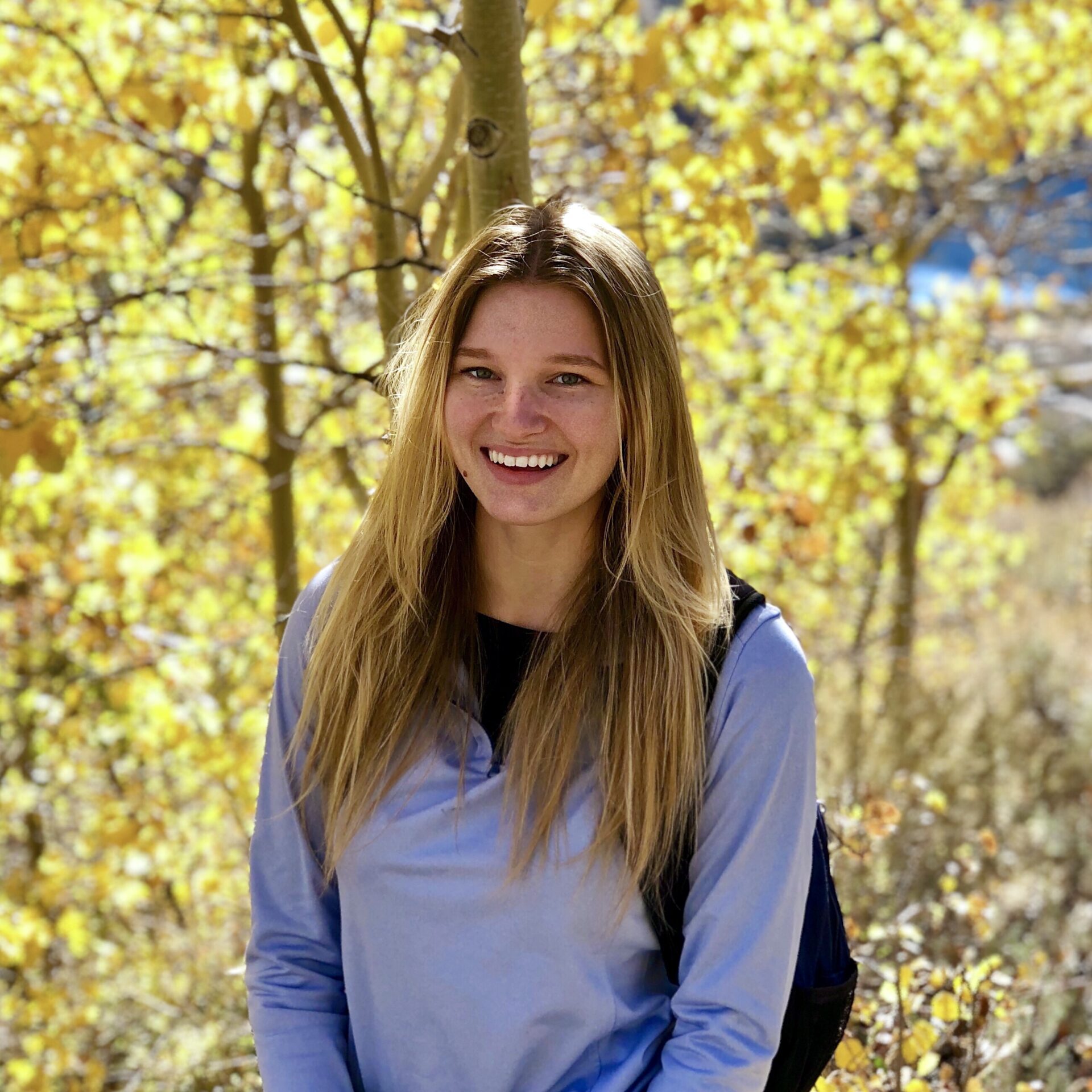
Taylor McGrath
Taylor comes from Nashville, TN, but moved around a few times as her father was in the Air Force. She has always loved the outdoors and growing up some of her childhood heroes were Steve Irwin, Jeff Corwin, and Jane Goodall. She received her B.A. in Sociology at Loyola Marymount University where she became interested in conservation after taking a few environmental science classes. She interned with The Bay Foundation where she was able to work on restoration projects in a variety of ecosystems in Santa Monica Bay including beaches, lagoons, wetlands, and kelp forests. She became particularly interested in wetlands so she interned at Friends of Ballona Wetlands where she conducted bird surveys. Using GIS mapping, she recorded and analyzed bird patterns and behaviors. Her favorite time to go bird watching is during the spring to observe the progression of hatchlings as they learn to fly and swim. Through her internship, she has become very passionate about the restoration of the wetlands and the protection of birds. In the MCRS program, she hopes to expand her knowledge in environmental conservation and to continue to do research in wetlands.

Vanessa Montellano
Vanessa was born and raised in Orange County, California, where she earned her undergraduate degree in Biological Sciences with an emphasis in Human Anatomy and Physiology from Chapman University in 2019. During her time as an undergraduate, Vanessa was determined to pursue medical school to become an ER physician. In the last semester of her senior year, her Biology Capstone course introduced her to plant and microbial communications, where her interest in studying underground communities flourished. Post-graduation, Vanessa volunteered as a Research Assistant in Dr. Emma Aronson’s Soil Microbial Ecology and Biogeochemistry Lab at UCR, where she obtained a position as a laboratory technician and has been learning essential wet-lab procedures vital for graduate studies. Leading up to graduate school, she has devoted her time volunteering for a non-profit that aims to record microbial communities capable of enduring in harshly contaminated environments and naturally amended to survive severe petroleum contamination in hopes of preserving biodiversity and protecting affected communities. Vanessa looks forward to pursuing bioremediation research and learning about marine conservation with plans to pursue her Ph.D. after her Masters.
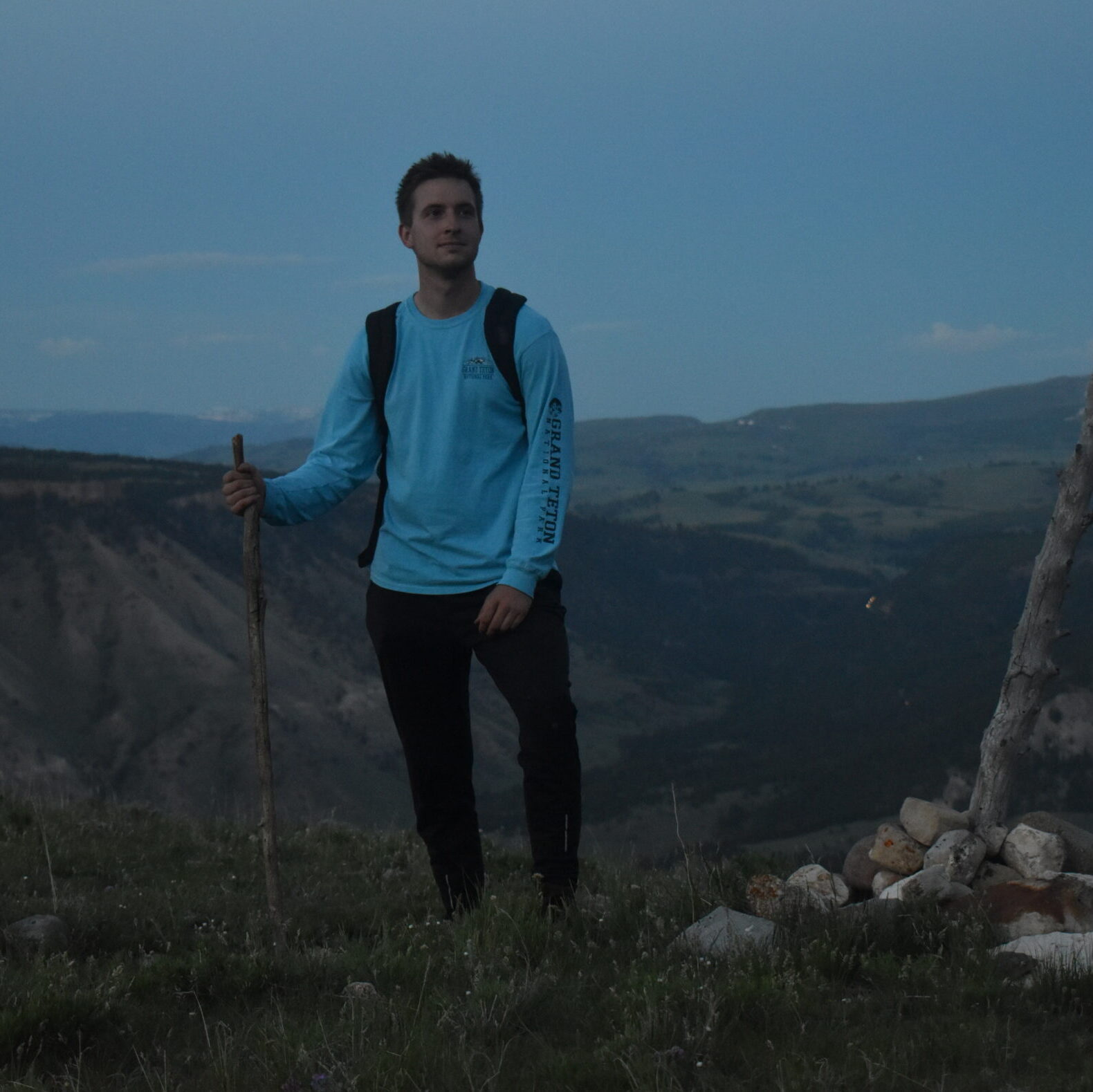
Vincent Woolsey
Vincent was born in Independence, Missouri where he developed his passion for the environment throughout his childhood from visiting family who live in the rural northeastern portion of the state. Growing up fishing, gardening, and exploring the hills of the area, Vincent took his passion for the environment with him as an undergraduate at the University of Missouri where he received his bachelor’s degree in Environmental Science with an emphasis in Hydrology and a minor in Mathematics. While attending Mizzou he was employed by the USDA Agricultural Research Service and helped monitor pesticide and nutrient concentrations from local agricultural runoff, developed rating curves for local tributaries of the Missouri River, and helped develop phytodegradation techniques for native riparian buffers. By continuing with his education at UCI, Vincent hopes to learn more about how human populations affect their environment and ways to better manage their impacts.

Tarynn Kimmick
Class of 2021
Cohort 3
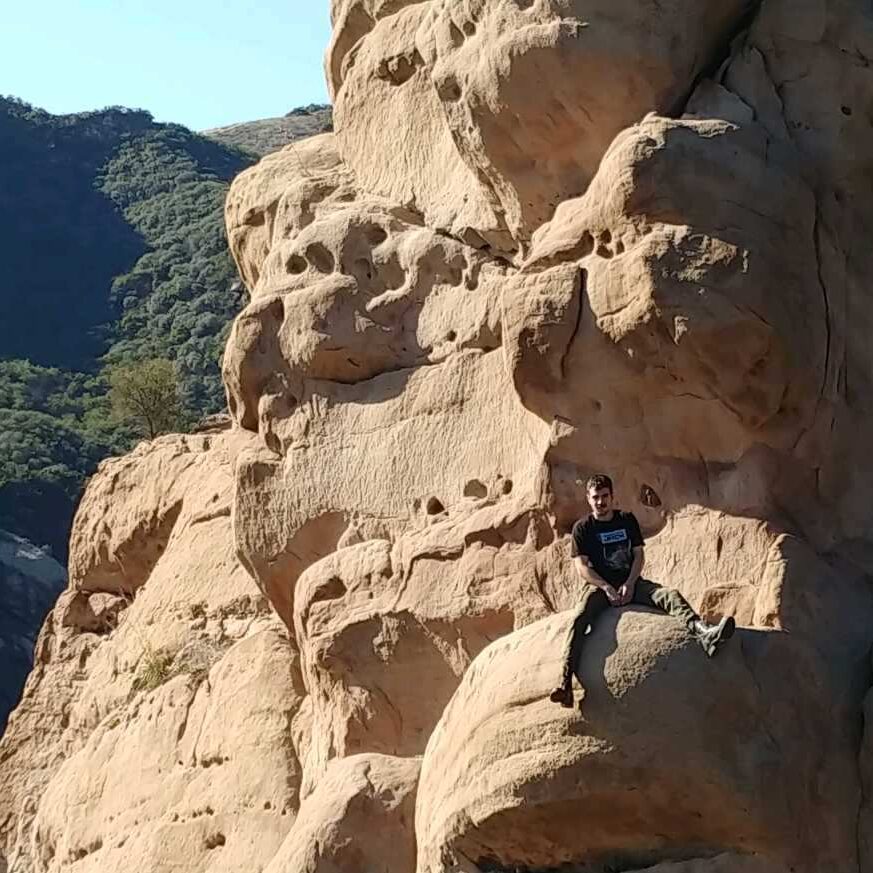
Andrew Laleian
Andrew was raised and spent most of his life in Pasadena, California near the base of the San Gabriel Mountains, where he fell in love with nature. While most people know Pasadena for the Rose Parade, seldom few explore the mountains in the backdrop. Andrew spent most of his early years hiking through these mountain ranges, which sparked his interest in ecology and the chaparral ecosystem. During his time at CSU Northridge, Andrew worked on many diverse experiments for the Gray lab and independently in ecosystems that ranged from the tropical rainforests of Ecuador to the harsh and expansive deserts of the Southwestern US. During his final year at CSUN, Andrew co-founded an urban gardening initiative called One Plant-it which helped novice gardeners with getting their first plant to fruit and appreciating the joys of growing one’s own food. After CSUN, Andrew was fortunate enough to be a part of a multitude of engaging wildlife and conservation projects working with sage-grouse, birds of prey, bats, and ducks. However, it wasn’t until working for the Santa Monica Mountains restoration crew on the recent Woolsey Fire that Andrew knew what he wanted to focus his career on. In our modern world, so much of the products of our work are detached and invisible from the labor that goes into them. The chaparral affected by the Woolsey Fire will take decades to return to a mature succession state. However, in his short time there, Andrew saw how a well thought-out restoration plan that utilizes adaptive management techniques can rescue an ecosystem from being converted into a collage of weedy invasives following a large-scale disturbance. Through the MCRS program, Andrew aims to refine his botanical experience and knowledge of modern restoration principles so that he may one day contribute meaningfully to the field.
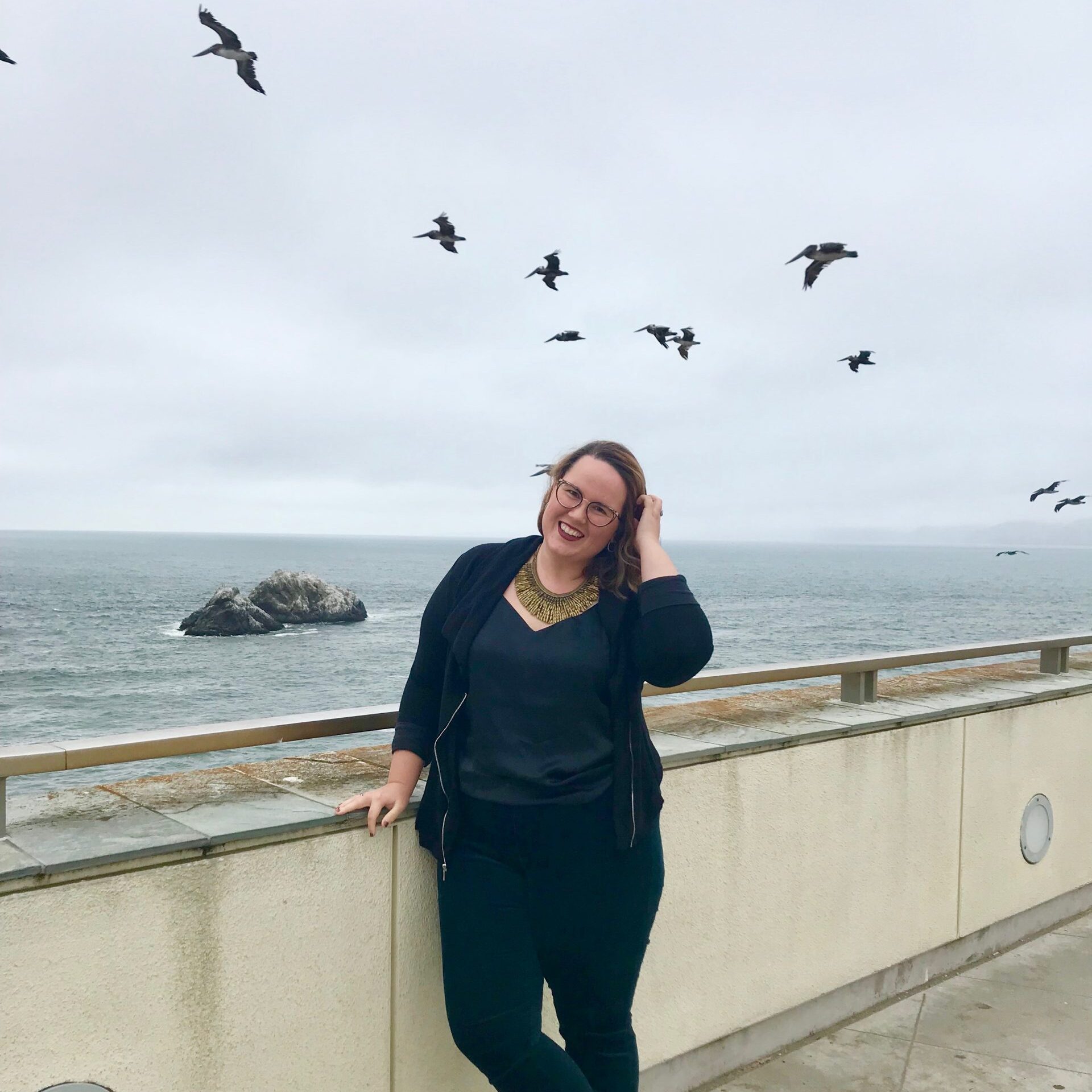
Ashley Lockwood
Ashley was born and raised in southeast Michigan where she spent most days outdoors, camping, or at zoos and museums. From there, her passion for informal STEM education and wildlife conservation grew, modeling her career goals after the likes of Bill Nye, Jeff Corwin, and David Attenborough. Ashley attained her undergraduate degree in Fisheries and Wildlife Sciences with a focus in Conservation Ecology from Oregon State University and chose to pursue that degree online so she could travel. During this time, she was able to work with a variety of organizations including the National Audubon Society, the National Oceanic and Atmospheric Administration, and local research labs and state wildlife agencies. Through travel within the U.S., she learned to appreciate how cultural values and regional natural resource issues can influence how society approaches environmental challenges. In particular, Ashley is interested in the urban-wildland interface and how we, as a society, will move forward with wildlife and habitat conservation issues in the future. These human dynamics of conservation include acknowledging indigenous knowledge and rights, the quality and funding of institutional STEM education, and encouraging a multidisciplinary approach to revolutionize inclusiveness at the policy table.
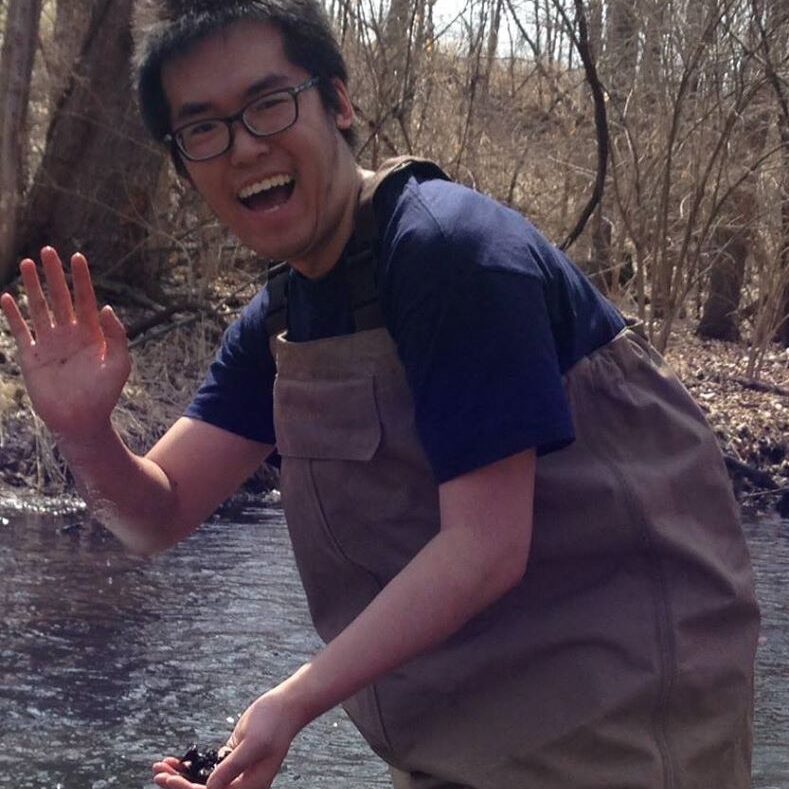
Bill Wang
Bill spent his undergraduate conducting research on invasive species and assisted in developing methods to detect the presence of them using environmental DNA. After undergraduate, he spent some time traveling while doing volunteer work as well. Highlights included volunteering with sea turtles in Costa Rica, being an assistant researcher in China conducting research to determine if male-male competition can enhance captive panda’s reproduction, working with samango monkey’s in South Africa to see if human presence affect behavioral traits, and with USGS working on sage grouse. Bill’s hobbies include photography, hiking, and mountain biking.

Bill Wang
Bill spent his undergraduate conducting research on invasive species and assisted in developing methods to detect the presence of them using environmental DNA. After undergraduate, he spent some time traveling while doing volunteer work as well. Highlights included volunteering with sea turtles in Costa Rica, being an assistant researcher in China conducting research to determine if male-male competition can enhance captive panda’s reproduction, working with samango monkey’s in South Africa to see if human presence affect behavioral traits, and with USGS working on sage grouse. Bill’s hobbies include photography, hiking, and mountain biking.
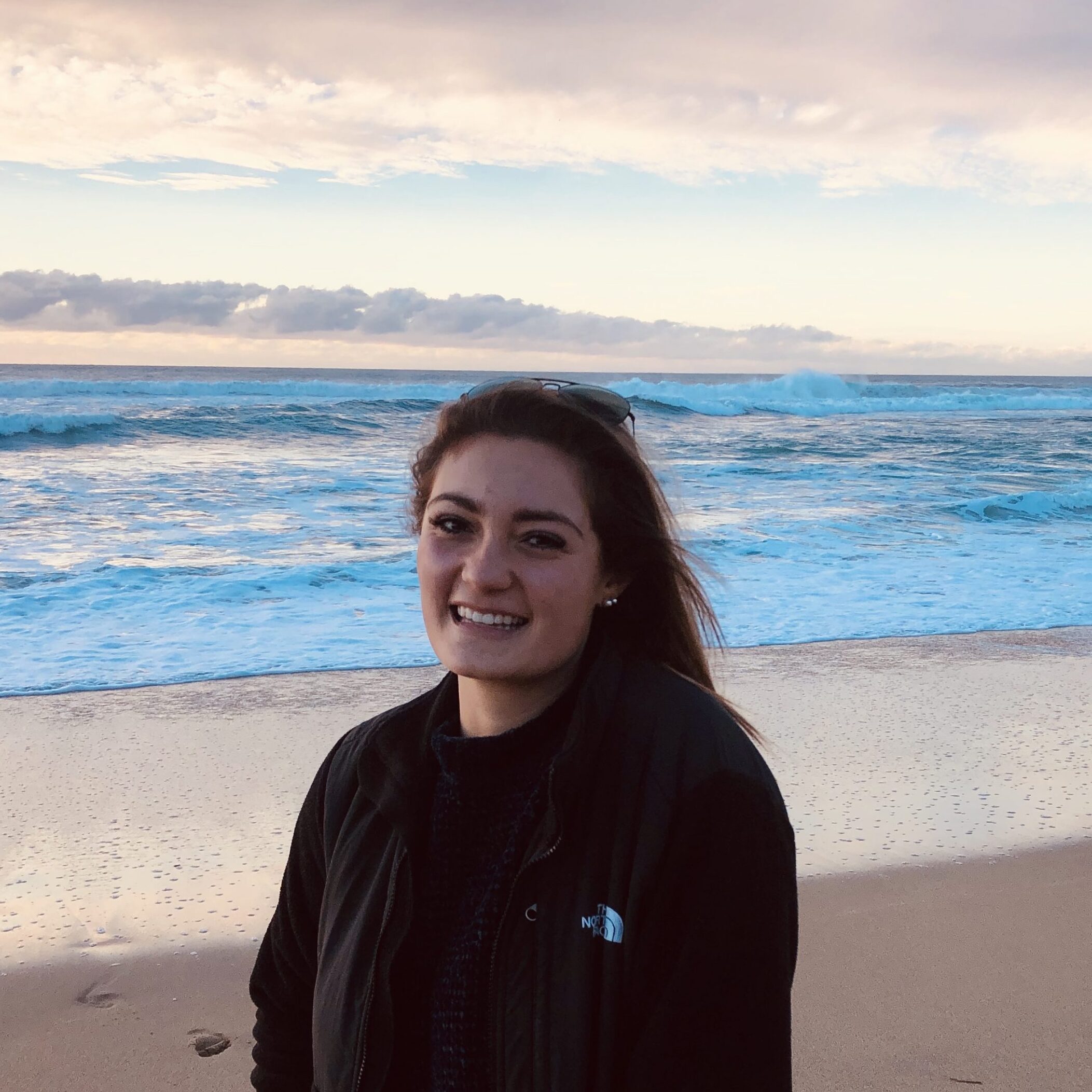
Carmen Gardner
Carmen was born and raised in South San Francisco, CA and developed a love for the environment and its natural systems at a young age while often visiting Yosemite National Park. She loves visiting state parks and national parks around the world with her family and friends. While studying abroad in Australia, she enjoyed diving in the Great Barrier Reef and is recently dive certified. She is interested in volunteering with the scuba dive community to participate in marine conservation projects and events. She graduated from the University of Redlands with a B.S in Environmental Science and a GIS/Spatial Studies Minor as a four-year student athlete playing water polo. She knew she wanted to focus on furthering her education within the environmental field. She chose UCI’s Masters of Conservation and Restoration Science to further acquire skills in environmental planning, while incorporating her GIS skills to new planning and research projects. Her goal as a master’s student is to not only expand her knowledge and experience doing field work, but learn more about natural resources, native plants, and environmental impacts. She plans to pursue a career in the environmental consulting field.
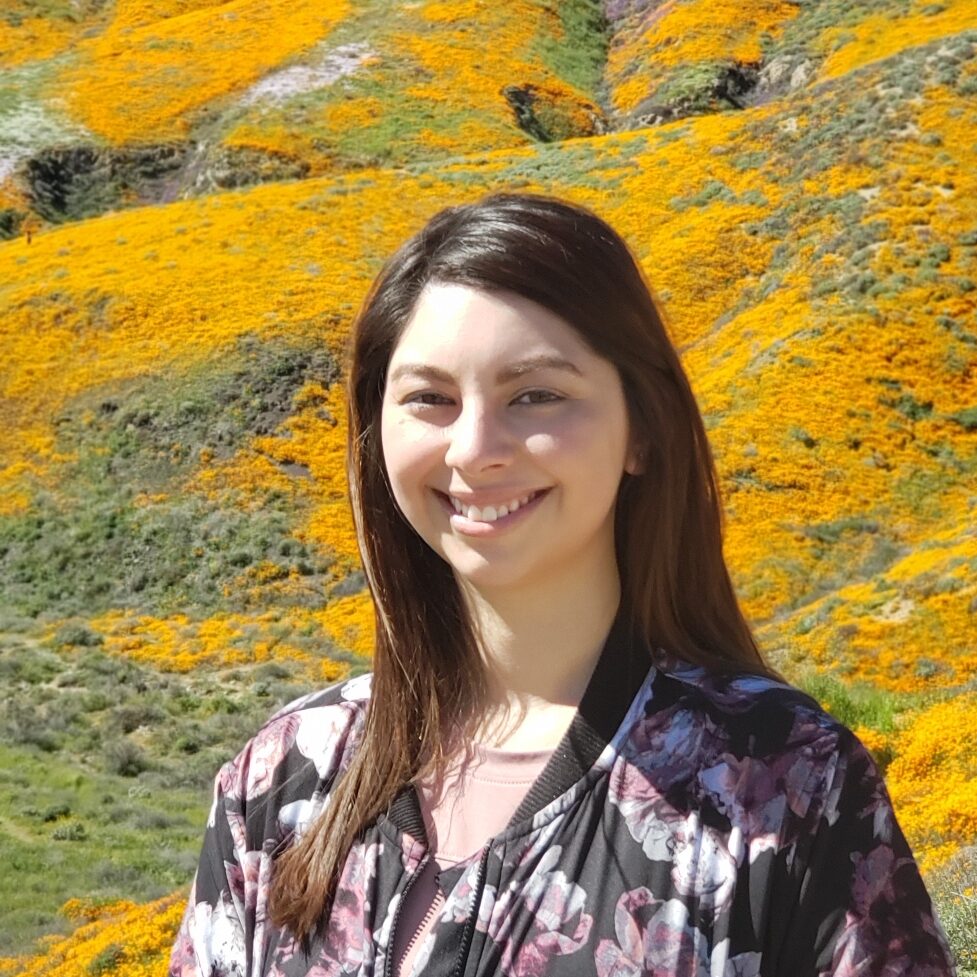
Cherish Cartagena
Cherish was born and raised in the Central Valley of California, surrounded by foothills and miles of fruit and vegetable fields. Growing up in a very small town, she spent most of her time outside where she developed her love for nature. While attending community college in Visalia, CA, Cherish spent nearly every weekend volunteering at Project Survival’s Cat Haven. Located in the foothills of the Southern Sierra Nevada, Cat Haven is home to various large and small exotic cats, most of them critically endangered. During her time there, she was a volunteer zookeeper as well as a docent, leading groups of all ages on educational tours, explaining the conservation efforts that Cat Haven supported all over the world. It was this experience that interested and exposed her to the field of conservation. Cherish relocated to southern California to attend California Polytechnic University, Pomona where she earned a Bachelor of Science degree in Biology with an emphasis in Zoology. While Cherish was attending Cal Poly Pomona, she worked on campus at the vivarium where she was responsible for the care of more than 80 individual reptiles and amphibians and also lead tours for visiting elementary and Cal Poly students. Additionally, while working towards her degree, she volunteered at the OC Zoo as a zookeeper and learned about the various native species of the Southwestern U.S. Throughout her experiences as a zookeeper, Cherish realized her true passion involved the conservation of species and habitats, which lead her to this program. Through the Masters in Conservation and Restoration Science program, she hopes to gain the skills and knowledge necessary to contribute in the protection of wild species and native habitat, and to discover the various career opportunities that are available after her time at UCI.
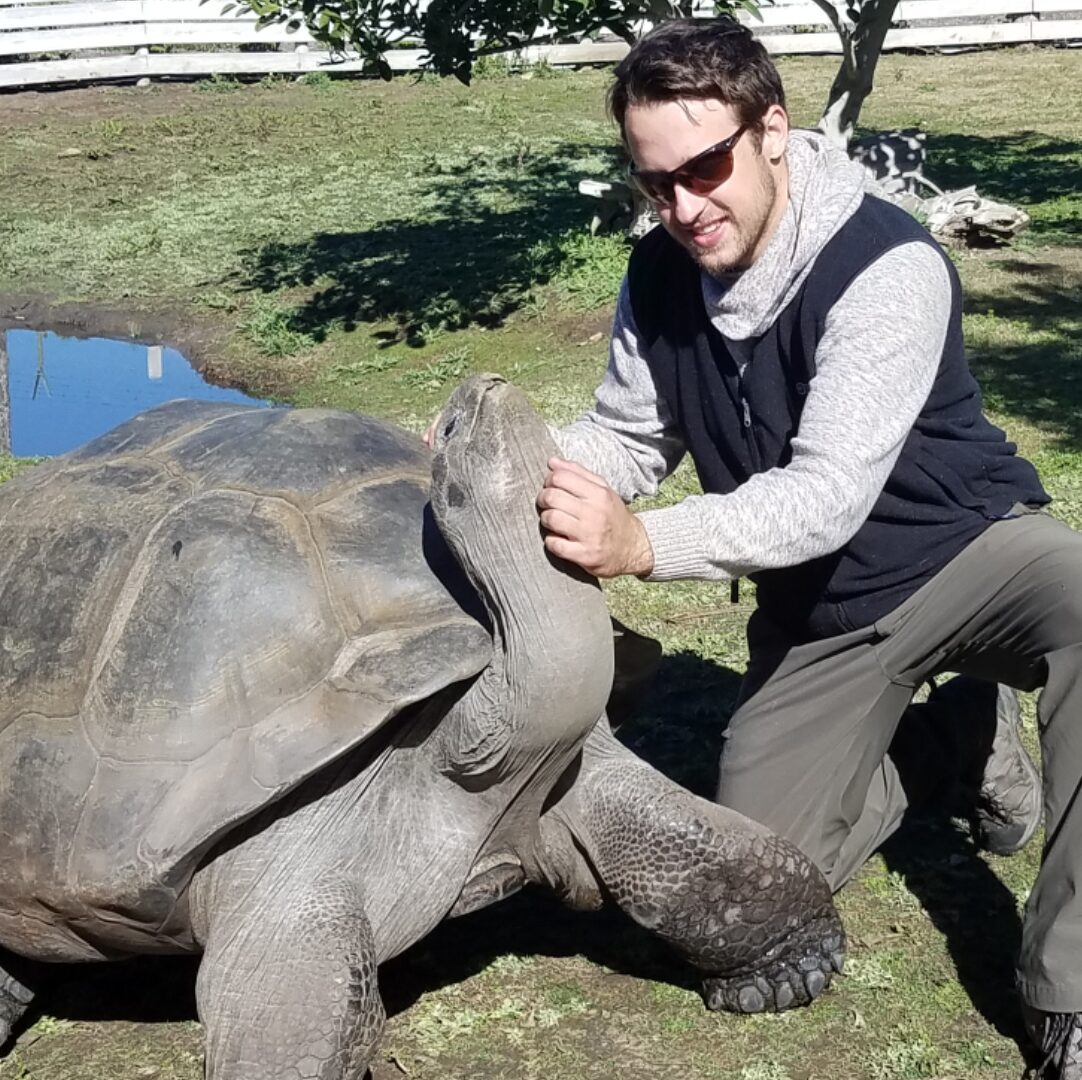
Elias Potashov
Elias grew up in the coastal city of Carlsbad, California. His fondness of nature arose largely from various volunteer experiences throughout San Diego County at various lagoon conservancies where he was first exposed to habitat restoration. Regular hiking and stand-up paddleboarding ventures throughout the dynamic landscapes of California further fueled his appreciation of these settings. Elias got his B.S. from the University of California – Davis in Environmental Horticulture and Urban Forestry with a concentration in Plant Biodiversity and Restoration. While pursuing this degree, he had various volunteer and internship experiences including the managing of native plant nurseries, riparian restoration, and managing both trails and social media for the Putah Creek Reserve. He worked as a research assistant observing and maintaining a grassland setting for a drought research project and was also employed as a greenhouse research assistant who facilitated research on the impact of increased nitrogen deposition on wheat varieties from across the world. After UCD, Elias worked as a Native Plant Specialist at the San Diego Botanic Garden which allowed him to further develop his plant ID, propagation and cultivation skills while maintaining ~ 12 acres of native plant habitat and interpretive garden space. Since 2018, he has been employed as a Restoration Ecologist working throughout military bases in the Southwestern U.S where he applies his knowledge and skill sets to large-scale projects involving habitat restoration, irrigation installation, seed collection, vegetation monitoring and mitigation of invasive species. In the spirit of spurring collaboration among diverse assortments of stakeholders, Elias seeks to synergize habitat restoration, bioremediation, ecotourism and sustainable agroecology to develop multi-faceted solutions that alleviate complex issues faced throughout the world.
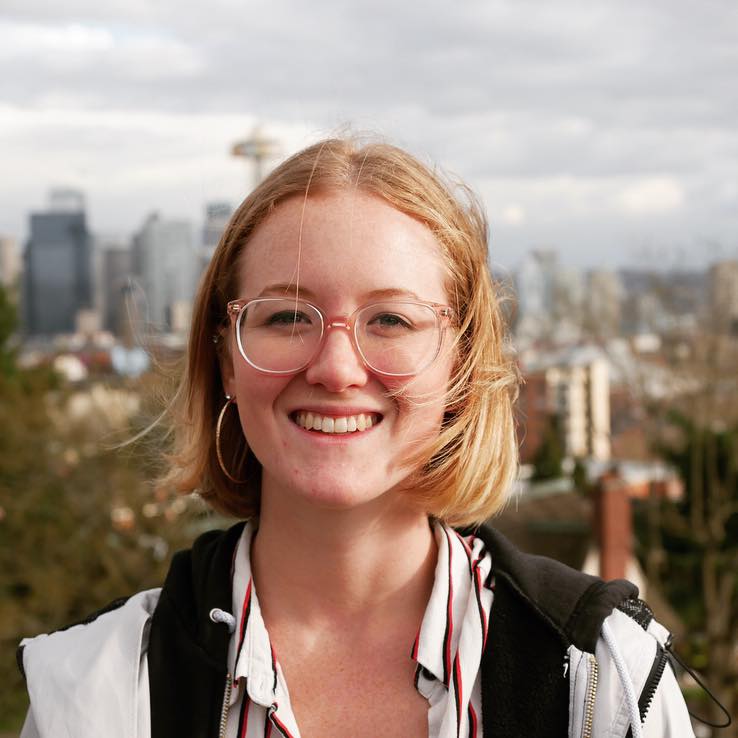
Hailley Coleman
Hailley grew up in Seattle, Washington where her love for the environment developed into a deep passion. She moved to California at the age of 18 to attend college. Her move from Seattle to Orange County opened her eyes to the importance of educating the world on the state of our planet. She earned her undergraduate degree in Environmental Science and Policy with a focus on Ecology from Chapman University. During her time at Chapman she studied carbon and nitrogen mineralization in Coastal Sage Scrub soils. Following her graduation she began working as a data analyst at an environmental testing company where she tests soil, water, and air samples for gasoline range organics. Her environmental interests include species vulnerability to climate change, and mitigating the future impacts of climate change.
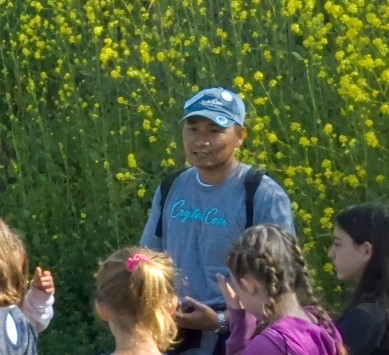
Khai Dang
Khai has always been interested in biology. During his first few undergraduate years, he focused his study on molecular and biochemistry. However, he shifted his interest toward ecology after his internship with the Center of Environmental Biology at UCI. The fieldworks that he did during the internship had ignite his love for outdoor activities and ecology. After graduating, he spent 2 years working as informal educator at Ocean Institute and Crystal Cove Conservancy. During that time, he realized the importance of education and outreach. His goal after the program is to be able to find the most suitable methods to help the environment as well as to involve the community in the process.
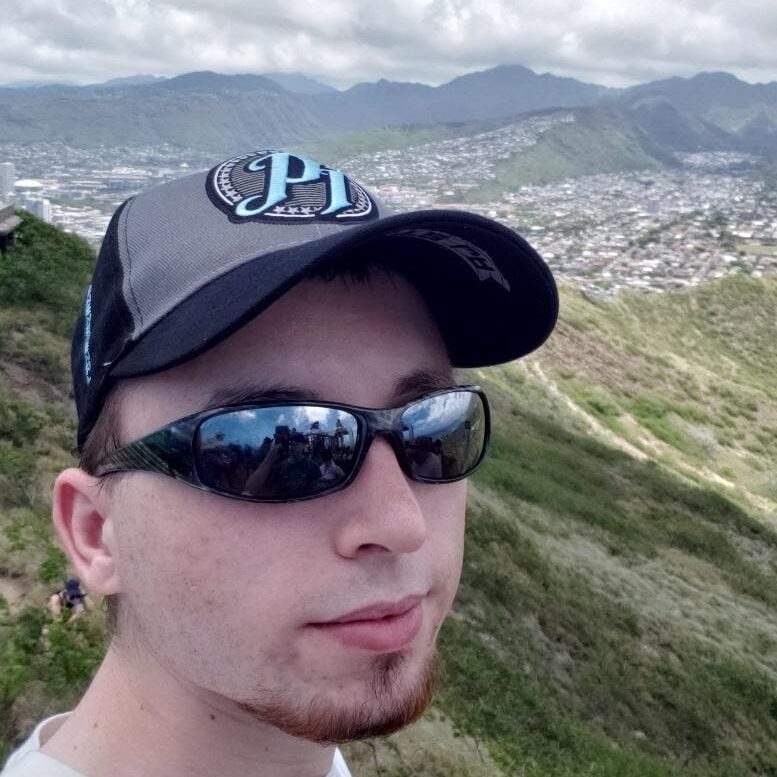
Kyle Killian
Kyle has grown up in Southern California. While Orange County, where he is from, is largely a metropolitan area, it is the beauty of the natural areas that has always stood out. This appreciation for nature has seeded his interest in environmental science, which sprouted during his time at the University of California, Irvine as an Ecology and Evolutionary Biology major. He decided to continue his journey at UC Irvine through the Masters in Conservation and Restoration Science program. Through these studies, he hopes to gain and develop the skills and knowledge needed for a career that will allow him to help care for the environment. While the future is difficult to predict, he realizes that working with the community is an important aspect to ecological work since while these beautiful natural areas exist around us, it is up to all of us to protect them.

Libin Yuan
Libin Yuan was born and raised in Wuxi, a beautiful city in east China. She has been interested in nature since she was a child. When she was in high school, she served as an environmental protection volunteer to publicize environmental protection knowledge to the general public. When she was an undergraduate, she chose environmental science without hesitation. Out of love for environmental protection, she chose to engage in a soil survey company after graduation. During her six years of work, she traveled almost all over China, witnessed many ecological and environmental problems. This is why she chose to go back to school to pursue the Masters in Conservation and Restoration Science. Her goal is to be able to use her knowledge and experience to protect the existing ecological environment and restore damaged habitats, and devote herself to environmental education in her spare time, so that more and more people pay attention to the protection of the ecological environment.

Lyuyi Chen
Lyuyi is originally from Fuzhou, China and received her B.S. in Ecology from Fujian Agriculture and Forestry University. During her undergraduate career, she worked as a research assistant in Key Laboratory of Biopesticides and Chemical Biology, Ministry of Education of China, which concentrates on the biological control of invasive pests. In the summer of 2018, she worked as an international volunteer focusing on marine ecological environment conservation in Thoddoo, Maldives. All these experiences make her realized the importance of natural resources conservation to maintaining the three main ecosystems (forests, wetlands and oceans) at a healthy level. Besides, she is interested in how to effectively restore damaged ecosystems and ensure the sustainability of forests in balance with wetlands and marine life to maximize their ecological benefits. This directs her to the Masters in Conservation & Restoration Science (MCRS) program at the University of California, Irvine for gaining further knowledge and experiences in natural resources.
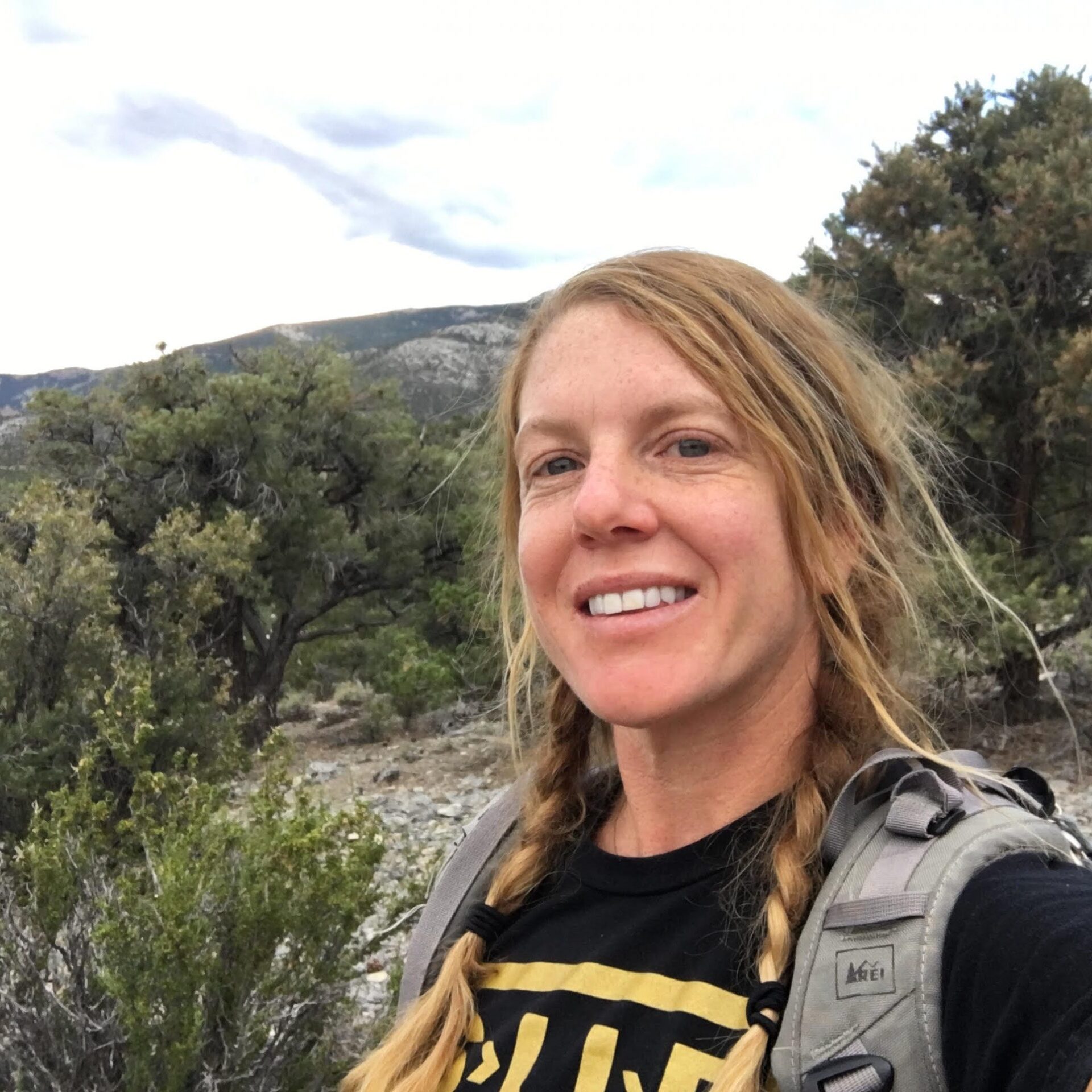
Melissa Lippincott
Melissa spent her childhood exploring Southern California with her adventure-loving family. During weekend hiking and summer backpacking trips, she explored the Mojave Desert and the Sierra Nevadas. She attended UCSB and became interested in botany. She has worked as a consulting botanist in Orange and LA counties and is interested in habitat connectivity and wildlife corridors. Melissa enjoys skiing, surfing, hiking and mountain biking on the side.
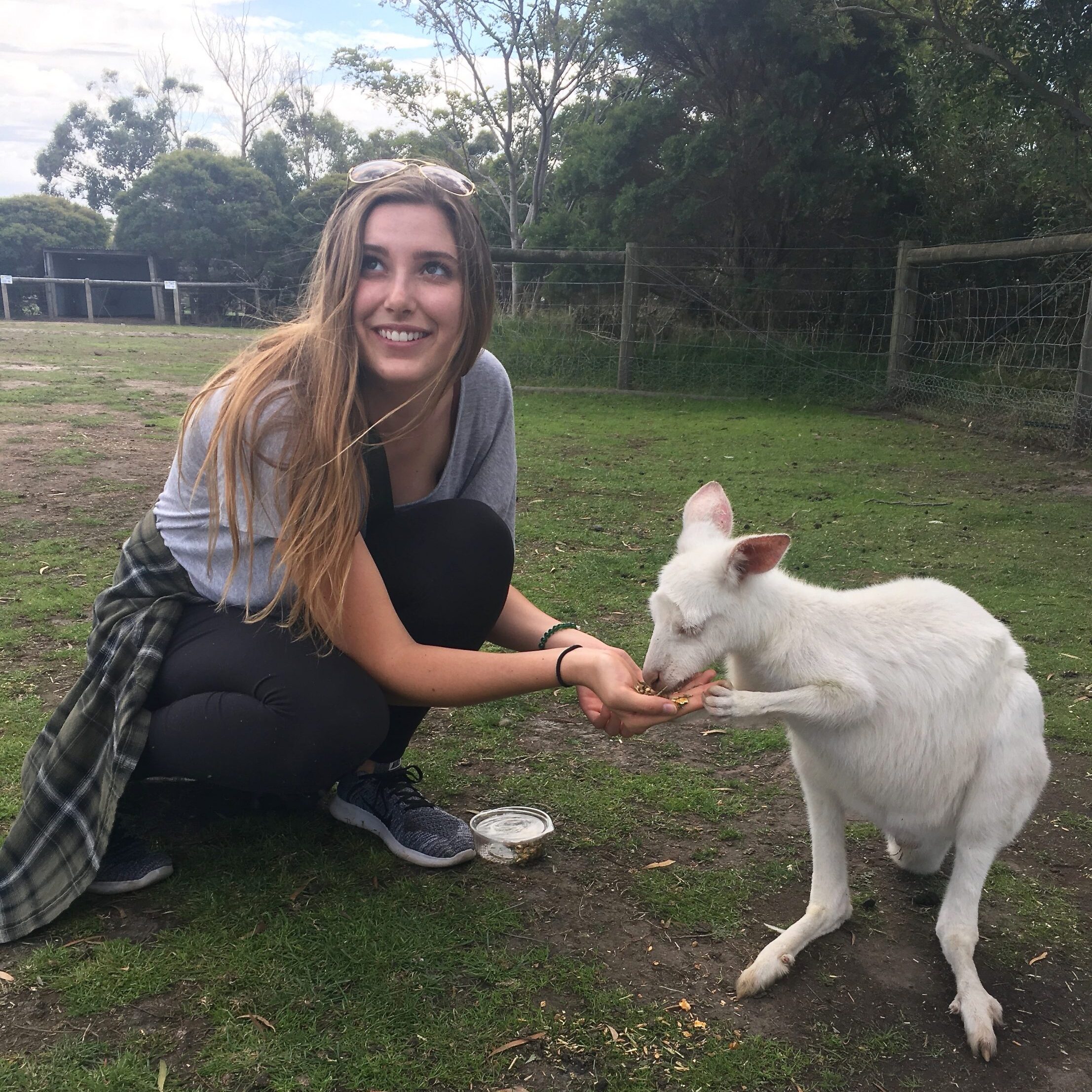
Michaela Coats
Michaela grew up in Tustin, California and has always had a strong affinity for wildlife and the environment. The connection she made with nature at a young age through hiking, traveling, and wildlife photography had a lasting impact on both her academic career and personal sustainability. For her undergraduate degree, she attended UC Santa Barbara where she received her B.S. degree in Environmental Studies with a concentration in marine environments. While in pursuit of her degree, she volunteered as a docent for Western snowy plovers and worked as a homeschool educator for the Santa Barbara Zoo. Her passions for endangered species conservation and environmental education flourished through these experiences and lead her to the MCRS program at UCI. She would like to be able to use the knowledge and skills gained from this program to pursue a career that embraces the intersectionality of environmentalism and education.
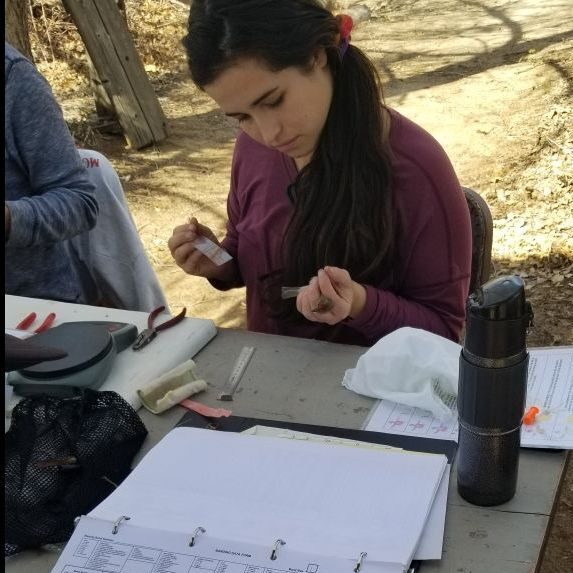
Victoria Masjuan
Victoria’s fascination with nature began early, with covert experiments in moss growing techniques alone on her patio. However, she didn’t really begin to delve into the natural sciences until halfway through undergrad. Disenchanted with her degree choice, all it took was some volunteer ecological restoration work to reignite her buried passion for the natural world. Just like that, she switched her major to Environmental Studies and never looked back. After graduating from UCSB in 2014, she obtained her Ecological Restoration certificate at Saddleback College in 2017. Along the way she has held several restoration and biological services positions, and has over 5 years’ experience with skills ranging from nursery management and volunteer coordination to native plant installation and vegetation/avian/mammalian/aquatic surveying. In her last position as staff restoration ecologist, she performed such tasks as conducting field studies, invasive species eradication, herbicide application, planting, and qualitative/quantitative monitoring. She is passionate about local engagement and in her career hopes to encourage community science. Victoria believes in the power of community ownership of natural spaces, and knows that if we come together it is possible to shift the destructive trajectory we are on and shift our path towards a more holistic, sustainable future.
Class of 2020
Cohort 2
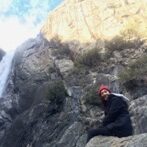
Corrina Tapia
Native to southern California, Corrina grew up in the foothills of the San Bernardino National Forest in Redlands, CA. She received her B.S. in Biology with a minor in Environmental Studies from the University of Redlands and shortly after, a graduate certificate in wildlife management from Oregon State University. Before coming to UC Irvine, Corrina had the opportunity to participate in a variety of wildlife studies. These ranged from conducting behavioral studies for enrichment programs at a local zoo and rehabilitation center, to studying the predator-prey interactions between rattlesnakes and kangaroo rats, and finally to working with environmental agencies conducting biological assessments of project sites. She has always been drawn to how wildlife and humans interact, and specifically, how to ensure that the survival of one does not mean the loss of the other. With a master’s degree she hopes to work with a non-profit organization to help conserve wildlife populations by learning about how they function within a changing landscape and to help preserve/restore their native habitats. Community engagement is a large facet of any ecological work; therefore, she also hopes to work with different communities and help foster and develop their interest and compassion in the protection of wildlife species.
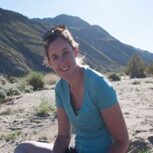
Emma Havstad
Emma currently works as a Restoration Ecologist at River Partners. She previously spent 6 years as a botanist on San Clemente Island, managing native plant restoration, invasive species control, and rare plant monitoring projects for the SDSU Research Foundation’s Soil Ecology and Restoration Group. Emma received a Bachelor’s degree from Cornell University in Biological Sciences and has worked on restoration projects for the Irvine Ranch Conservancy, The Nature Conservancy in Oregon, and the Golden Gate National Parks Conservancy. She grew up in Davis, CA, spending summers backpacking in the Sierra Nevada, and now devotes her free time to cycling and exploring our national parks, especially in the desert southwest.
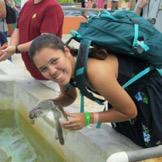
Julia Peay
Julia is originally from New London, Connecticut, where she received her B.Sc. in Biological Sciences from the University of Connecticut. During her undergraduate career, she worked with a research team to study how alewife migratory patterns and conditions were impacted by climate change. Additionally, she studied how the distributions and abundance of striped salamander populations were changing across the northeastern Unites States due to anthropogenic effects. Teaching students about ways to reduce their carbon footprint got her interested in going into conservation outreach. Additionally, being from a multi-racial background, she understands the importance of diversity both in the classroom and in the organisms on this planet. She would like to be able to use the knowledge and skills gained from being in the MCRS program to teach people about restoration techniques and the general field of conservation.
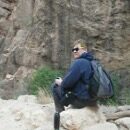
Justin Morgan
Justin’s love of ecological restoration began as a freshman in high school, when he volunteered on a restoration research project in Bommer Canyon, Irvine, CA. He always had a love of nature and a passion for conservation, and the idea that we could not only preserve and protect the important ecosystems around us, but actually restore degraded or destroyed habitat was eye opening. This, along with his love of science, drove him to earn his B.S. in Environmental Science from Roanoke College and later complete the Ecological Restoration Certificate program at Saddleback College. Working in environmental consulting, outdoor education, and land management, both in the corporate and non-profit sectors, has given him a great deal of experience with the flora here in his native Orange County, as well as a unique perspective towards ecological problems. His areas of emphasis include: reconnecting fragmented ecosystems, restoring plant diversity, and developing land management strategies for the conservation and promotion of special status plants.
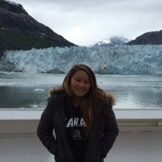
Kelcey Chung
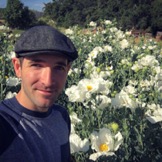
Kevin Alison
Kevin is a plant propagator at Tree of Life Nursery, a local California native plant nursery in San Juan Capistrano, CA. Like the plants he works with, he also is a California native. He is seeking the Master’s degree in Conservation and Restoration Science to expand his combined education in natural resource management and advanced horticultural techniques. Recently, he established a research laboratory that focuses on plant tissue to propagate rare, endangered, and difficult-to-grow native plant species in-vitro as an ex-situ method of conservation. His research also focuses on culturing beneficial mycorrhizal inoculums to combat soil pathogens as a well as propagating native ferns. His goal is to expand on this research and provide land managers and conservation agencies with additional resources for effective conservation and restoration.

Lyell Buttermore
Lyell’s pull to nature started at a young age while surrounded by dense forest in the Appalachians, and it has grown into a need to protect that source of life that he has always appreciated. The root of his work ethic is inspired through his natural sense of curiosity, compassion, and collaboration. While pursuing his B.Sc. as an Honors student in Environmental Biology at McGill University in Montreal, Quebec, he focused primarily on ecotoxicological pollution analysis in aquatic ecosystems. His thesis explored zebrafish sensitivity on a variety of atmospheric and marine pollutants. The immersion in a bilingual French culture provided him with a deep appreciation for the importance of diversity in both an environmental and educational context. This program exposed him to the value of conservation science and impact assessment for the role that they play in environmental protection. He has since worked as an environmental technician and journalist in order to develop a greater understanding for ecosystem sustainability. His mission in the work that he will do as a Masters in Conservation and Restoration Science at UC Irvine is to strengthen those skills and gain experience in working with environmental mitigation strategies and environmental assessment.
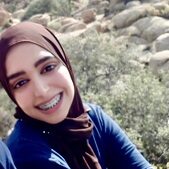
Maryam Ibrahim
Born and raised in Los Angeles a few steps away from the famed Griffith Park, Maryam has always been immersed in both that natural environment and the bustling metropolitan city. She has always been fascinated by the interdependence of different organisms within an ecosystem and, on a broader scale, with how human development affects (and is affected by) the natural environment. She has spent the latter half of her life in Irvine where she was surrounded by the beauty of marshlands and coastal ecosystems. At Concordia University, she investigated the relationship between soil fungi, bacteria, and root systems as they relate to invasive species. It is truly amazing how something so seemingly small can have a dramatic difference in the fate of whole biomes! She also studies the history and approaches to curbing endangered species poaching, namely in the ivory trade. Her interests cast a wide net, and she hopes that in the course of her time in the Masters in Conservation and Restoration Science program she can further hone her passion and get a better sense of the career opportunities that are available in this field.

Omar Moquit
Born and raised in Illinois, close to Chicago, Omar grew up surrounded by the Forest Preserve District of Cook County. Covering nearly 69,000 acres of public land, he had plenty of opportunities to spend time in the natural environment, seeding his love for it. After obtaining a B.S. at the University of Illinois at Urbana-Champaign and working in environmental education for the Cook County Forest Preserves, he developed a passion for wildlife conservation and addressing ecosystem sustainability. This directed him to the MCRS program at the University of California, Irvine in the beautiful state of California, where his main goals are to develop applicable skills and gain essential knowledge that will allow him to become a significant member in the field of conservation and ecosystem management.
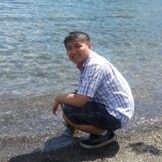
Peter Lam
Peter was born and raised in Orange County, CA. Like others, he has always felt this connection to and appreciation of nature. It was not until after high school that he realized his interest in the environment was something that he wanted to pursue. To maintain rich biodiversity in environments, his goals are to protect and restore natural resources in the face of a rapidly-changing world. Peter earned his B.A. in Ecology and Evolutionary Biology from the University of California, Irvine. His future career plans include getting involved with land management and providing adaptive management strategies to direct restoration projects. Peter hopes to gain and foster the skills and mentality necessary to accomplish his future endeavors through the Masters in Conservation and Restoration Science program.
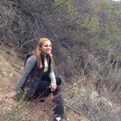
Sinem Kargin
Sinem is from Turkey, a land which has always been at the crossroads of civilizations and geography. Specifically, she come from Ankara, the nation’s capital and the capital of many ancient civilizations. Beyond human history, Turkey is a hotspot for biodiversity conservation because of its location between three continents as well as Anatolia’s complex topography and geomorphology. These geographical features account for a great variety of habitats and species, and, particularly, for an exceptionally rich flora. She has always had a passion for science and nature. In particular, she is fascinated by the complexity of biology. This fascination began with watching science documentaries and realizing how many unanswered questions remain in the universe. It is, therefore, necessary to push the boundaries of our understanding not only for our sake but for later generations of scientists. Her research background includes microbiology, infectious diseases, and even stem cell biology so she comes to the program with a fresh perspective. She feels compelled to continue the legacy of known and unknown scientists whose accumulated knowledge has made Earth a beautiful place for all of us. Her goal is to study conservation, restoration, to protect mother nature and protect its beauty for next generations.
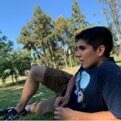
Valente Ayala
Valente’s passion for the outdoors developed at a young age during his time camping. Like some, he had a change of heart as to what he would pursue as a career. He reflected on what it was he both enjoyed and had a passion for and decided to pursue a career that involved the great outdoors. His undergraduate research at UC Irvine in the San Joaquin influenced his decision to change emphasis during his last two years of schooling to include more ecological studies. After graduating from UC Irvine with a B.S. in Biology and Chicano Studies, he started working with the CA Department of Food and Agriculture, specializing in the detection and eradication of the invasive pest, Asian Citrus Psyllid. He now works as a park naturalist where he provides the public with interpretive knowledge of the Angeles National forest and its flora and fauna. His goals as a masters student are to develop the knowledge, skills, and experience to work with a government agency doing field work or a nonprofit conducting impact reports.

Yvonne Valencia
Yvonne was born and raised in Garden Grove, California, but did her undergraduate degree and played collegiate soccer at Southern Oregon University in Ashland, Oregon. As a first generation minority college graduate and student-athlete, she obtained a B.S. in Environmental Studies with minors in Biology and Sociology. She joined the Southern Oregon Animal Rehabilitation Center as an undergraduate intern over the summer before her senior year, which allowed her to help injured and ill animals return to their ecosystems, shaping her passion for wildlife conservation. Her senior capstone project was focused on pine seedling recruitment for the Ashland Forest Resiliency Stewardship Project, furthering her interests in restoring and monitoring vegetation dynamics. It’s those moments Yvonne treasures because it shows nature displays beauty in its purest form. Now, she is a graduate student in the Masters in Conservation and Restoration Science program at the University of California, Irvine.
Class of 2019
Cohort 1
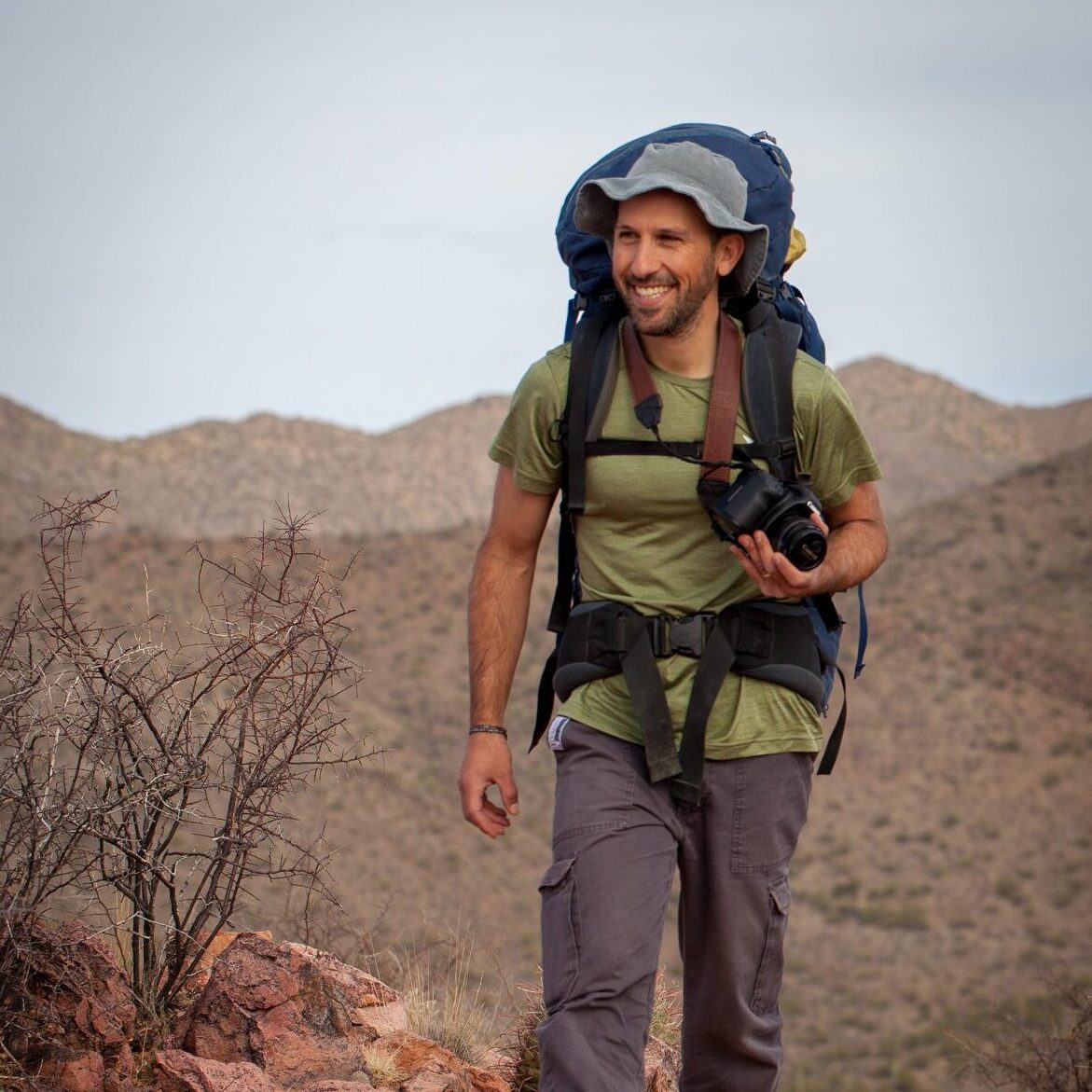
Amos Zerah
As an ecologist and environmental storyteller, Amos believes in the role of universities to develop creative and ambitious ways for sharing scientific developments with the public. Working on his capstone project with Native communities in southern Utah, he is very excited about the challenges and opportunities in the conservation-sustainable development nexus, something that he would like to continue to pursue after graduation. He currently works with the UC Irvine Office of Environmental Planning and Sustainability and the UC Irvine Environment Collaboration to conduct a sustainability culture assessment on UCI’s campus. This assessment will allow UC Irvine to better understand the ways students connect to sustainability and identify areas for improvement or continued outreach. Before arriving at UCI, he gained diverse international experience in project management, designing outdoor education training programs as well as community engagement activities.
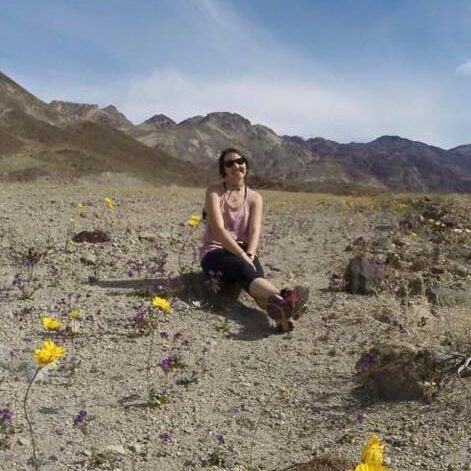
Hailey Laskey
Hailey grew up in Sonoma County, California, where she was surrounded by open spaces representing diverse habitats. Her love of nature stems from a family that depends on natural environments for fishing and hunting. She joined the Center for Environmental Biology as an undergraduate research intern her senior year of college at the University of California, Irvine. The opportunity to be an intern studying native California fauna and flora guided her toward a career in restoration and conservation. A first generation college graduate, she obtained her B. S. in Public Health with a concentration in global environmental health. Her first job after graduating was with the California State Parks, where she restored and monitored various habitats and their inhabitants in Orange County and Sonoma County. She wants to emphasize the rich economic value of our native habitats and wants her science to influence land management and conservation decisions.
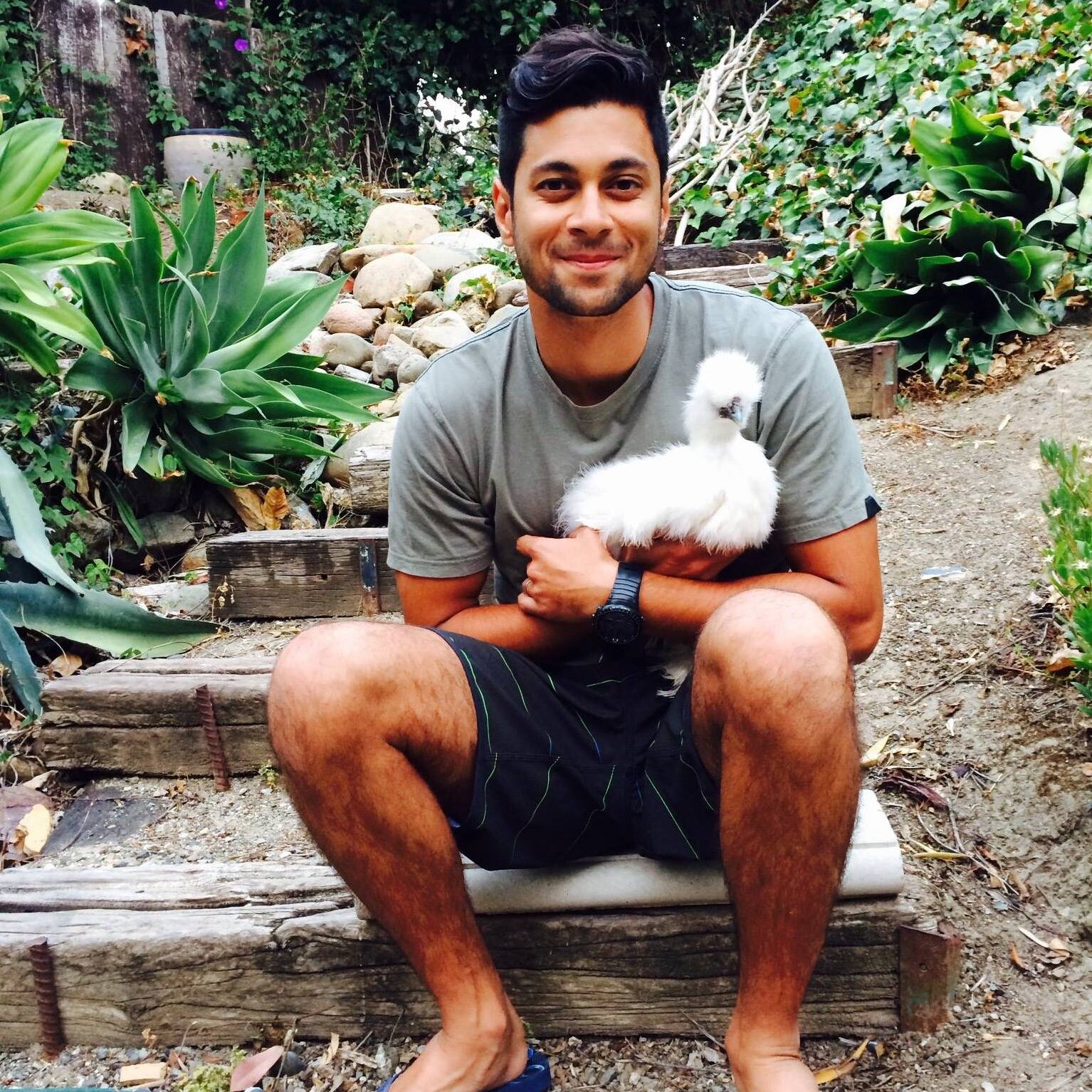
Marcus Gonçalves
Marcus Gonçalves received his B.S from the State University of Maringá, Brazil, where he conducted studies on freshwater ecology and biodiversity of the Parana River Basin. He completed an internship at Project Bats of Pantanal, a partnership with Conservation International for long-term monitoring of biodiversity, before he moved to United States. After a decade of living in California and nurturing his passion for its natural habitats, Marcus has returned his focus to the biological sciences. He aims to transfer his experiences in project management and his earned business acumen to the field of Conservation Biology and Resources Sustainability. It is his primary objective to obtain the knowledge and to learn the skills that are necessary for achieving effective endeavors in preservation of habitats and its species.
